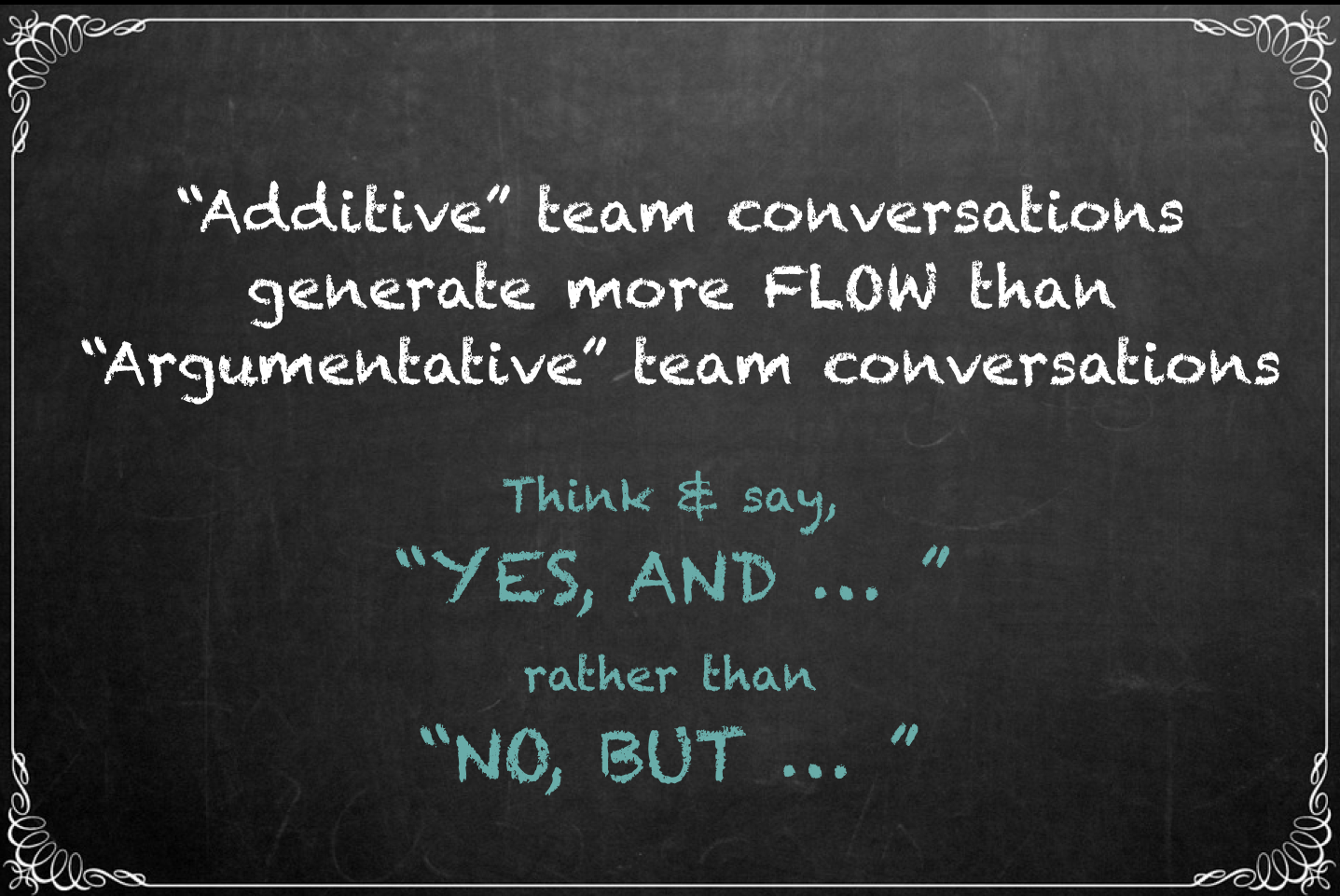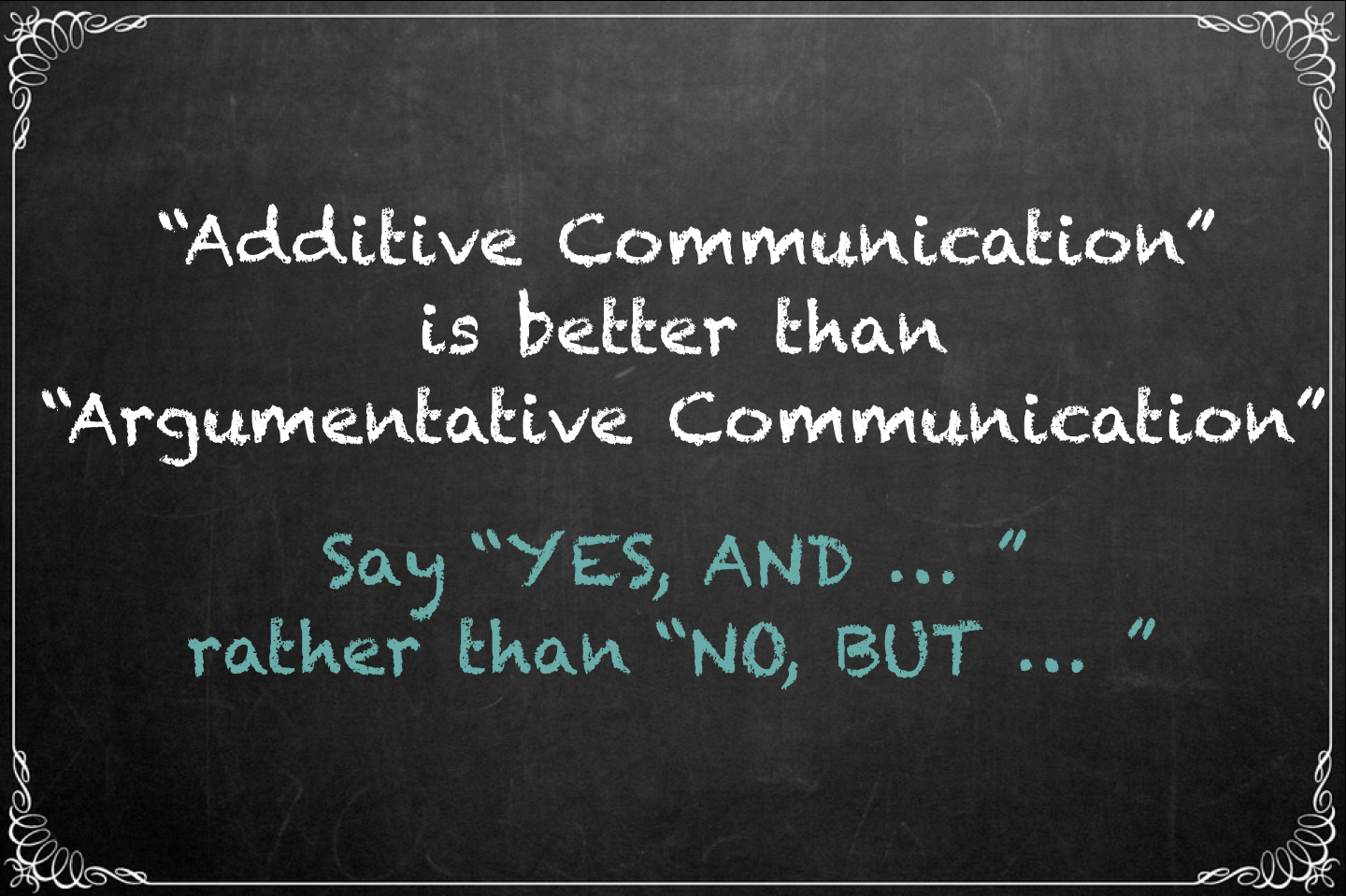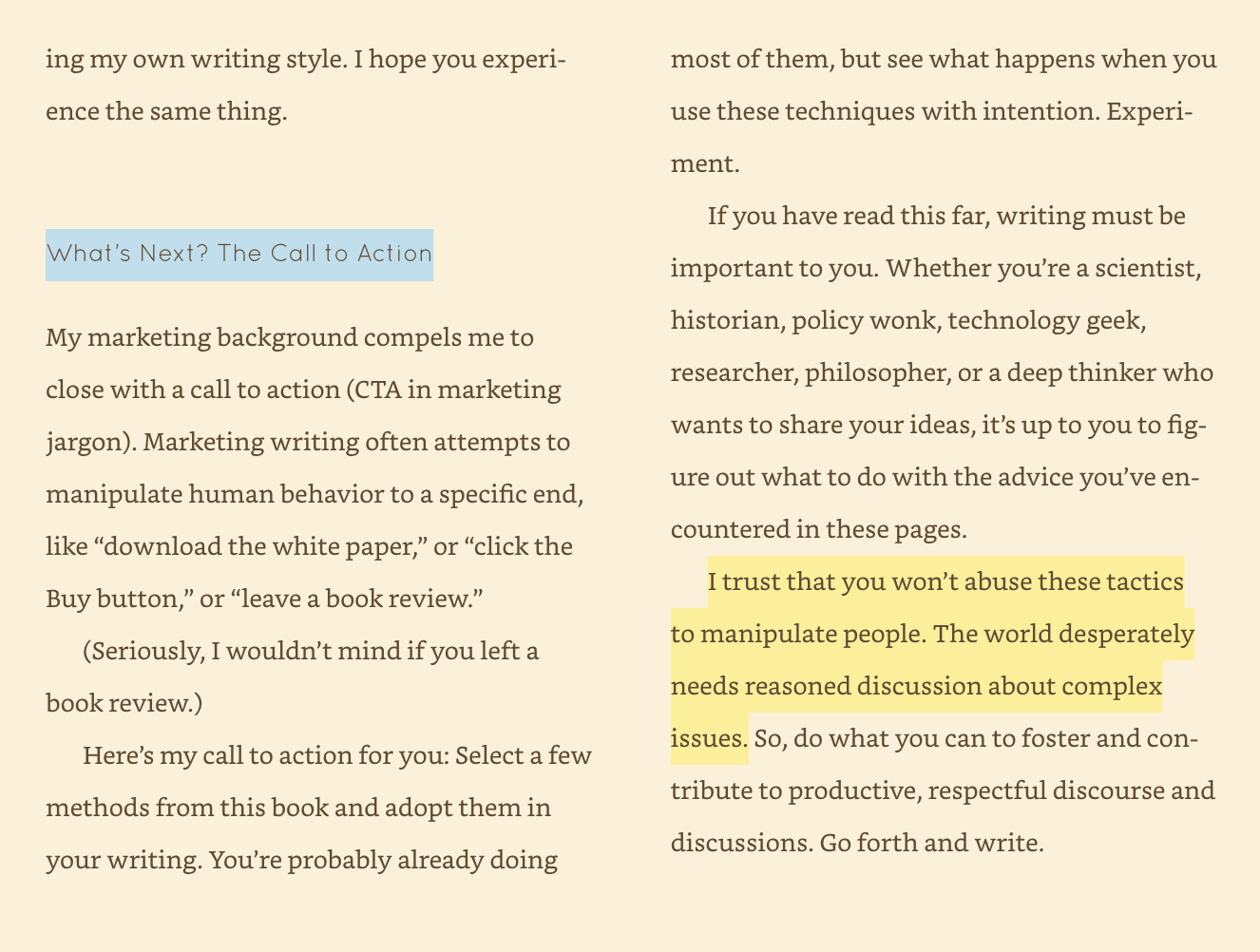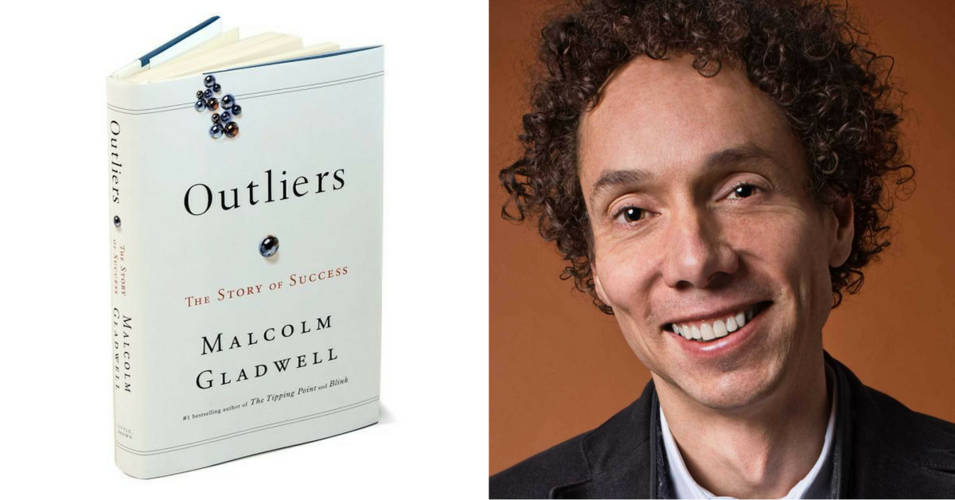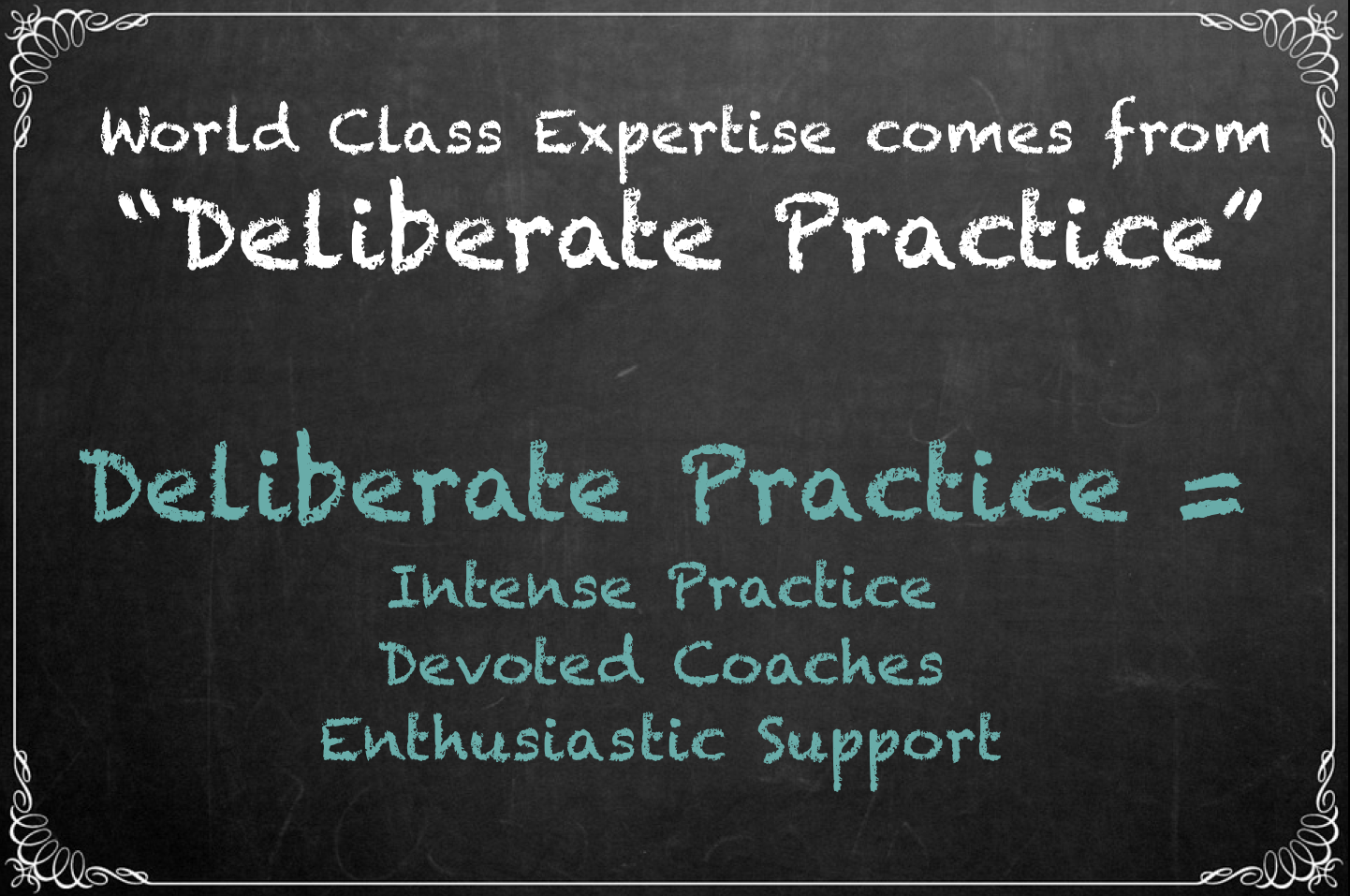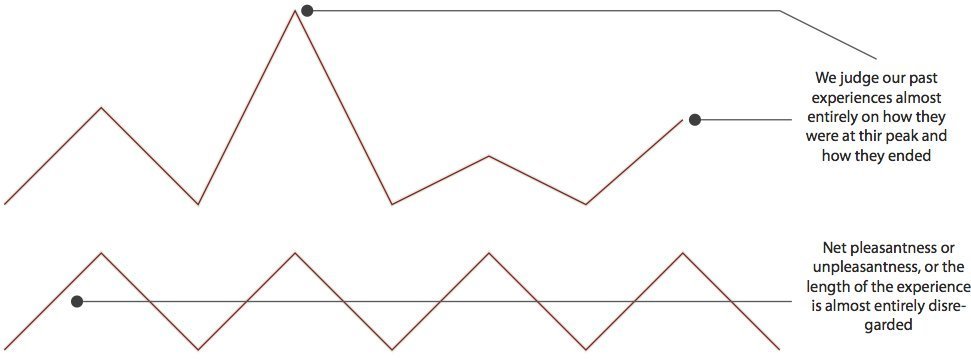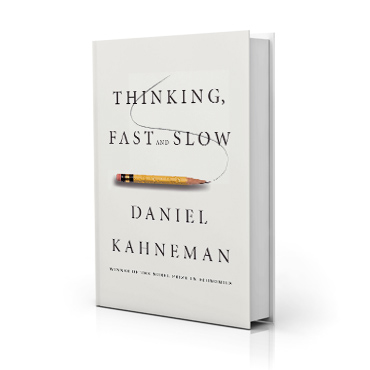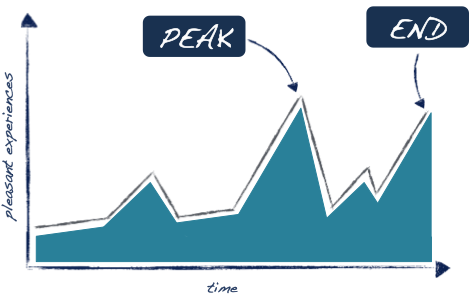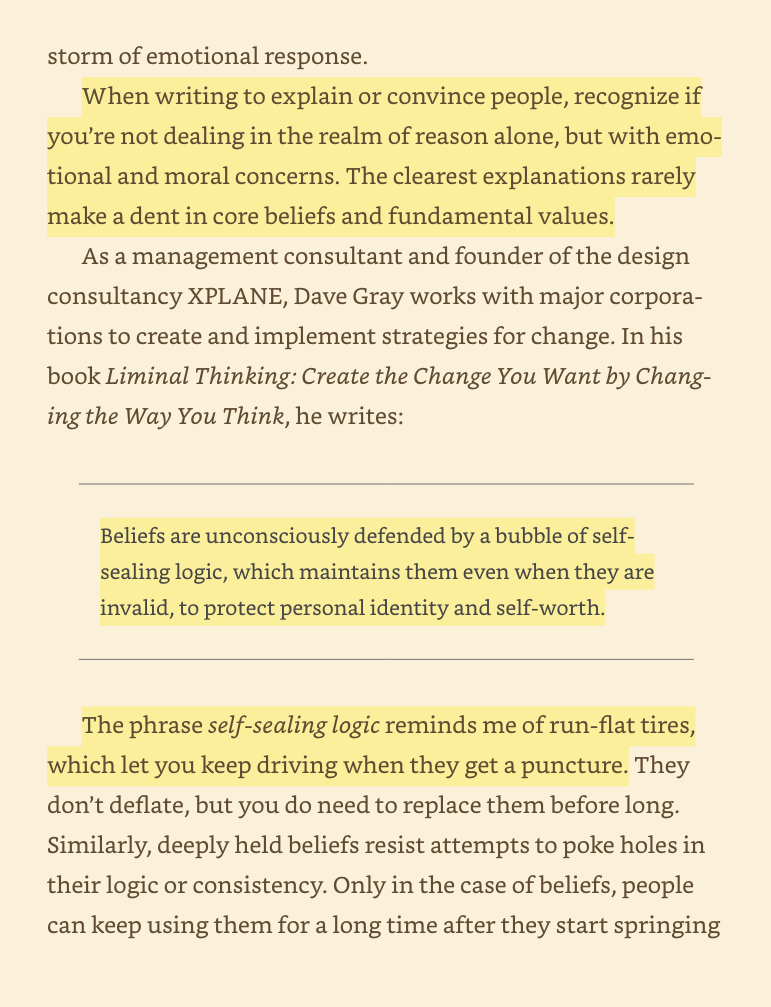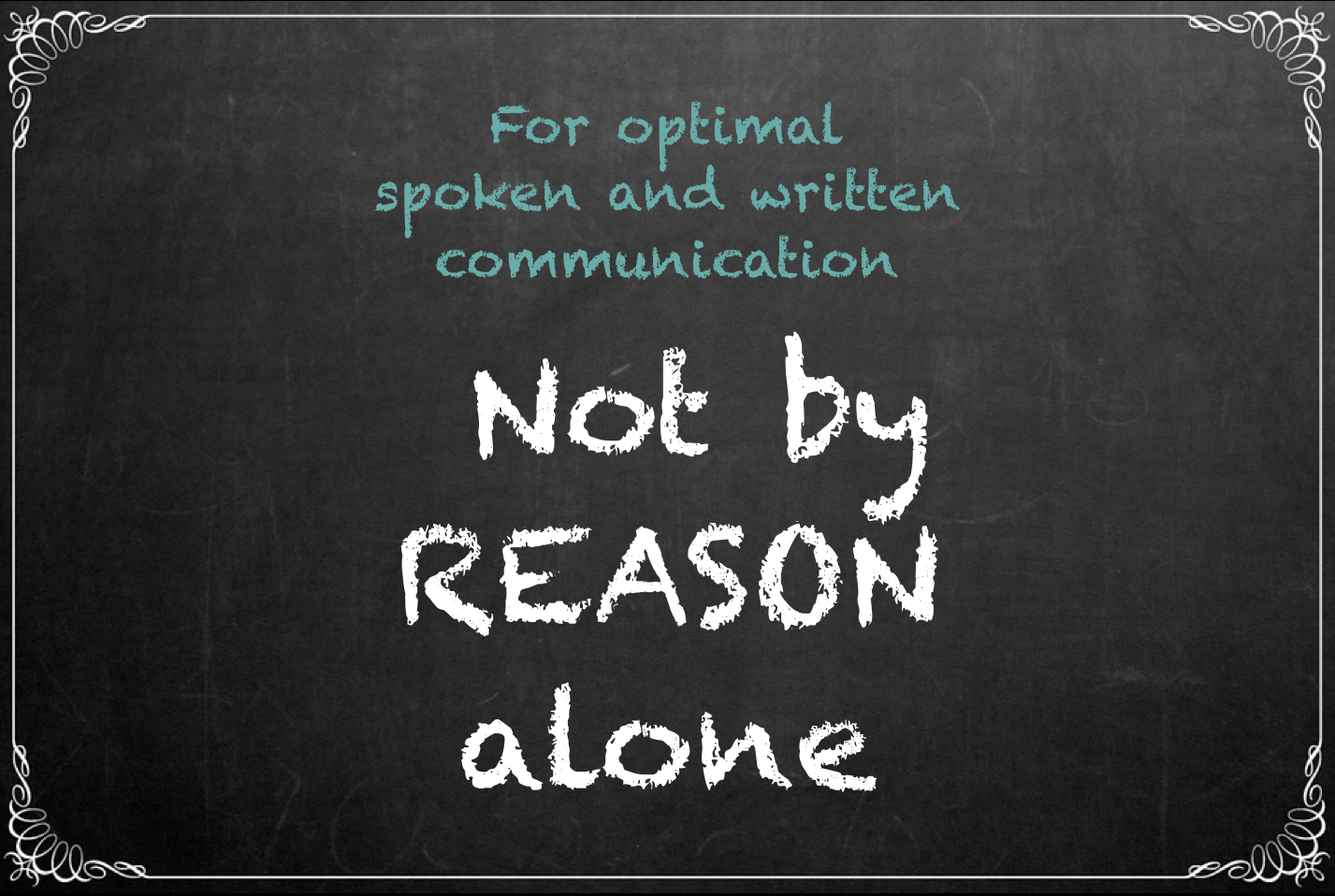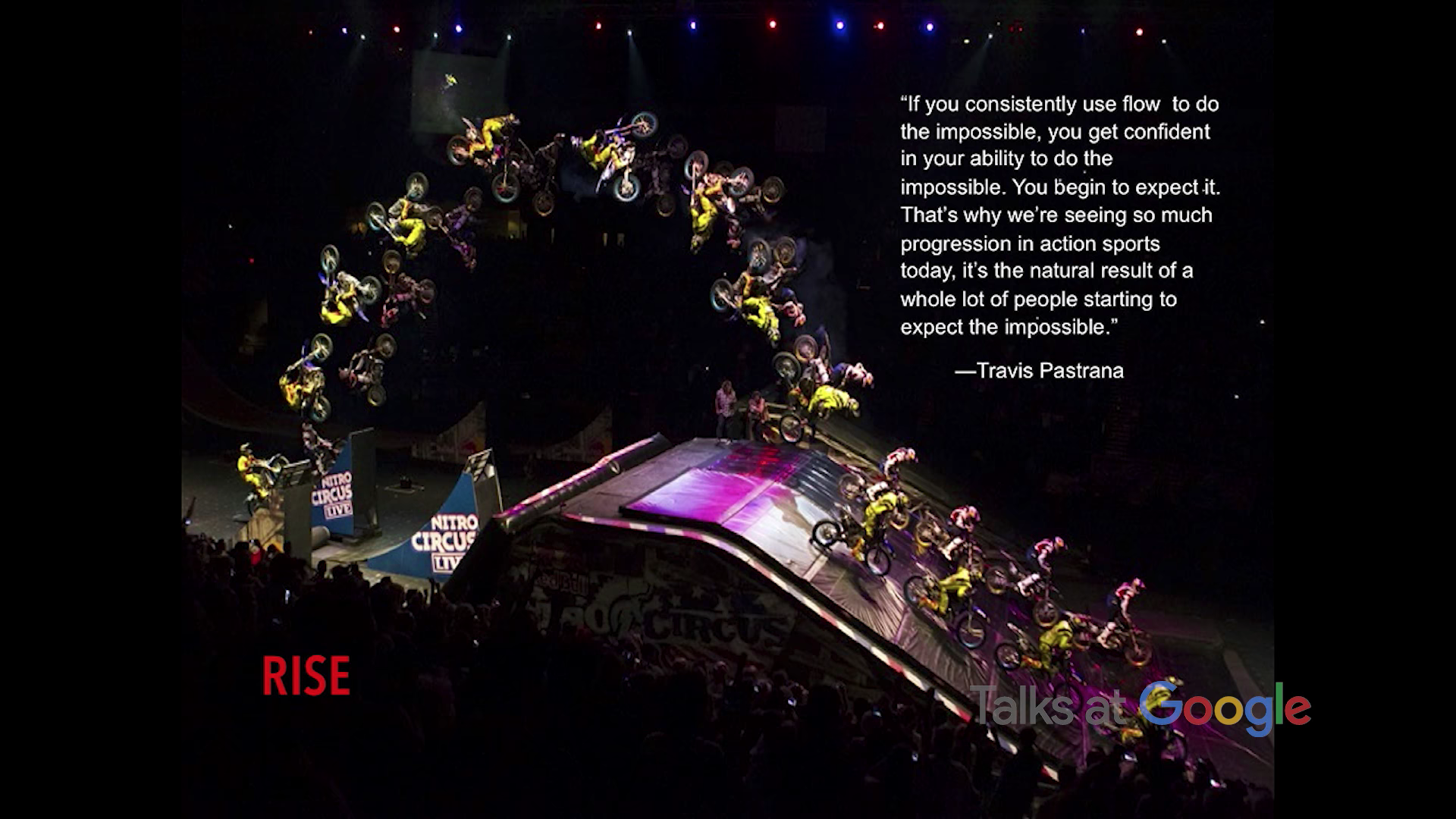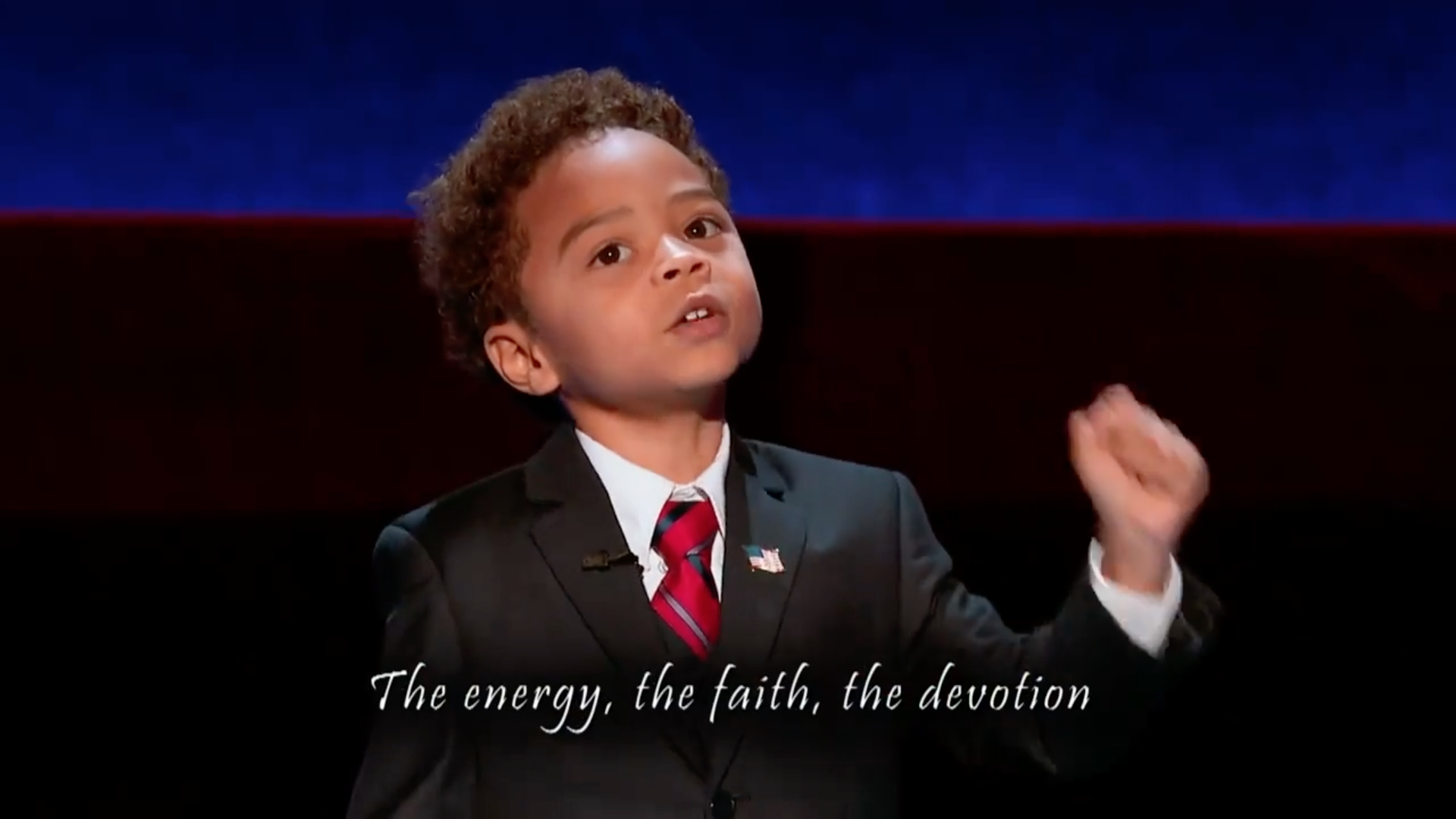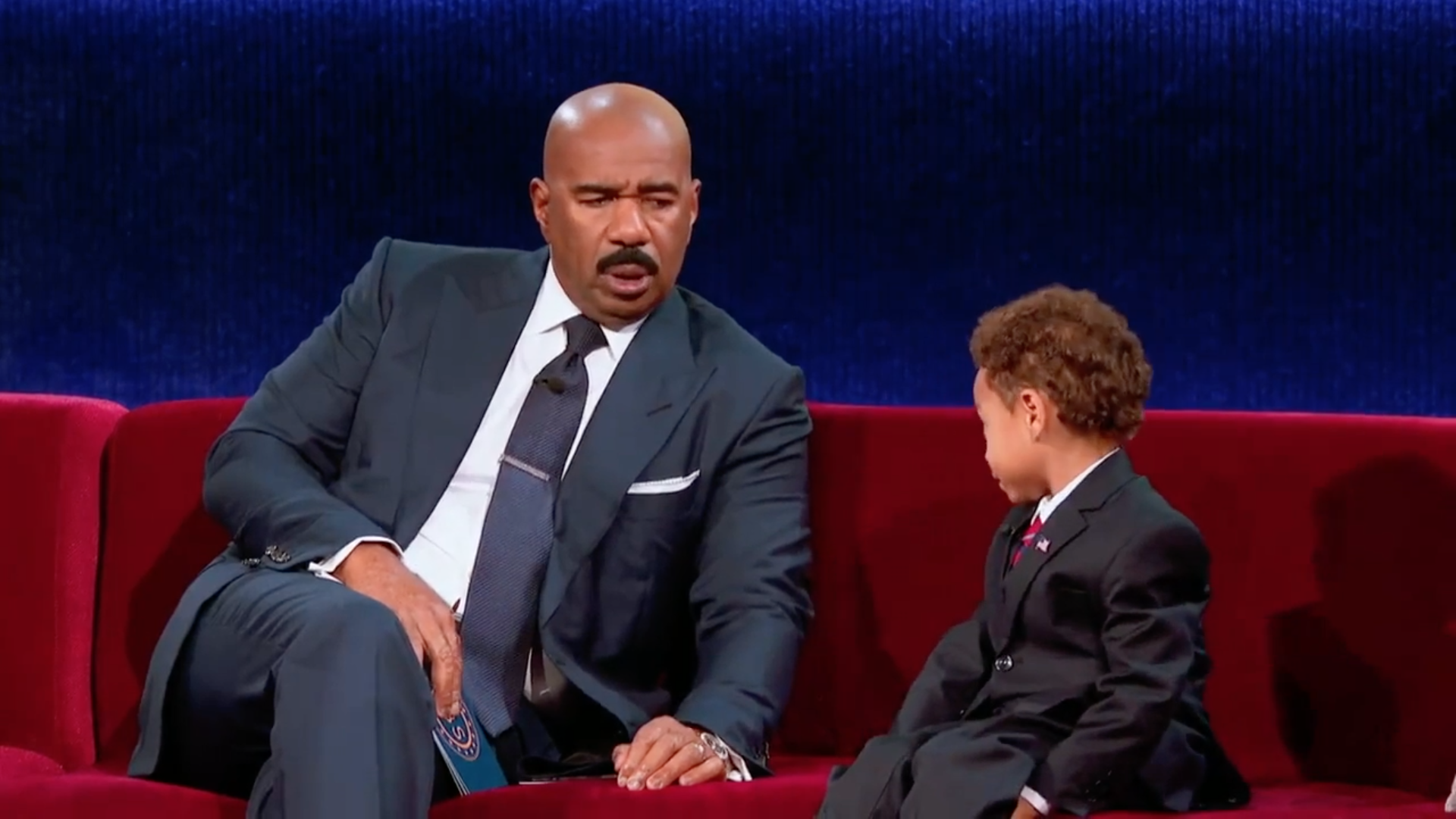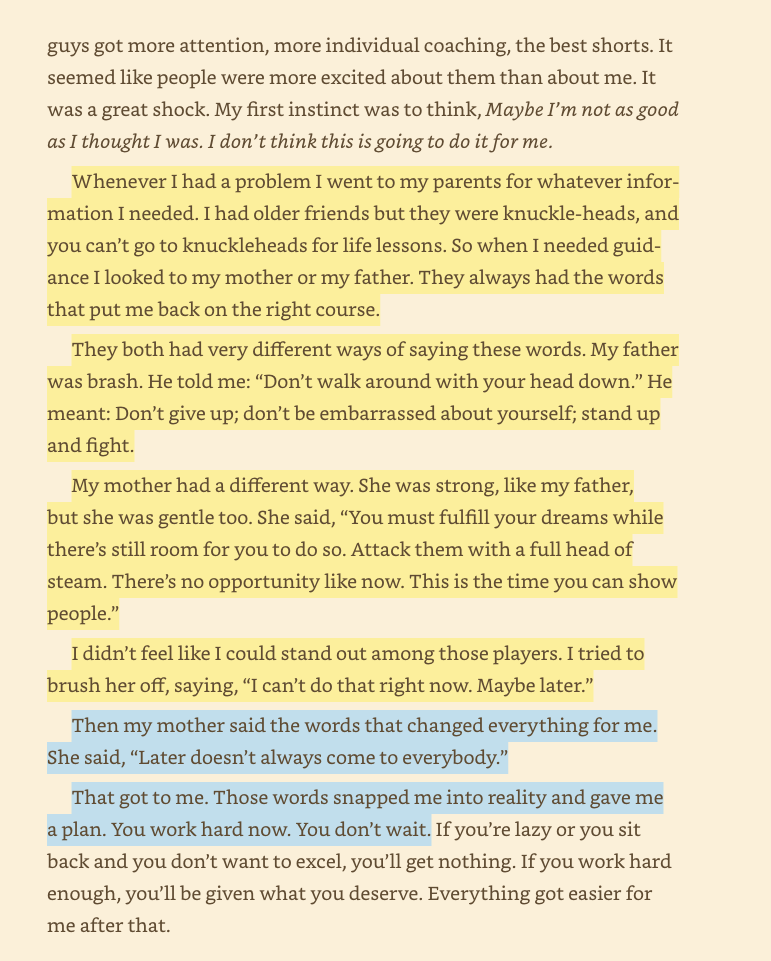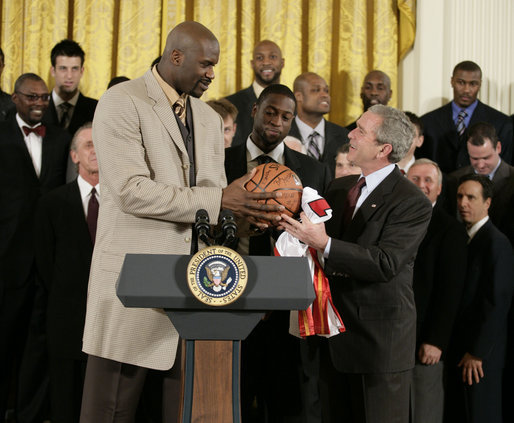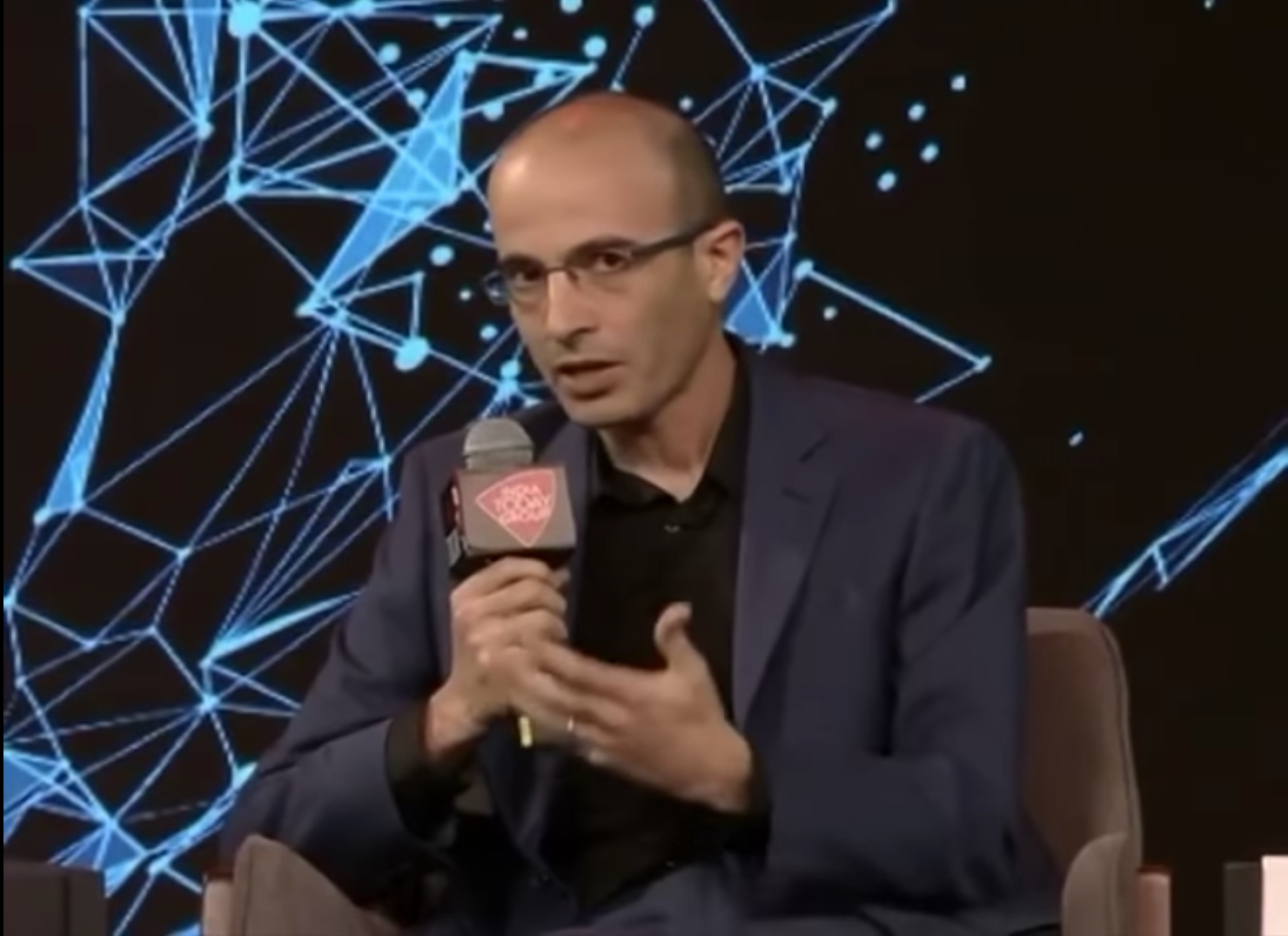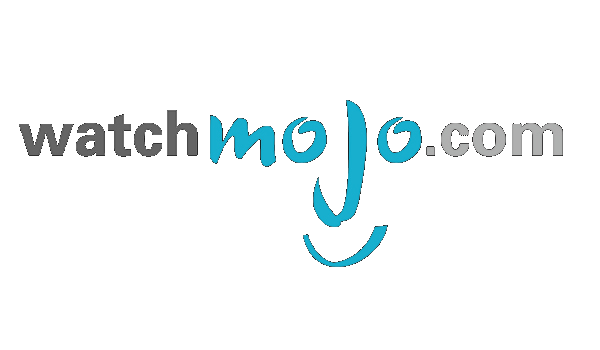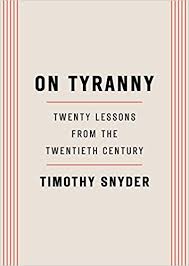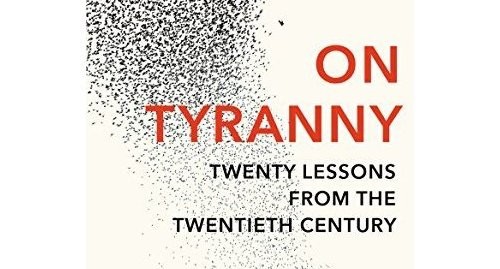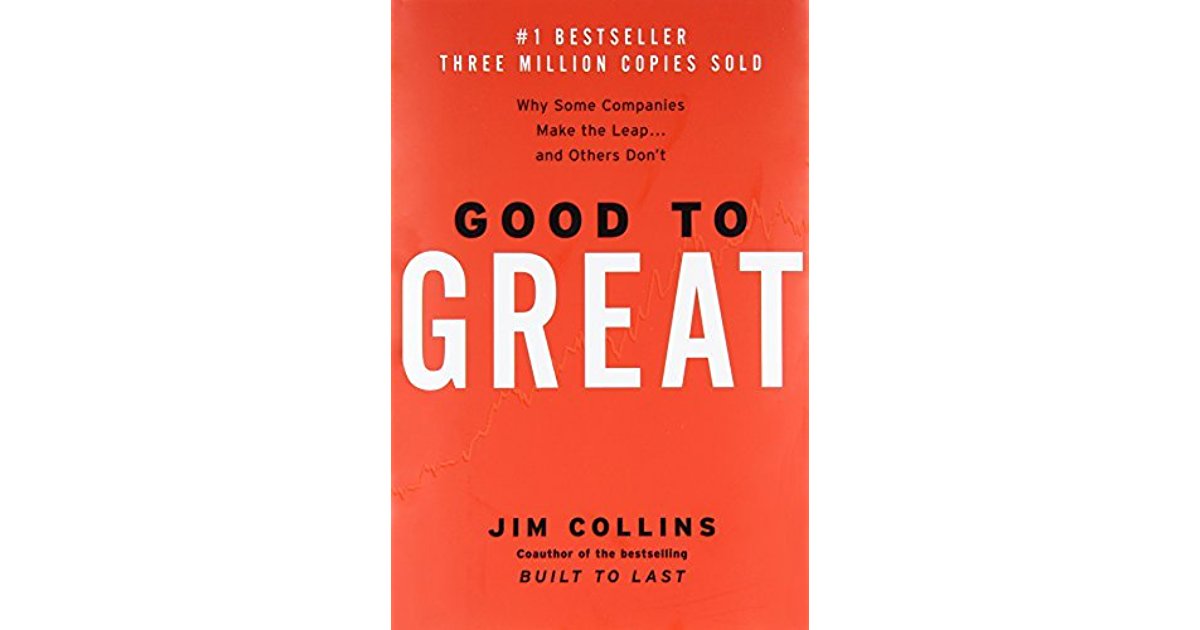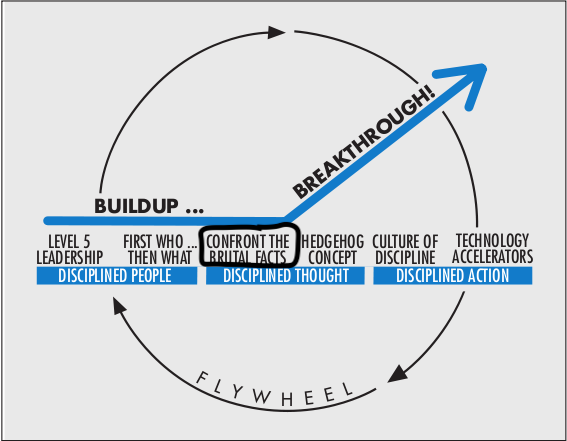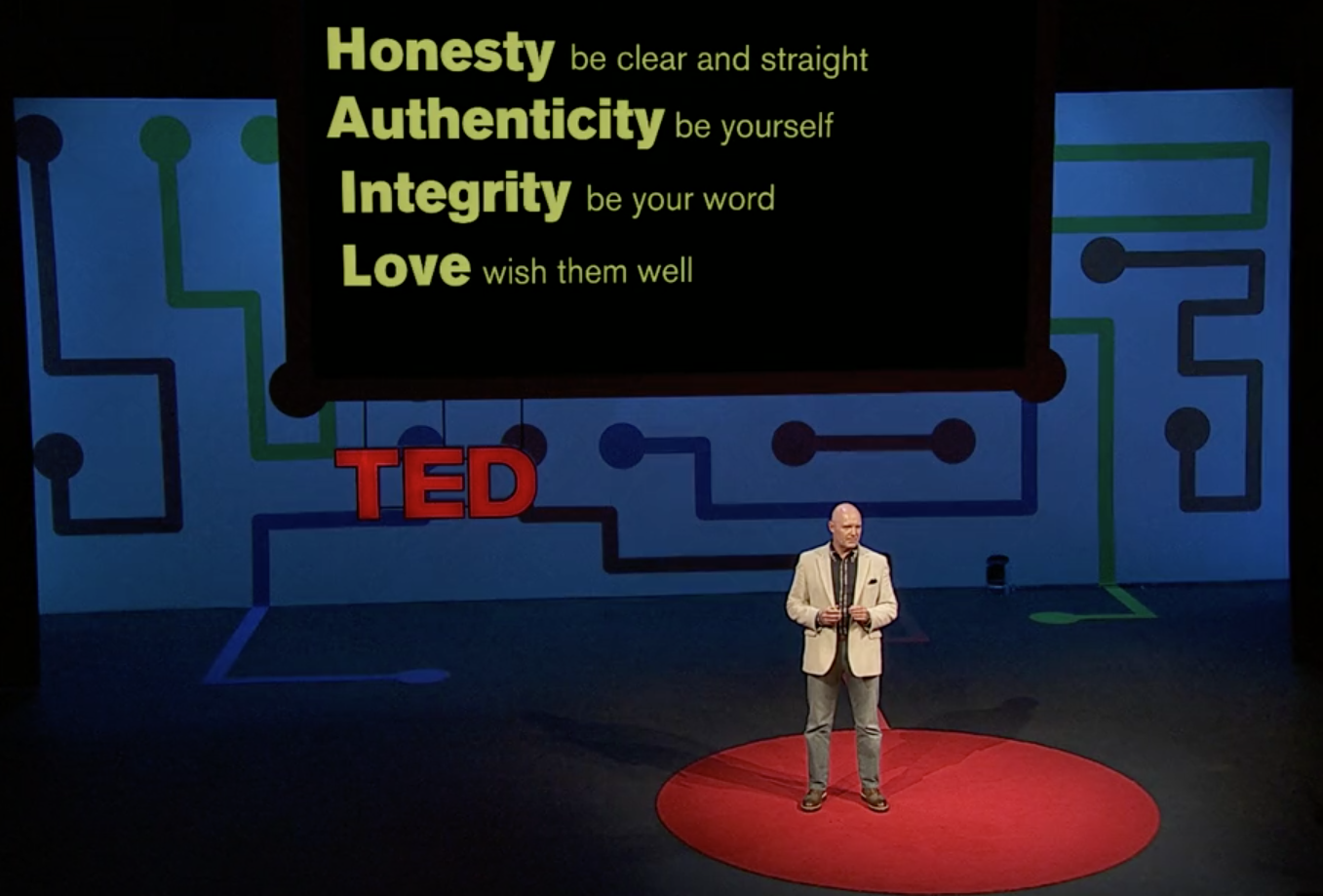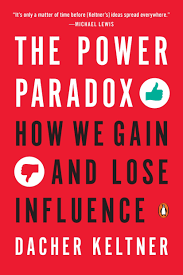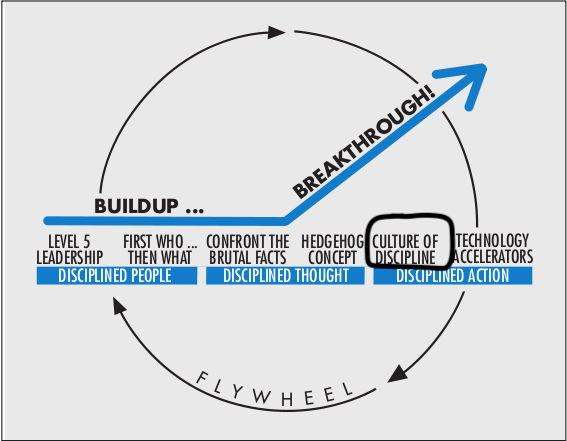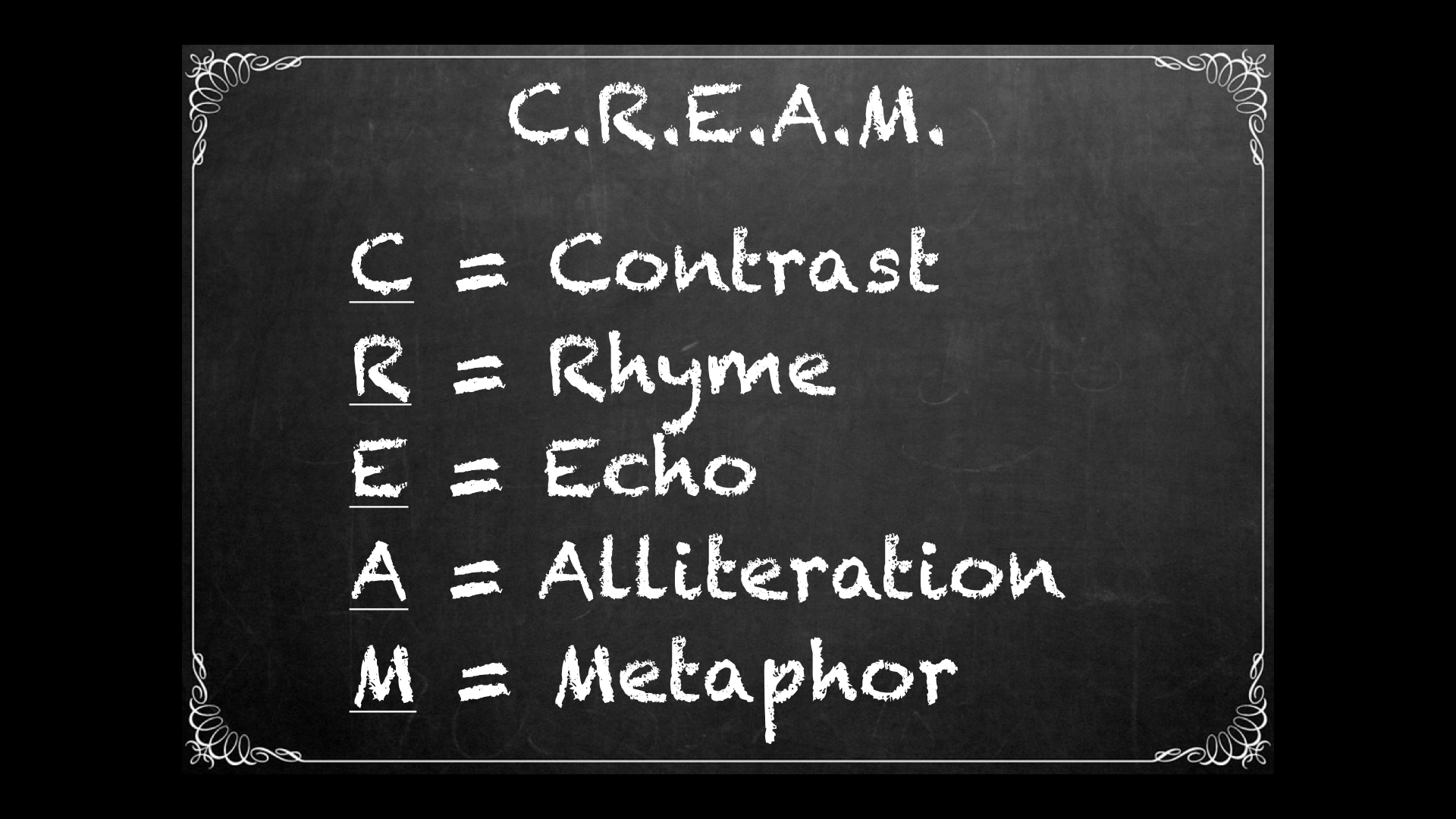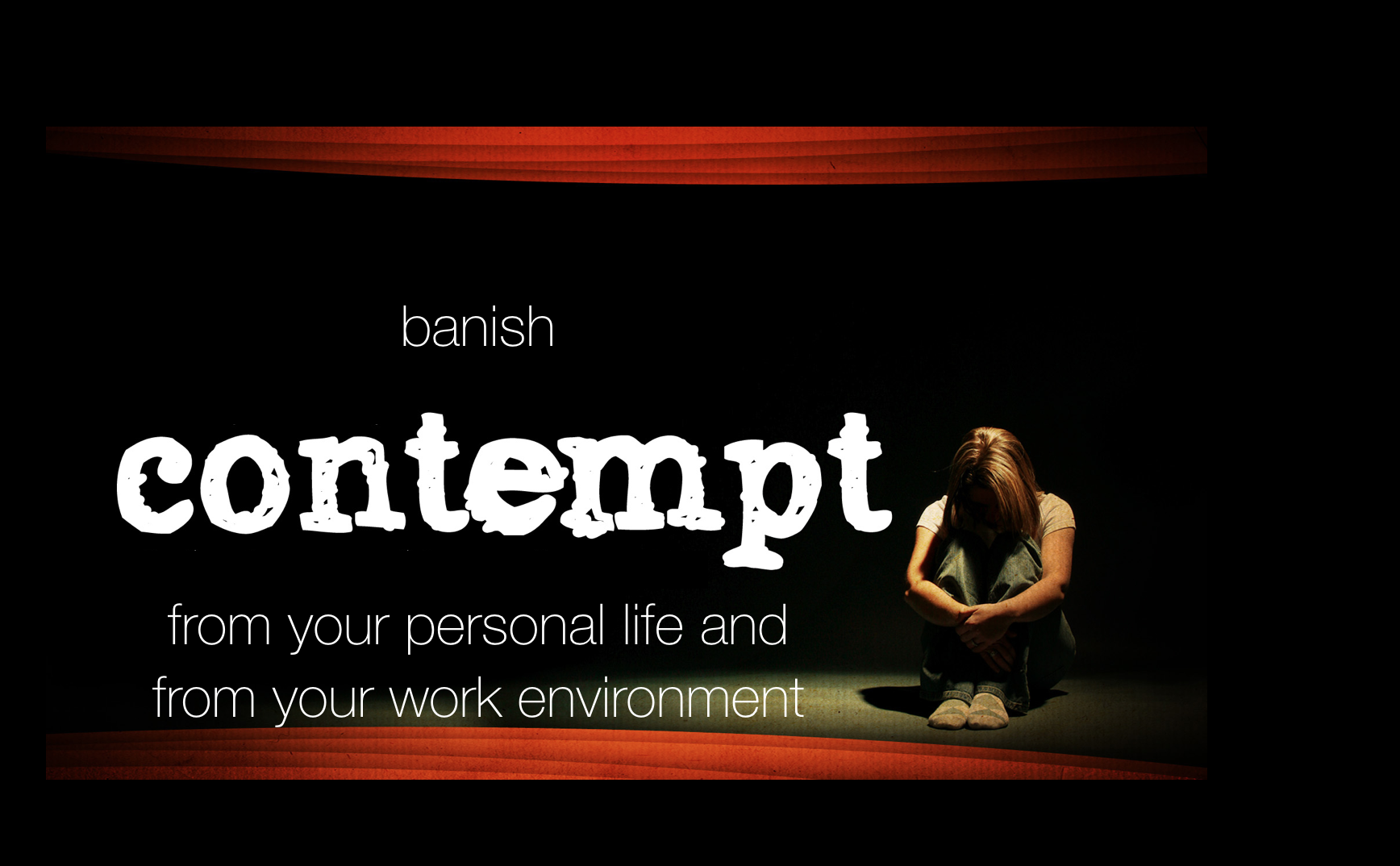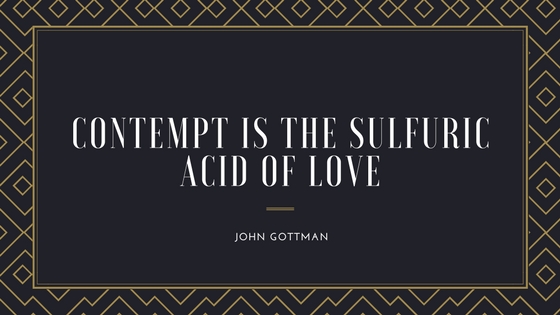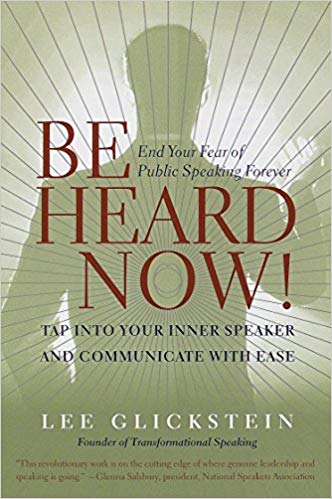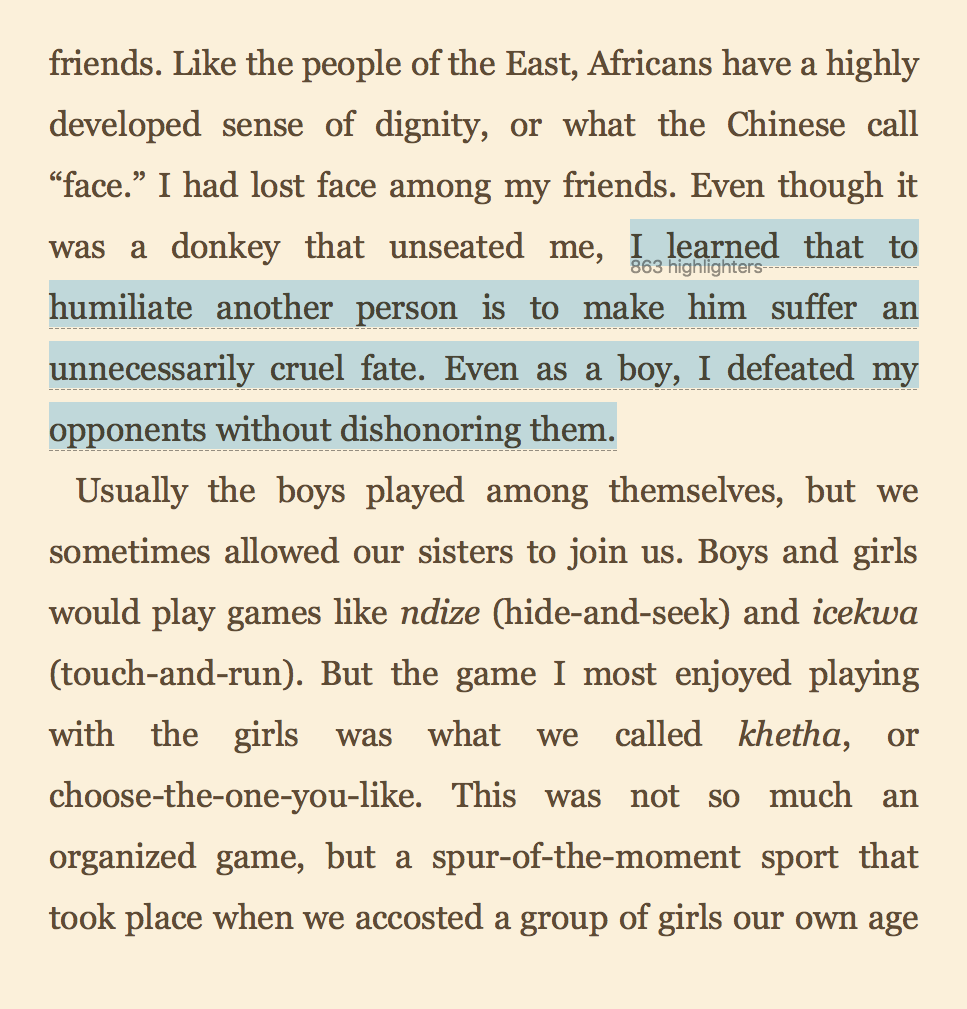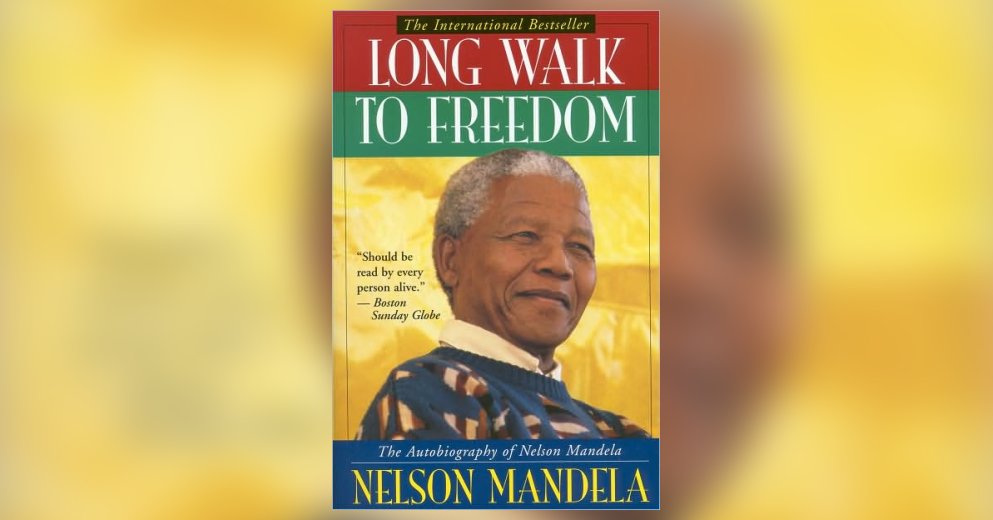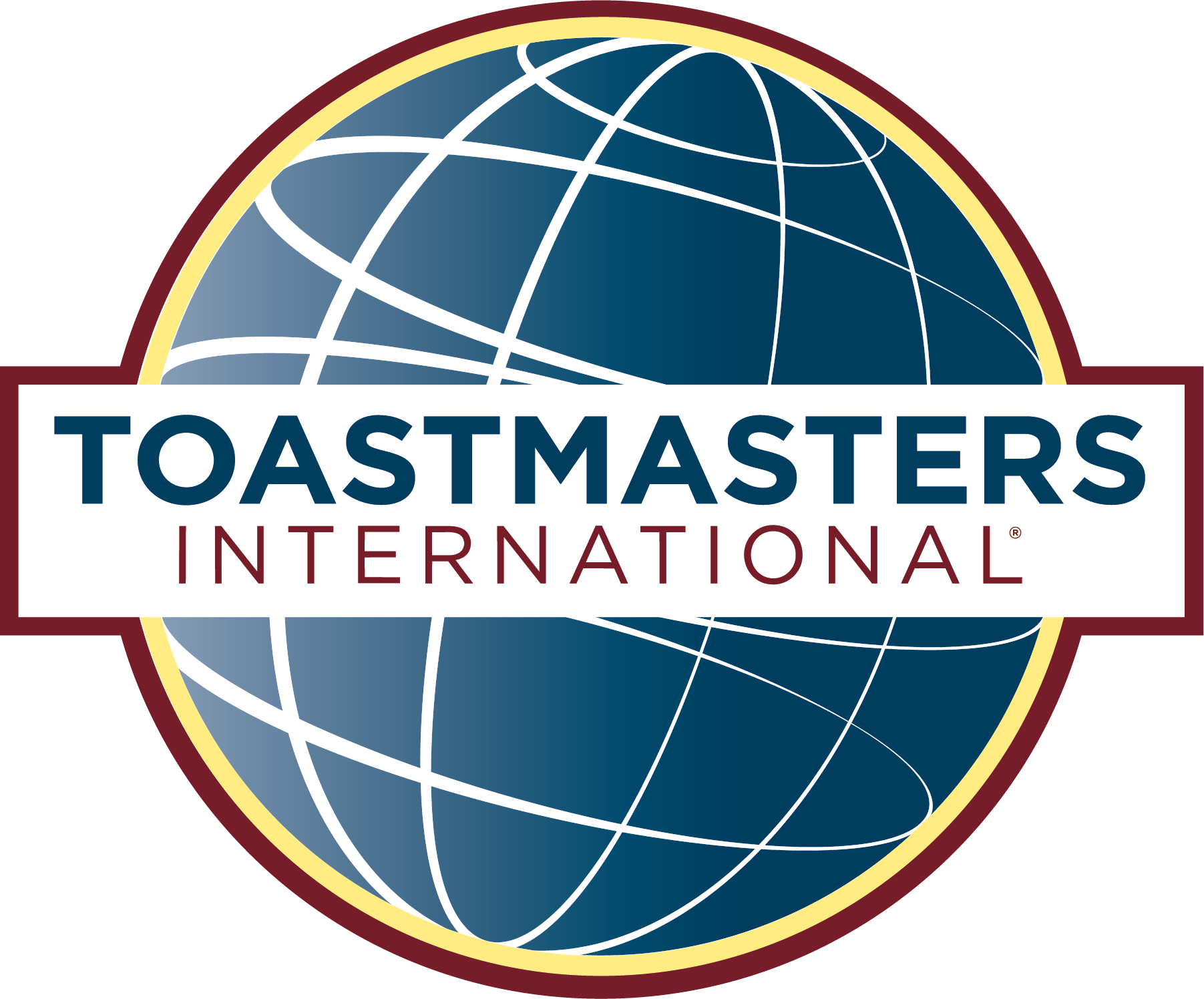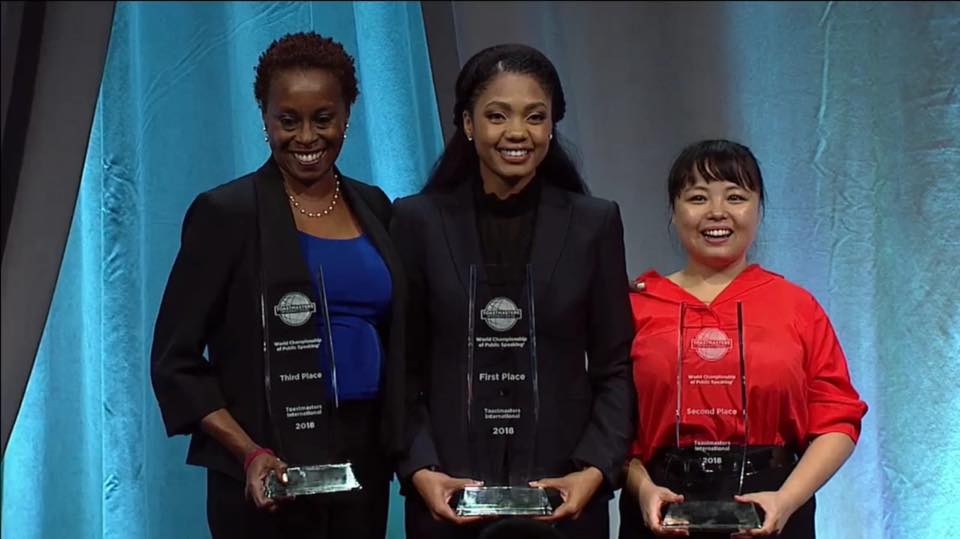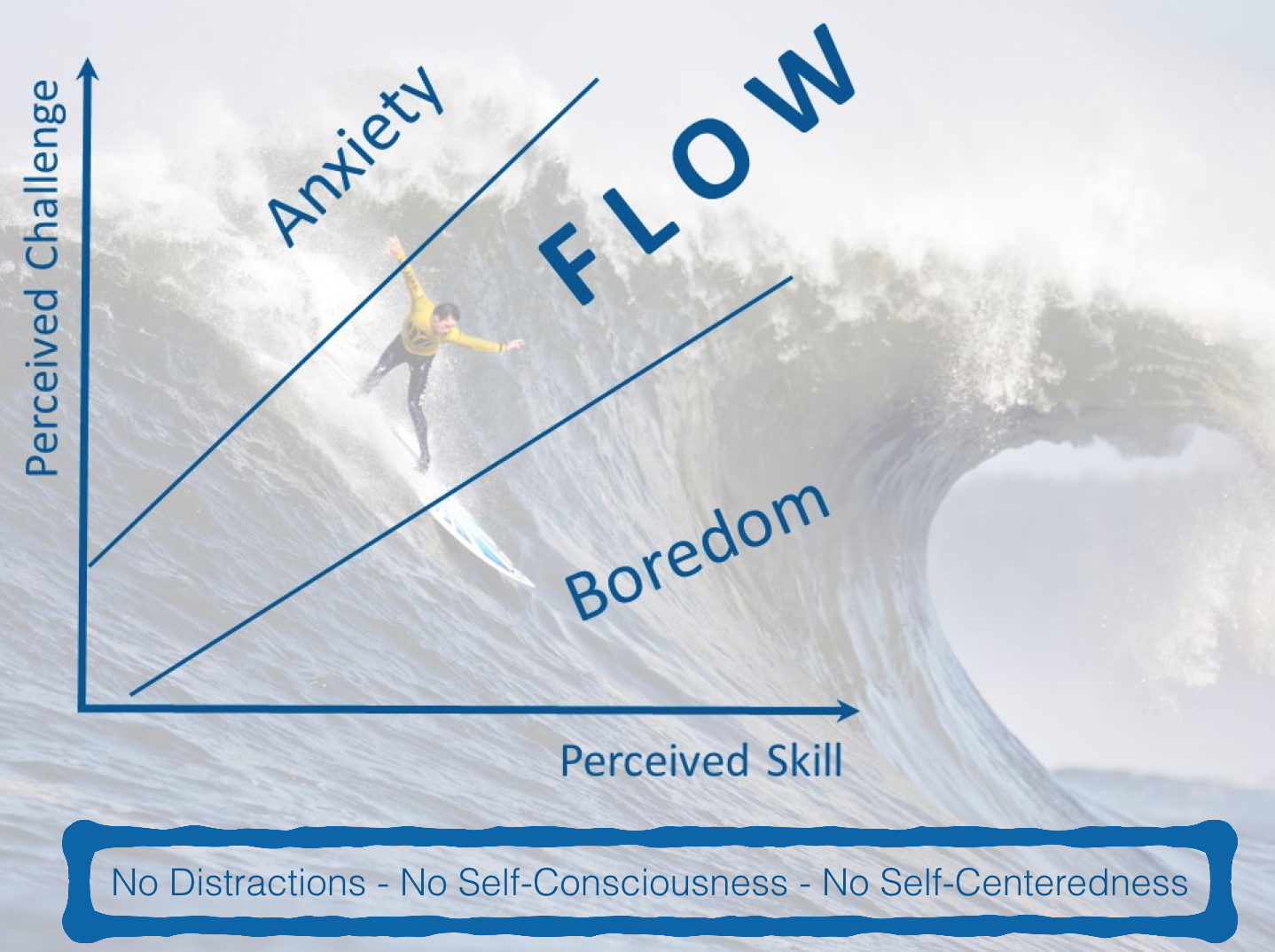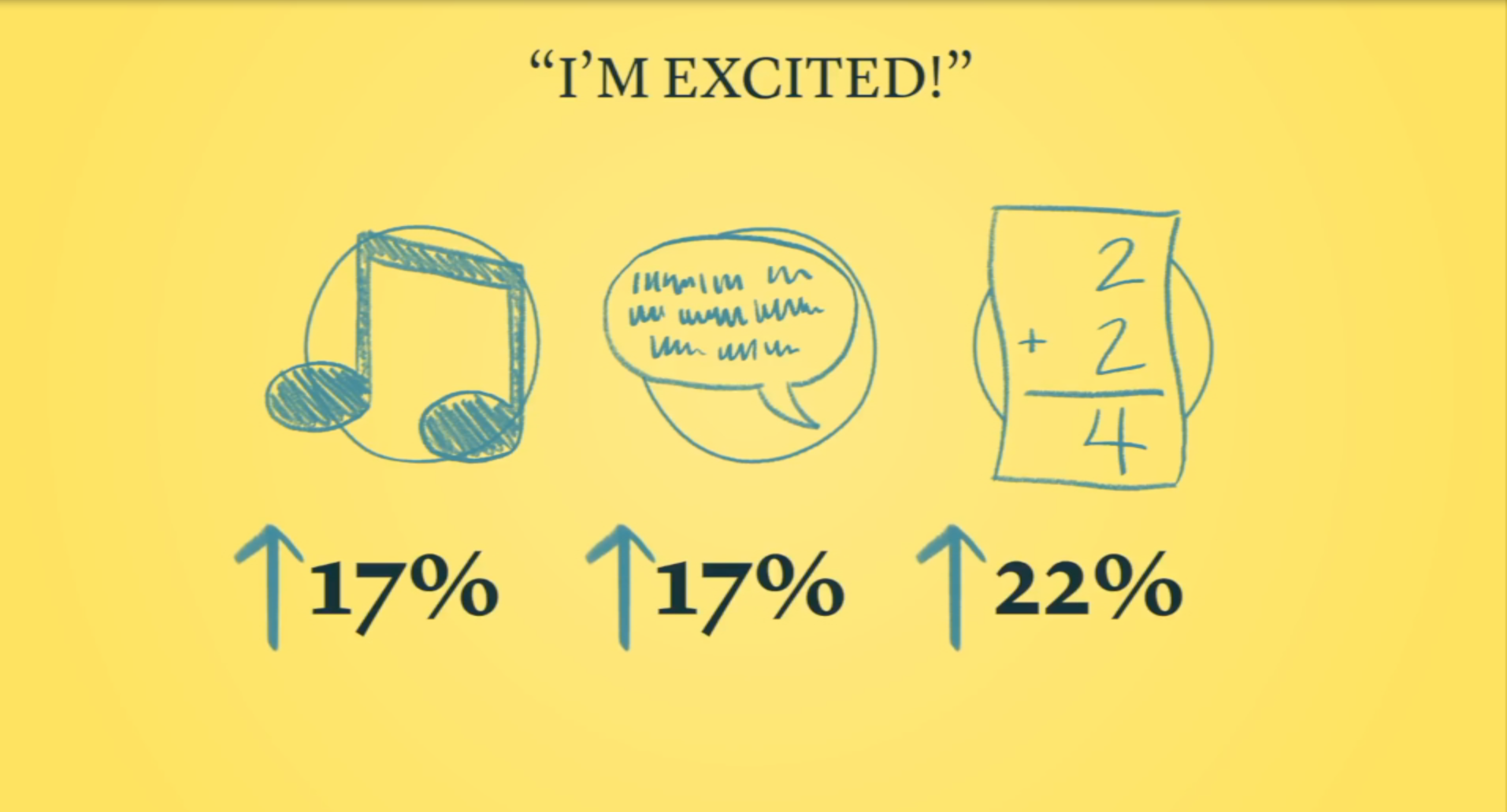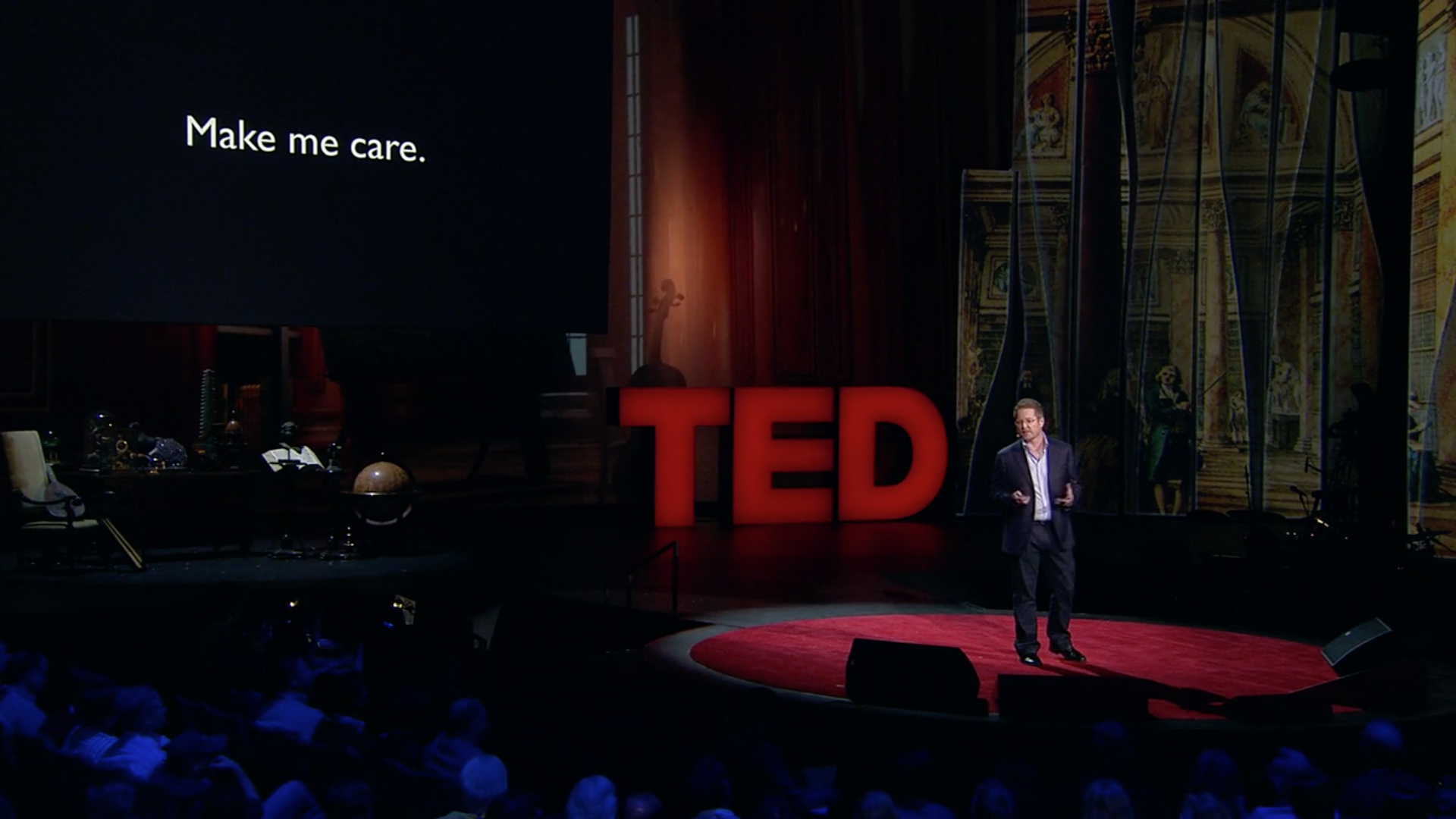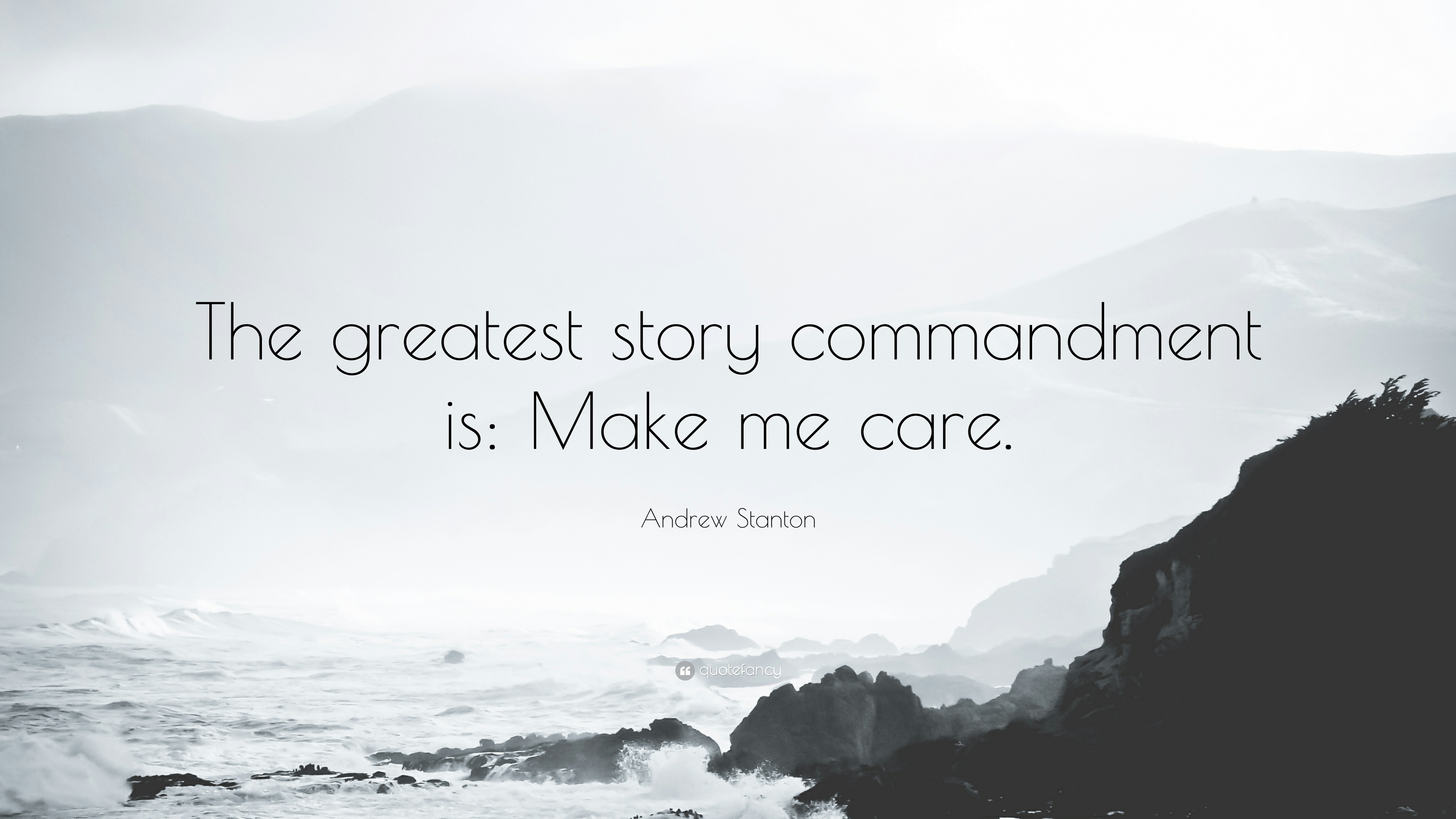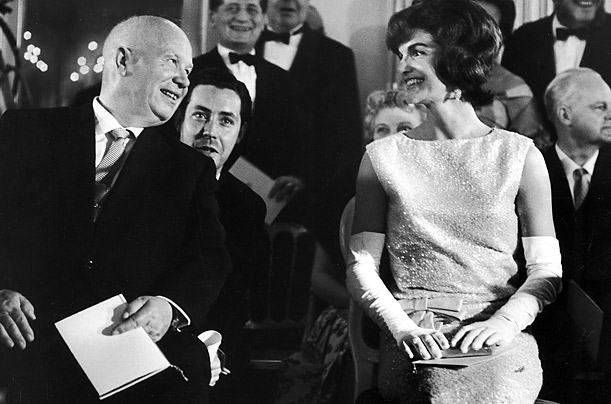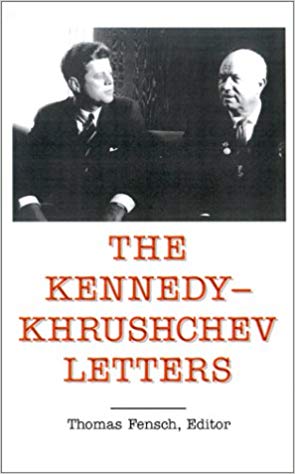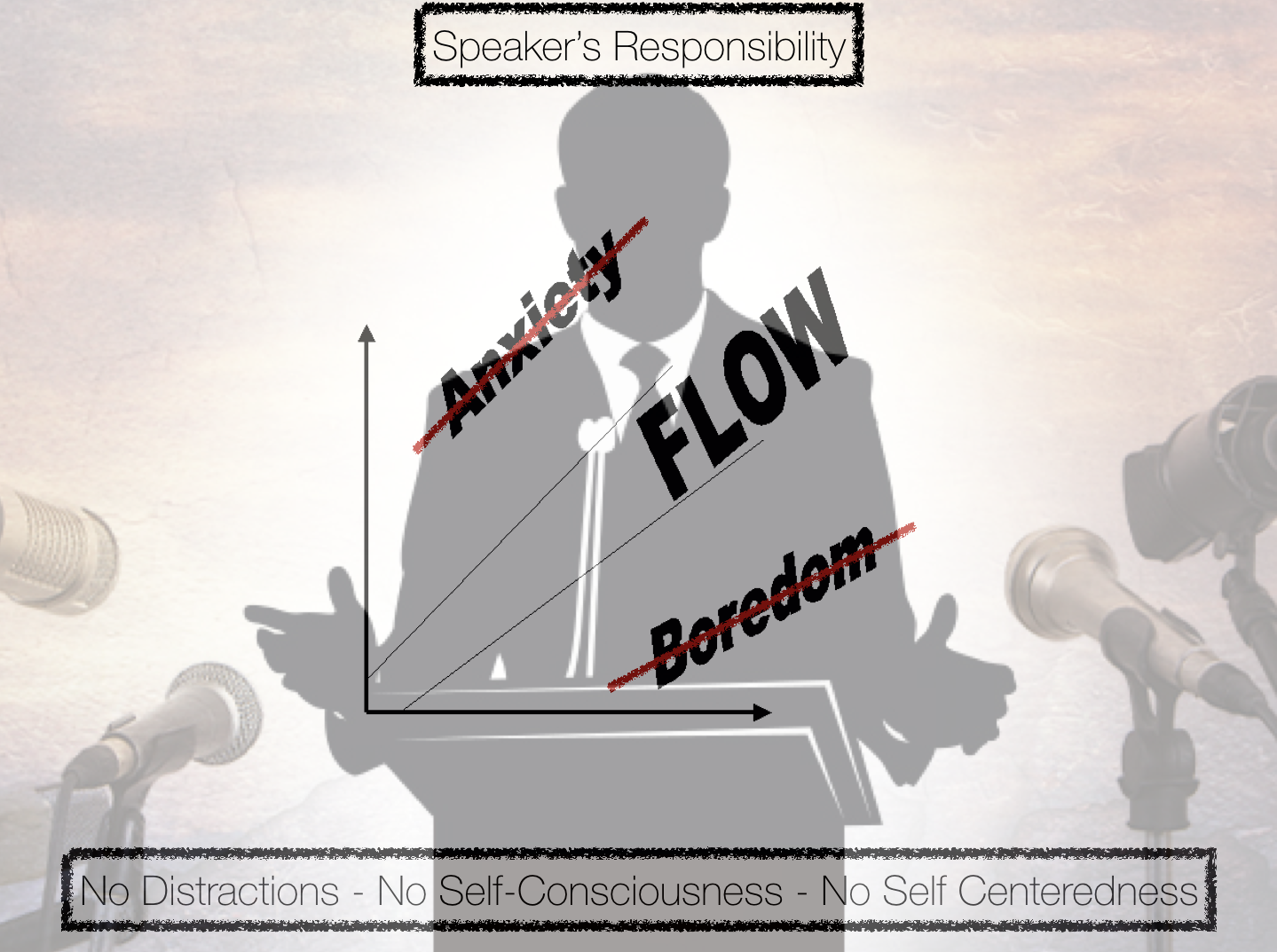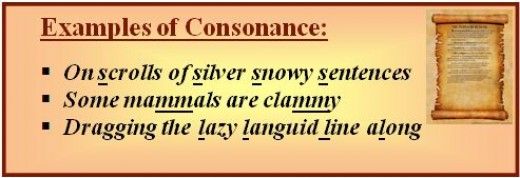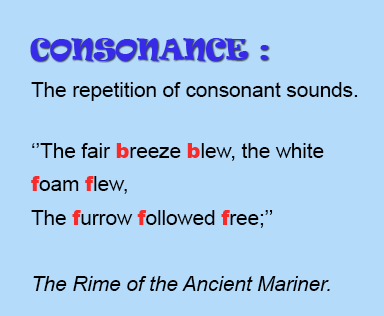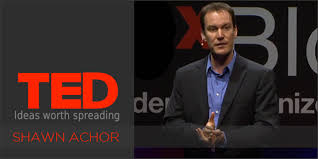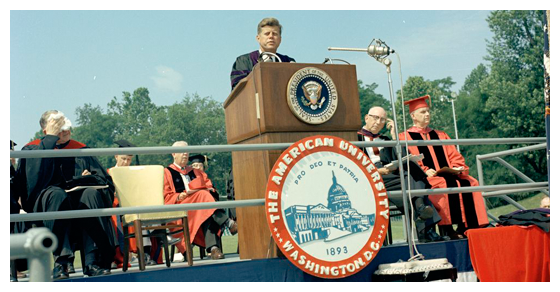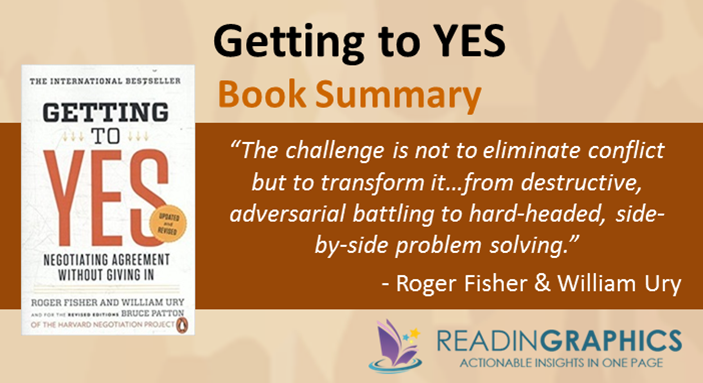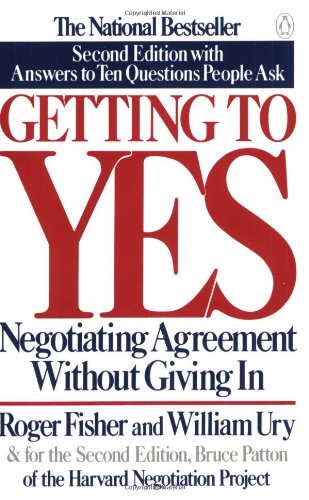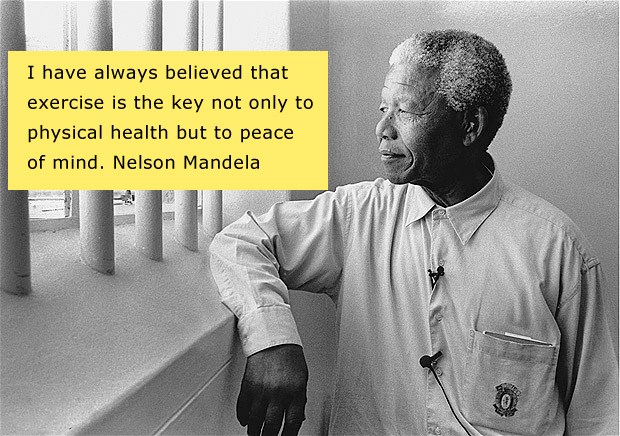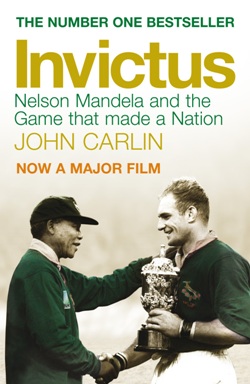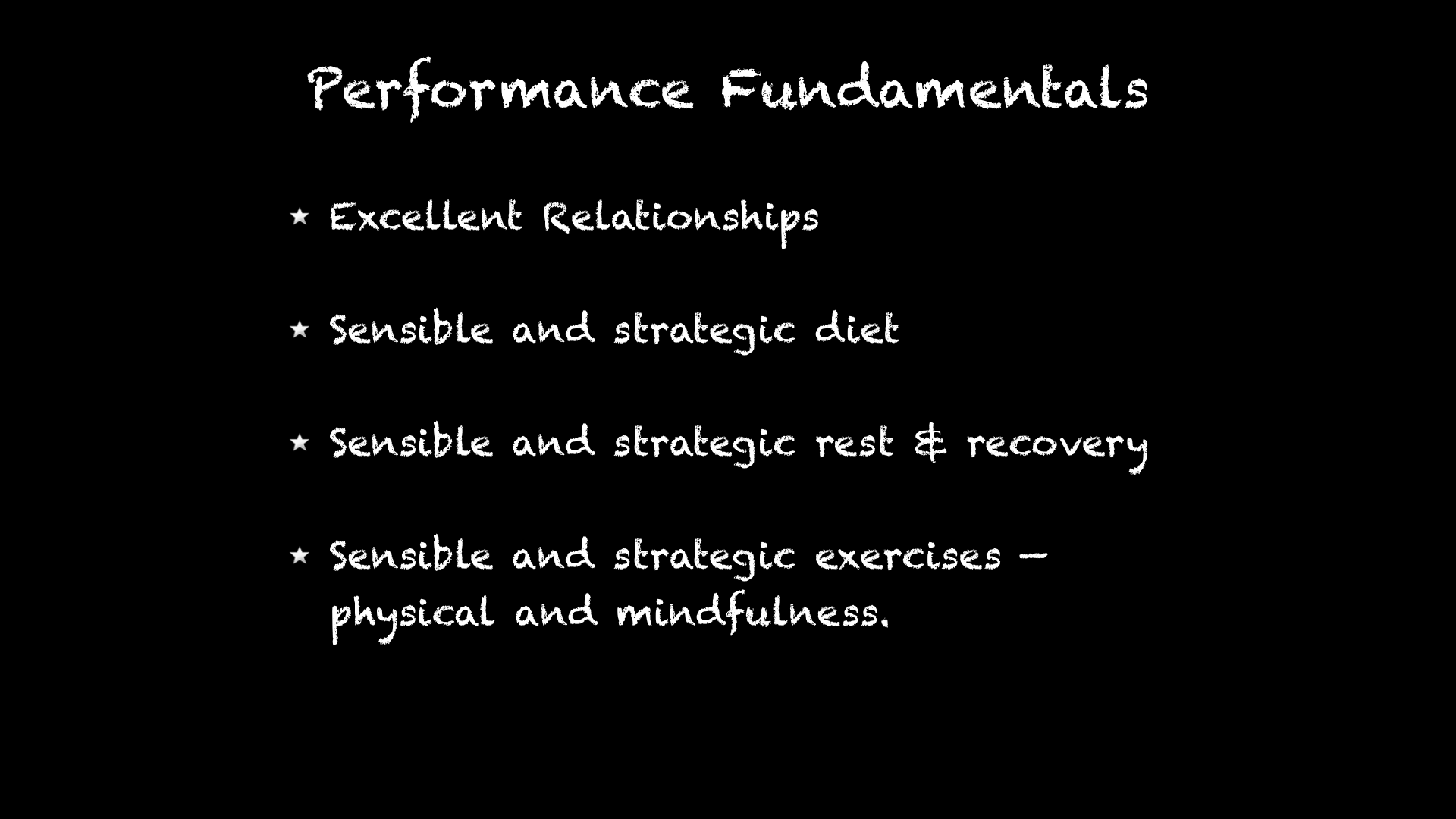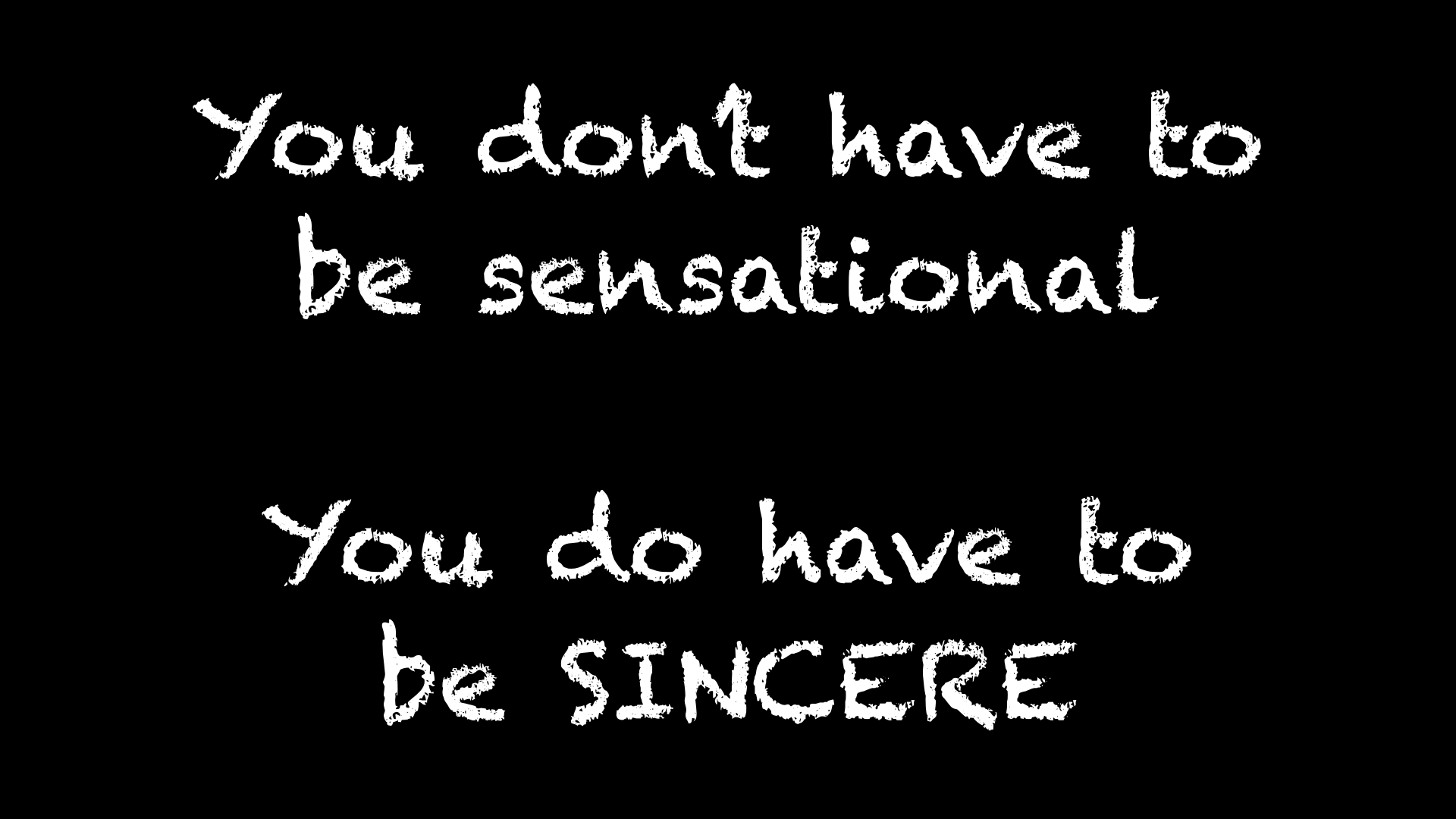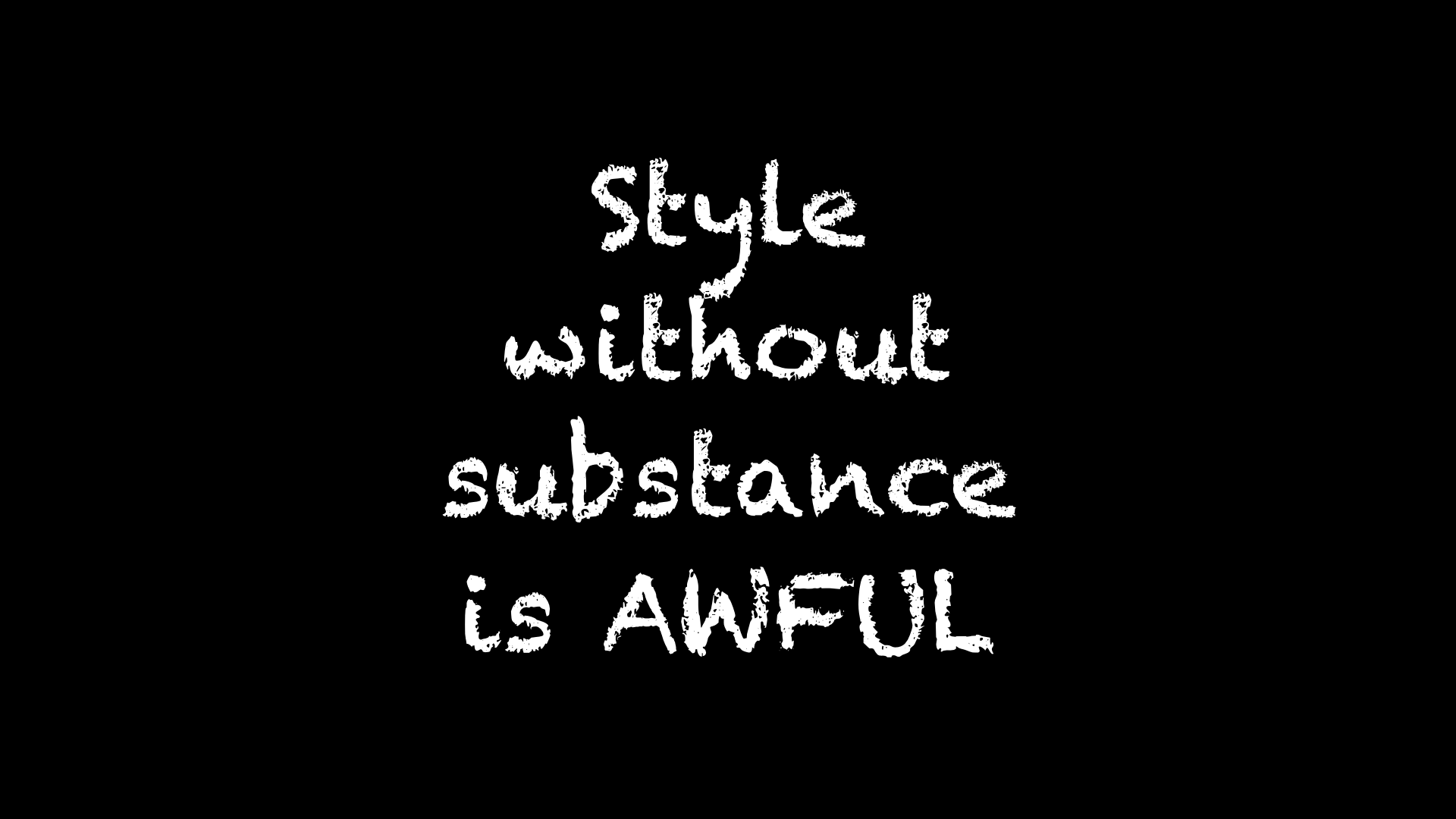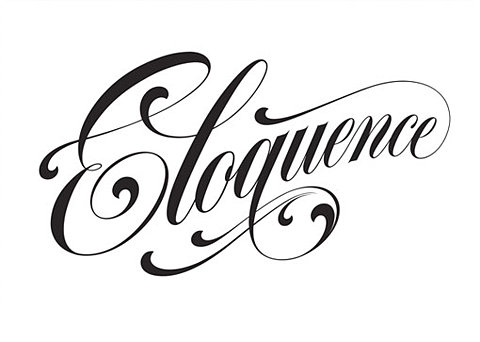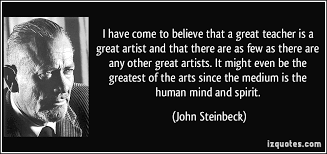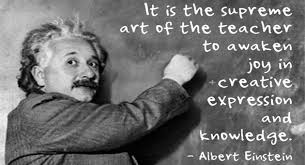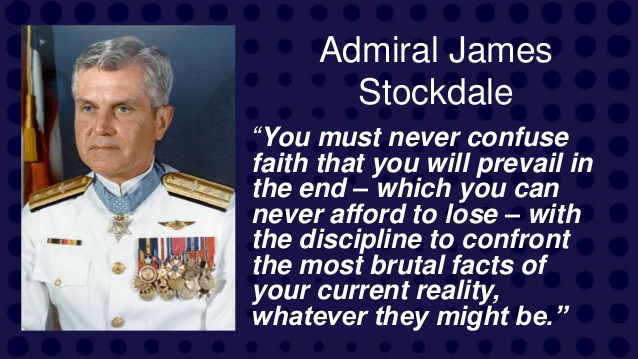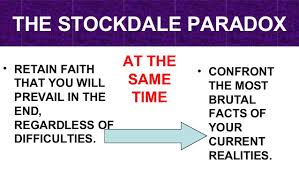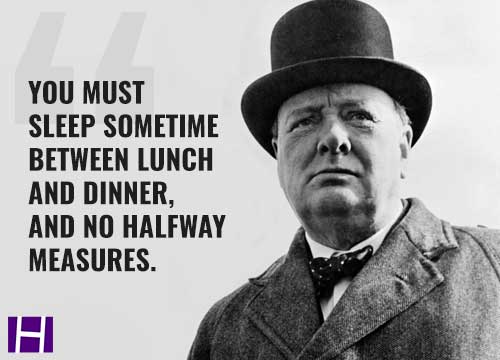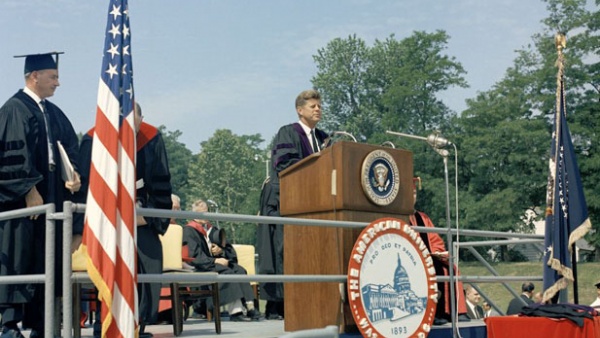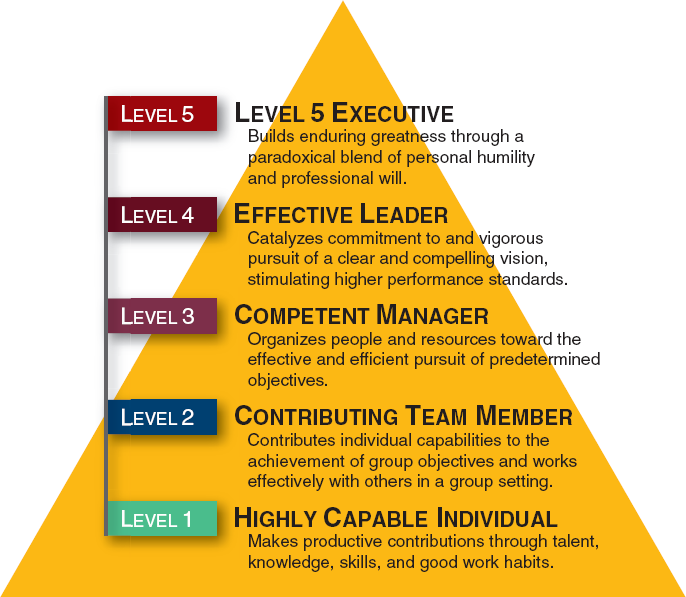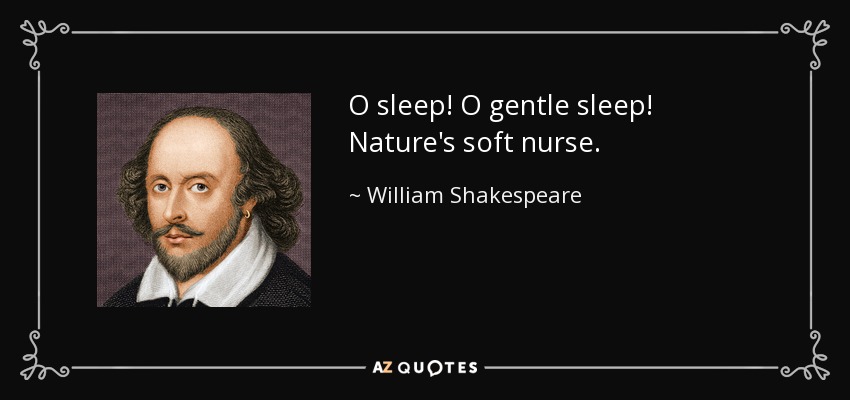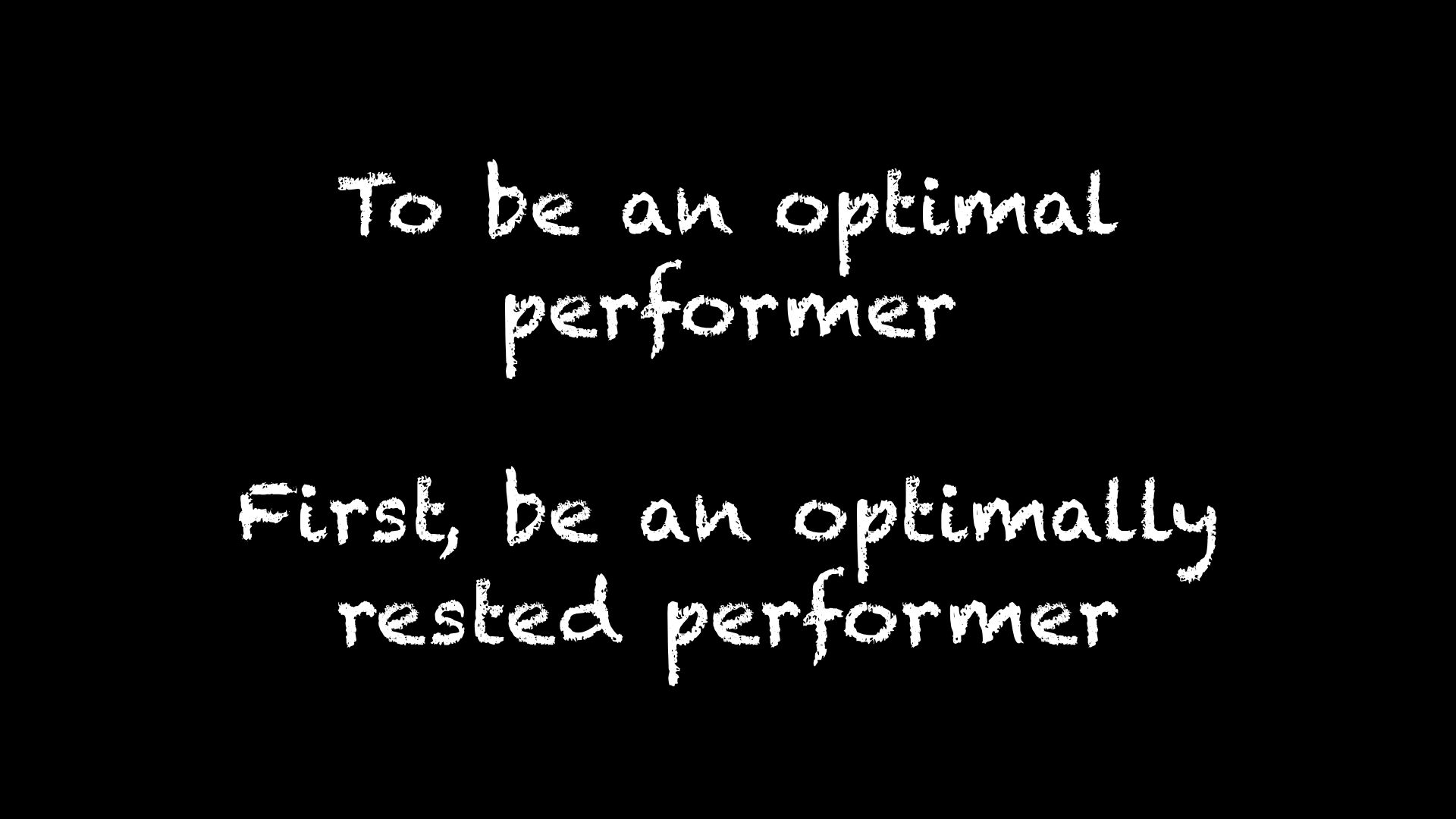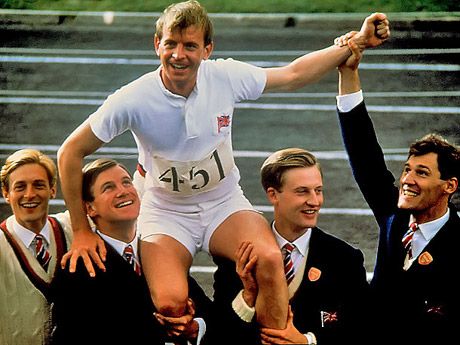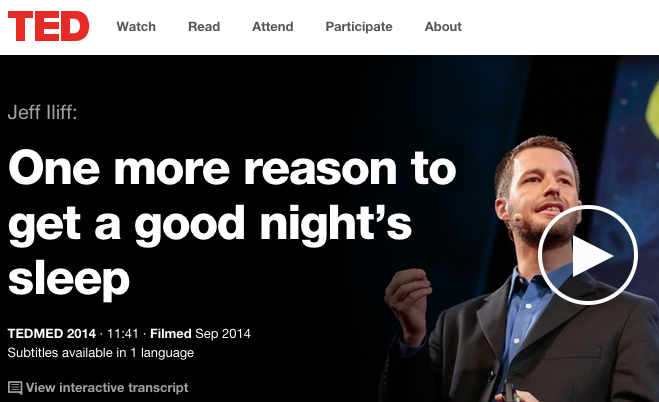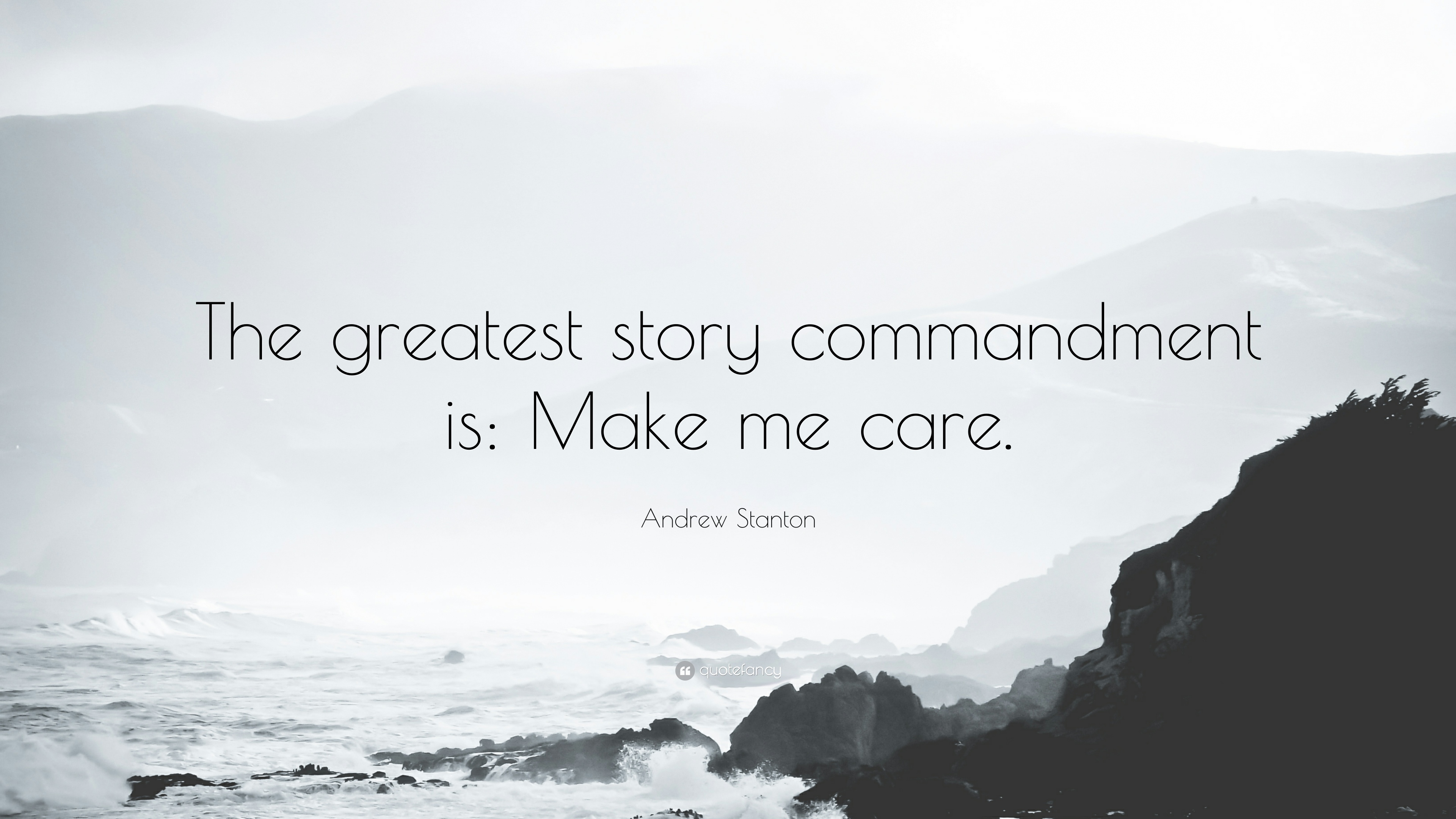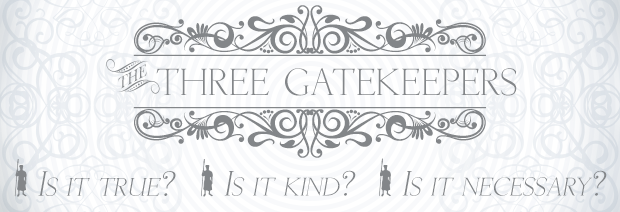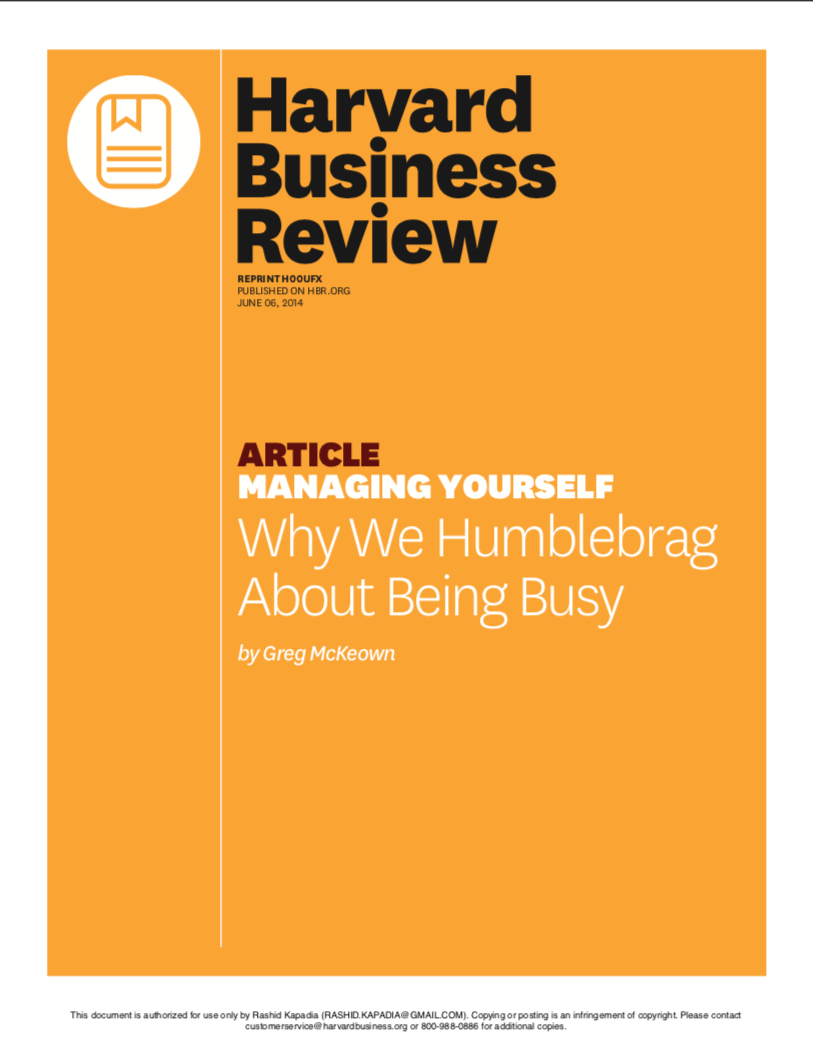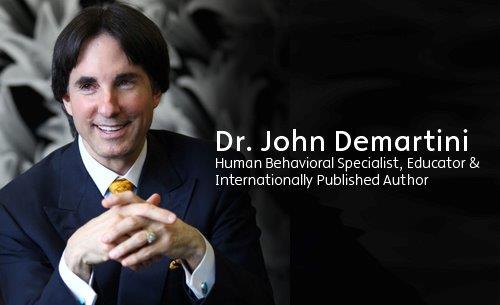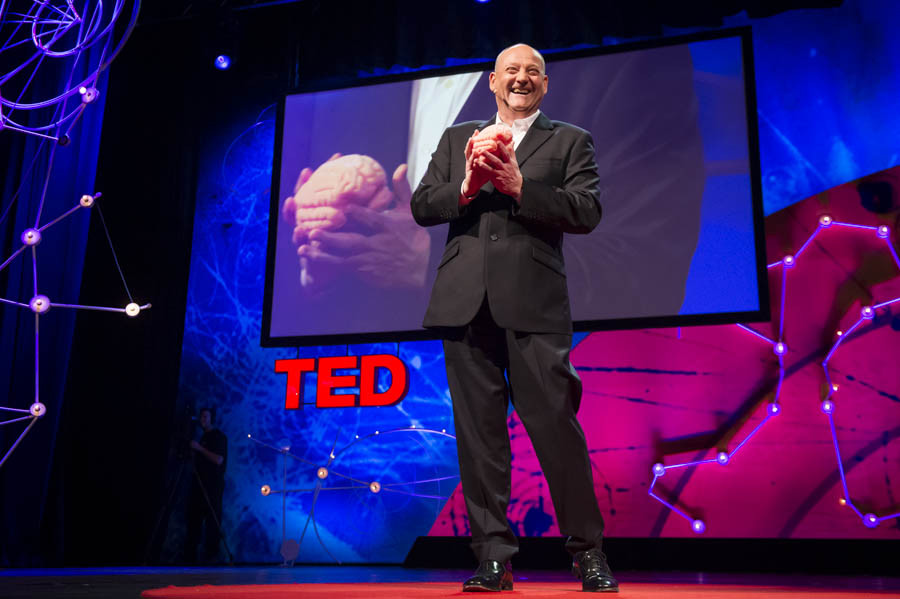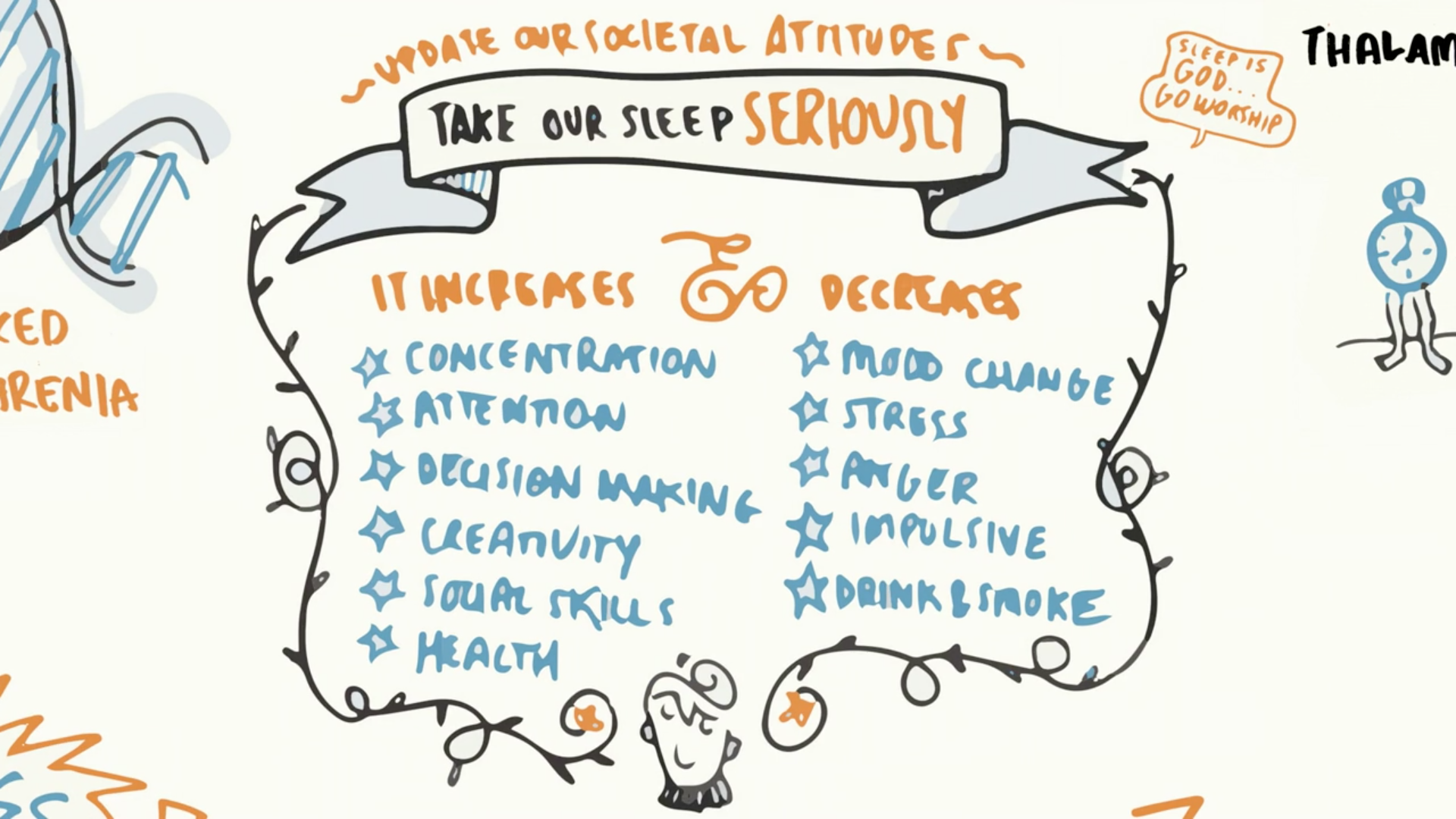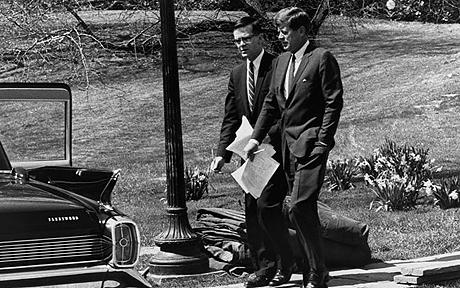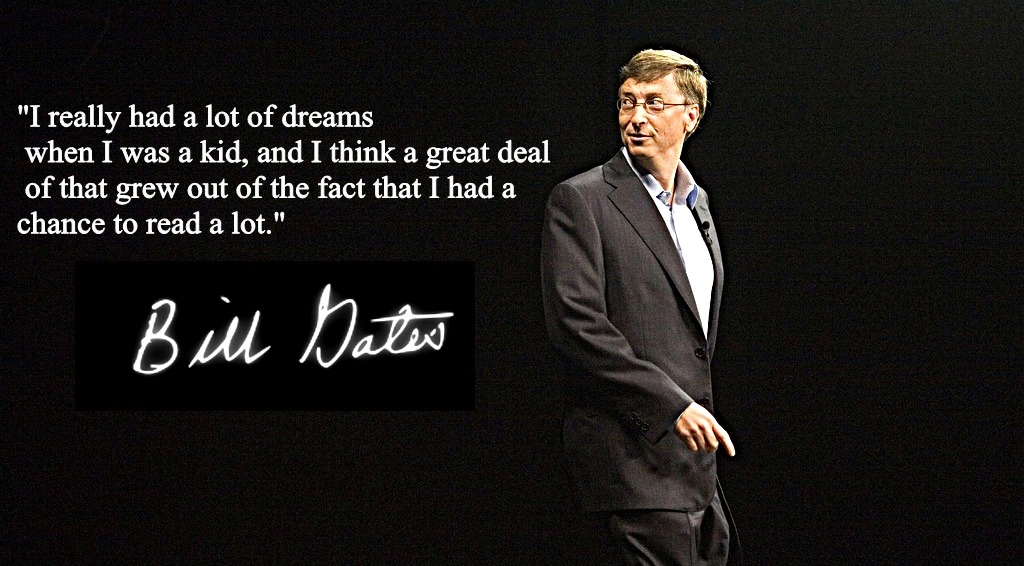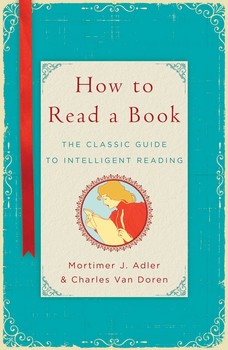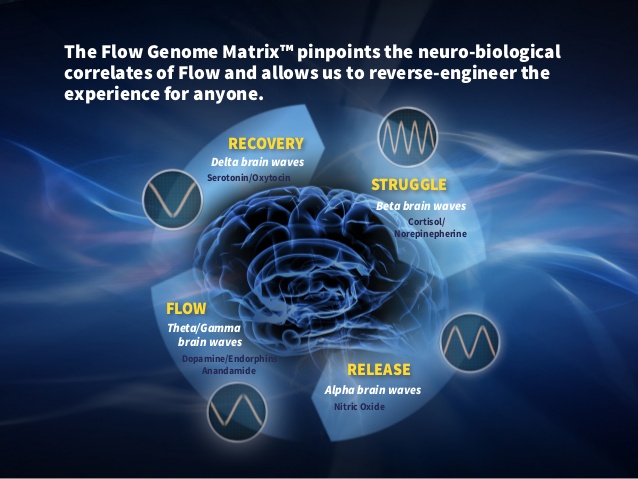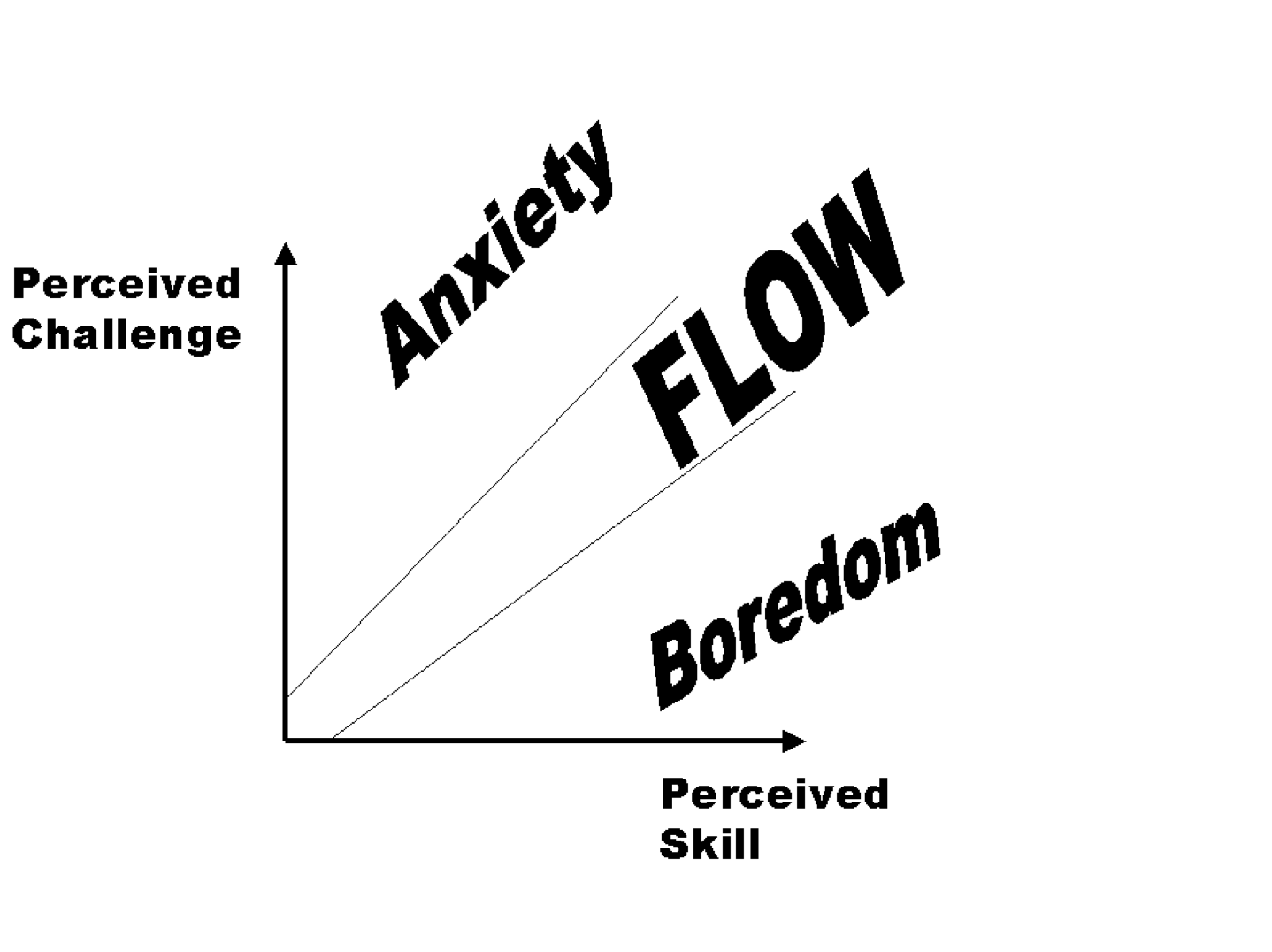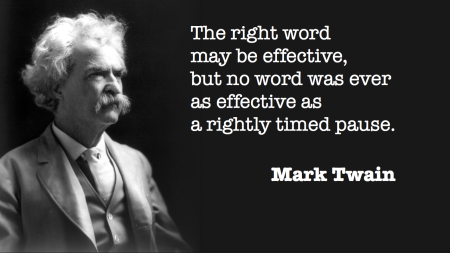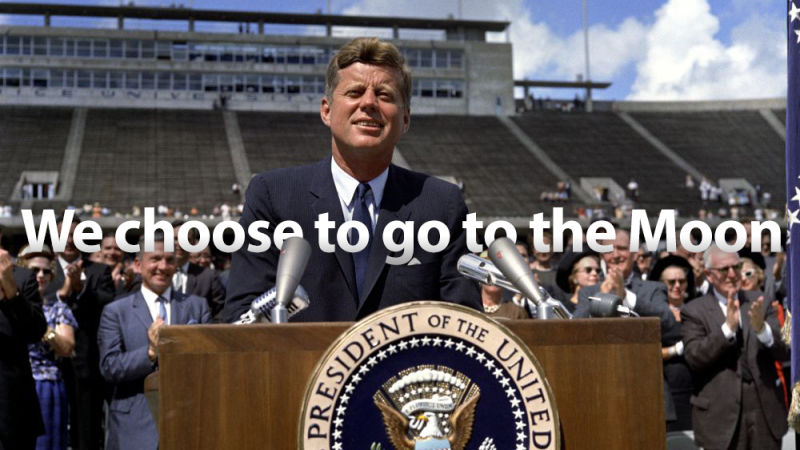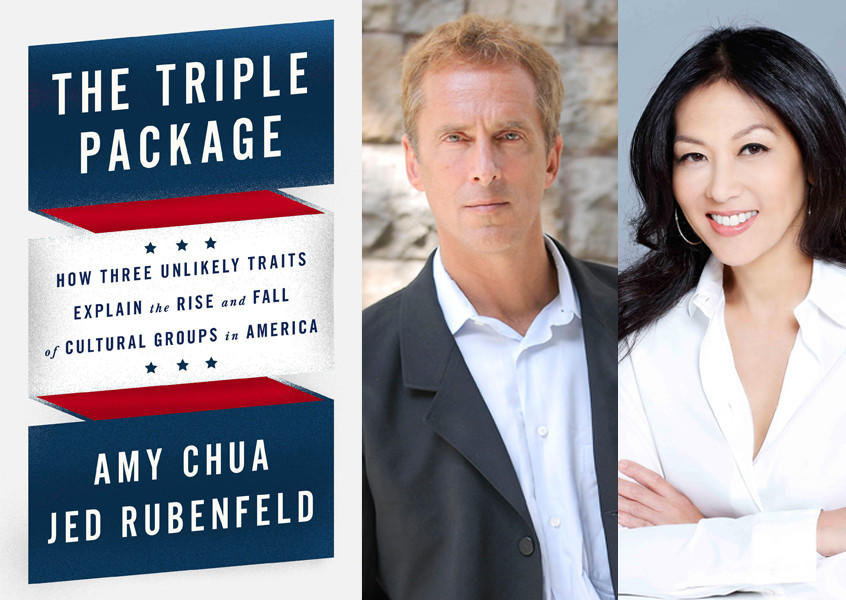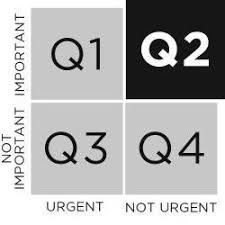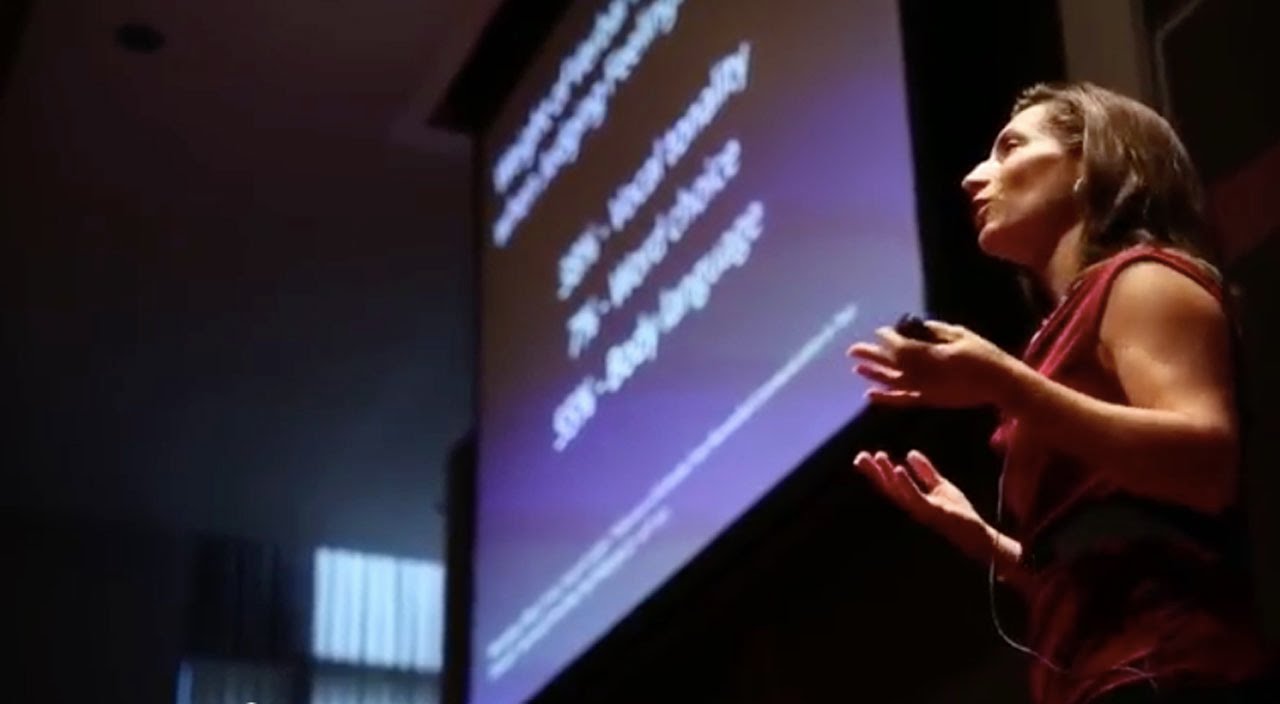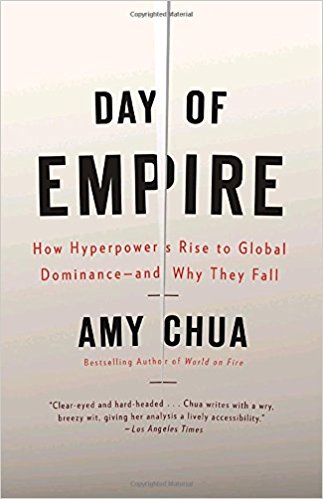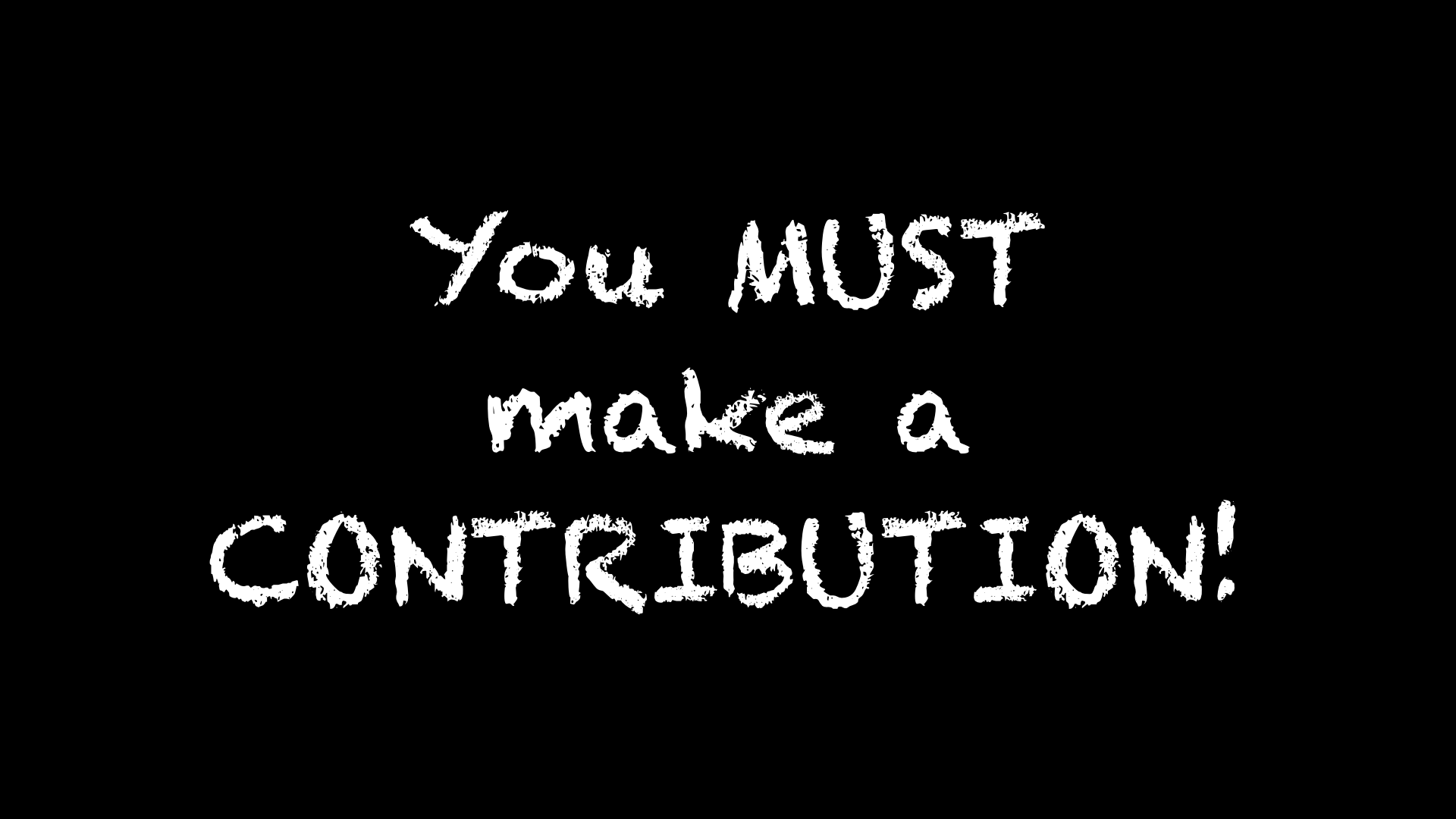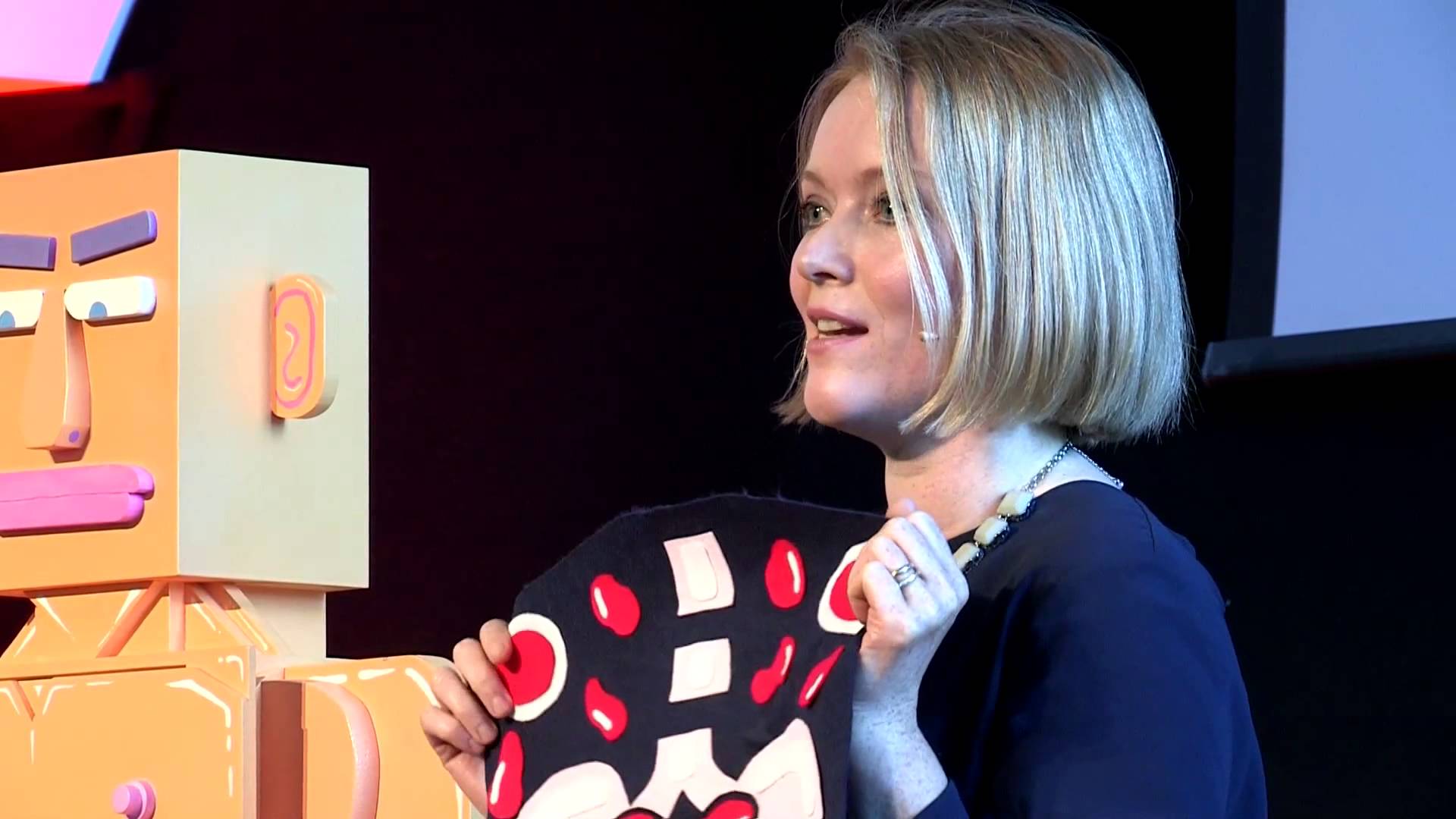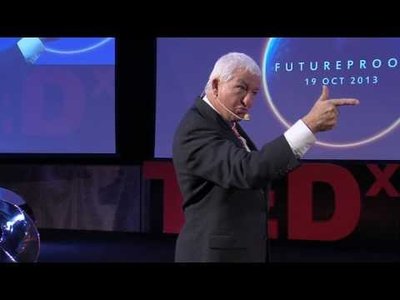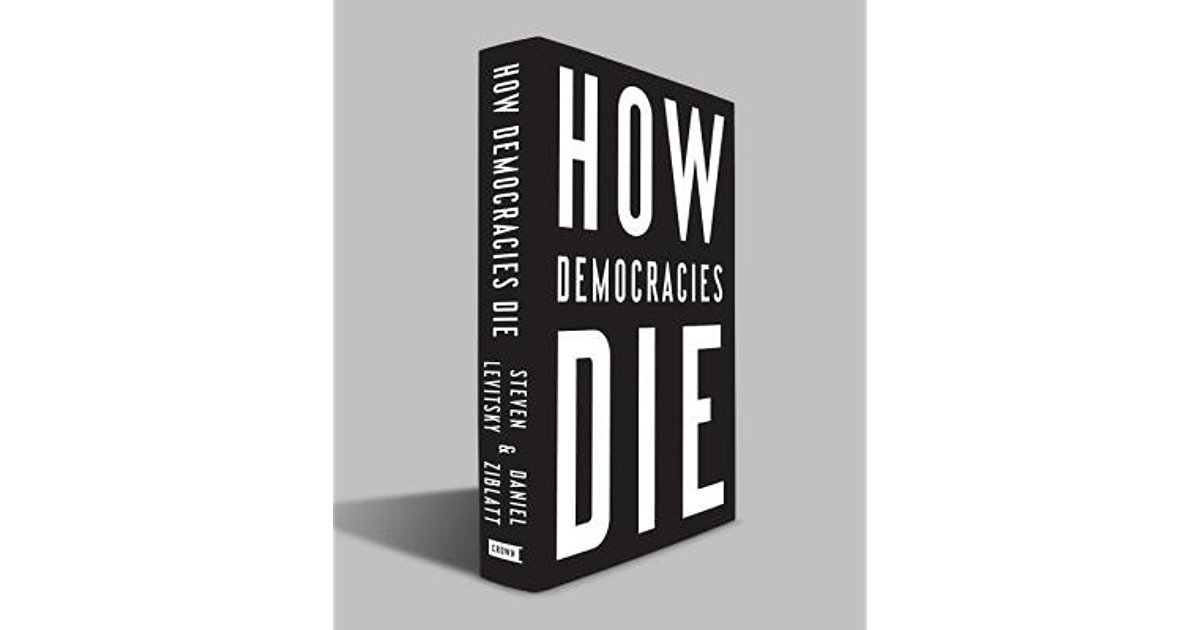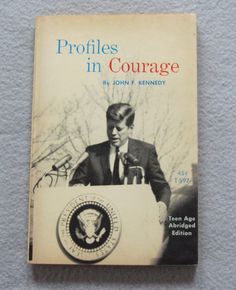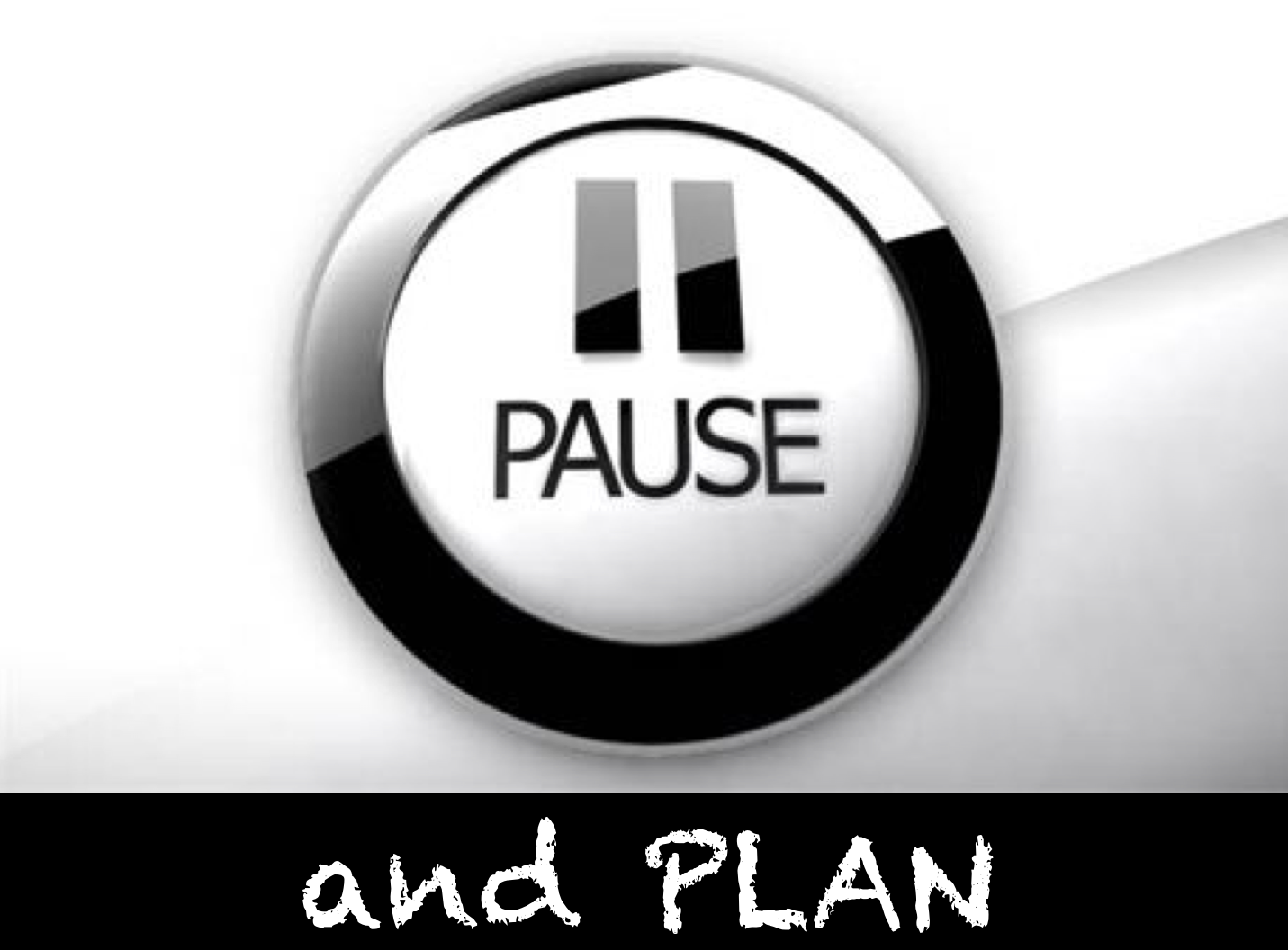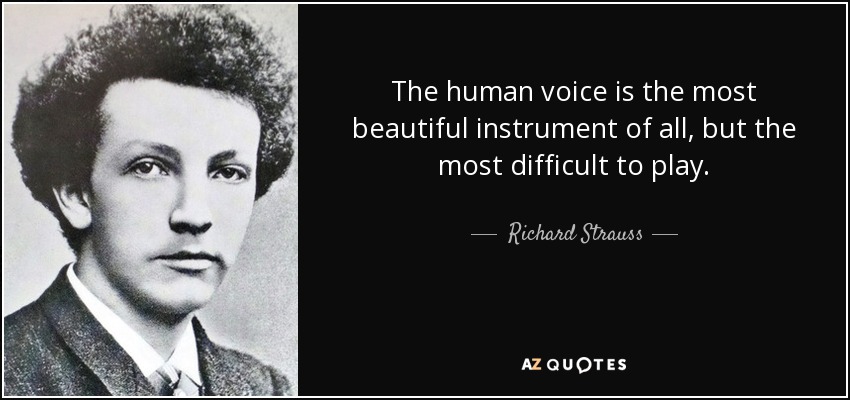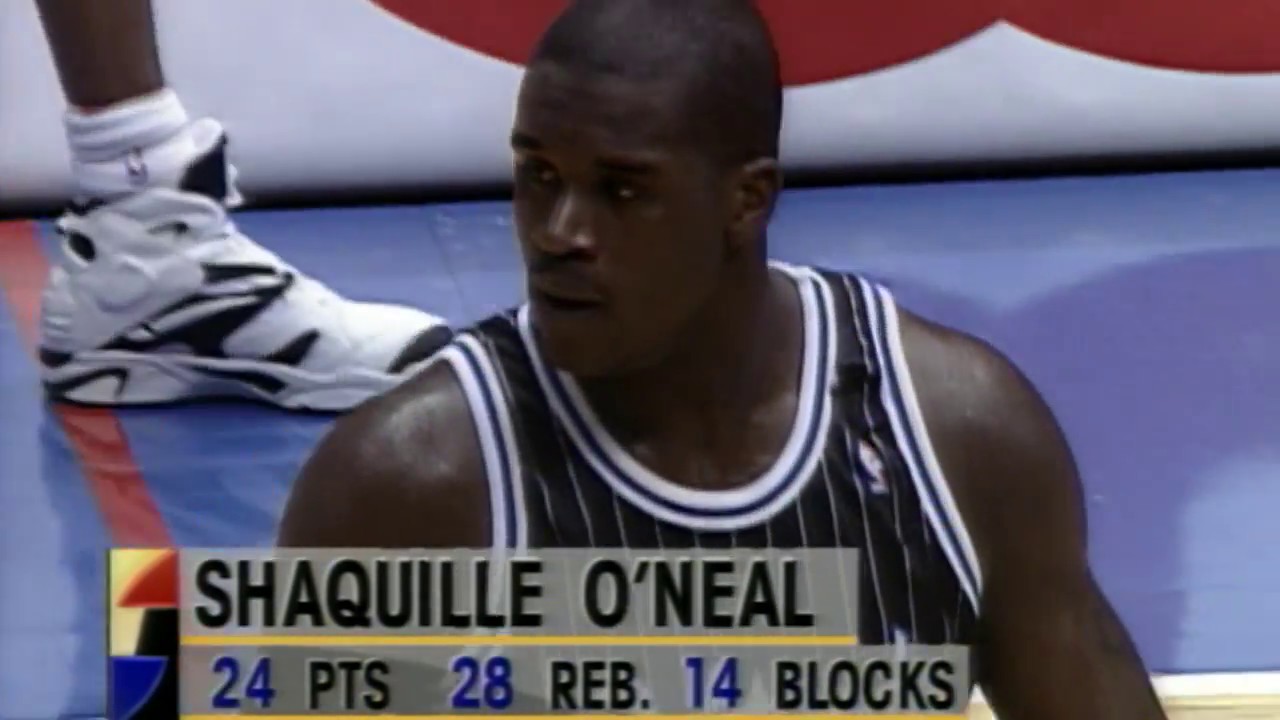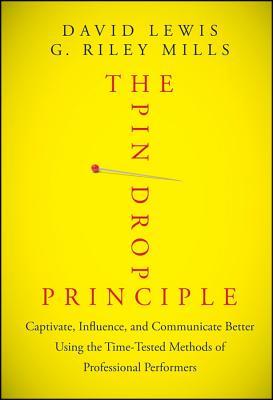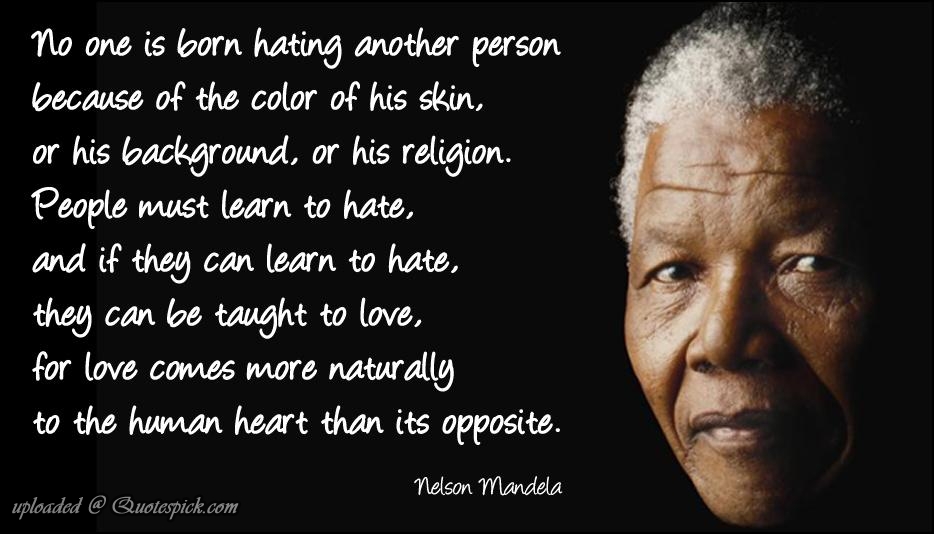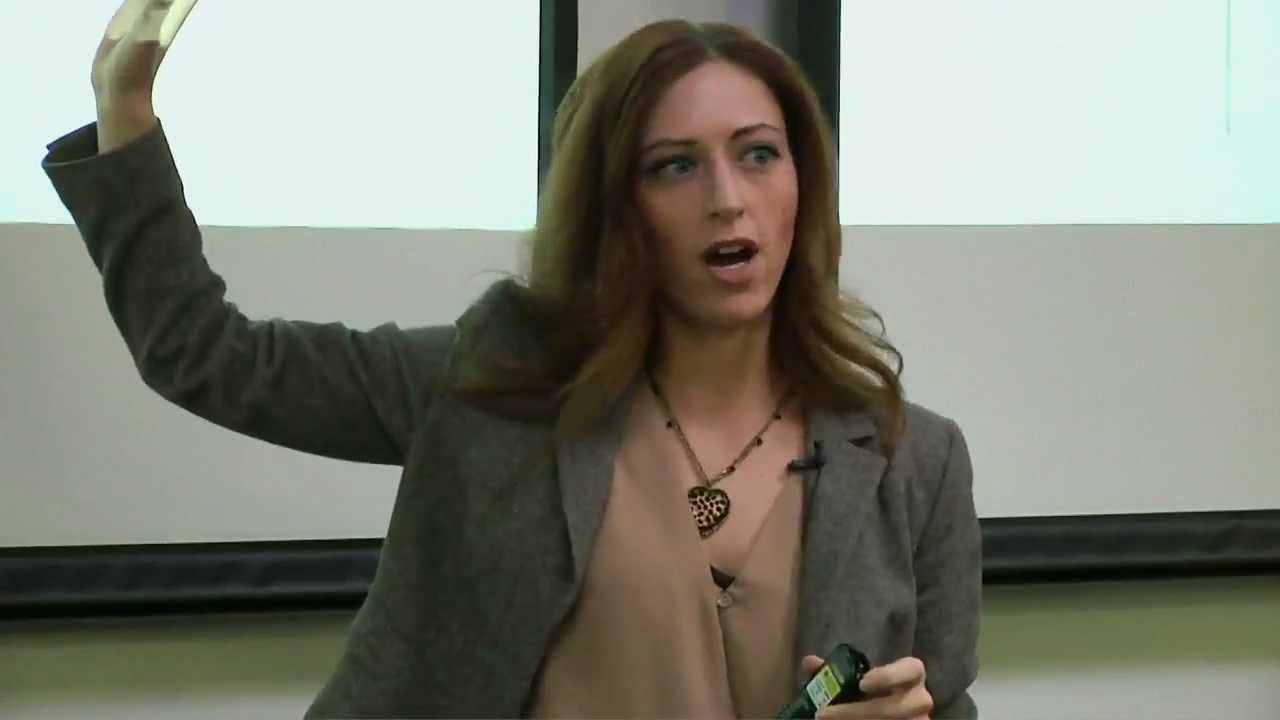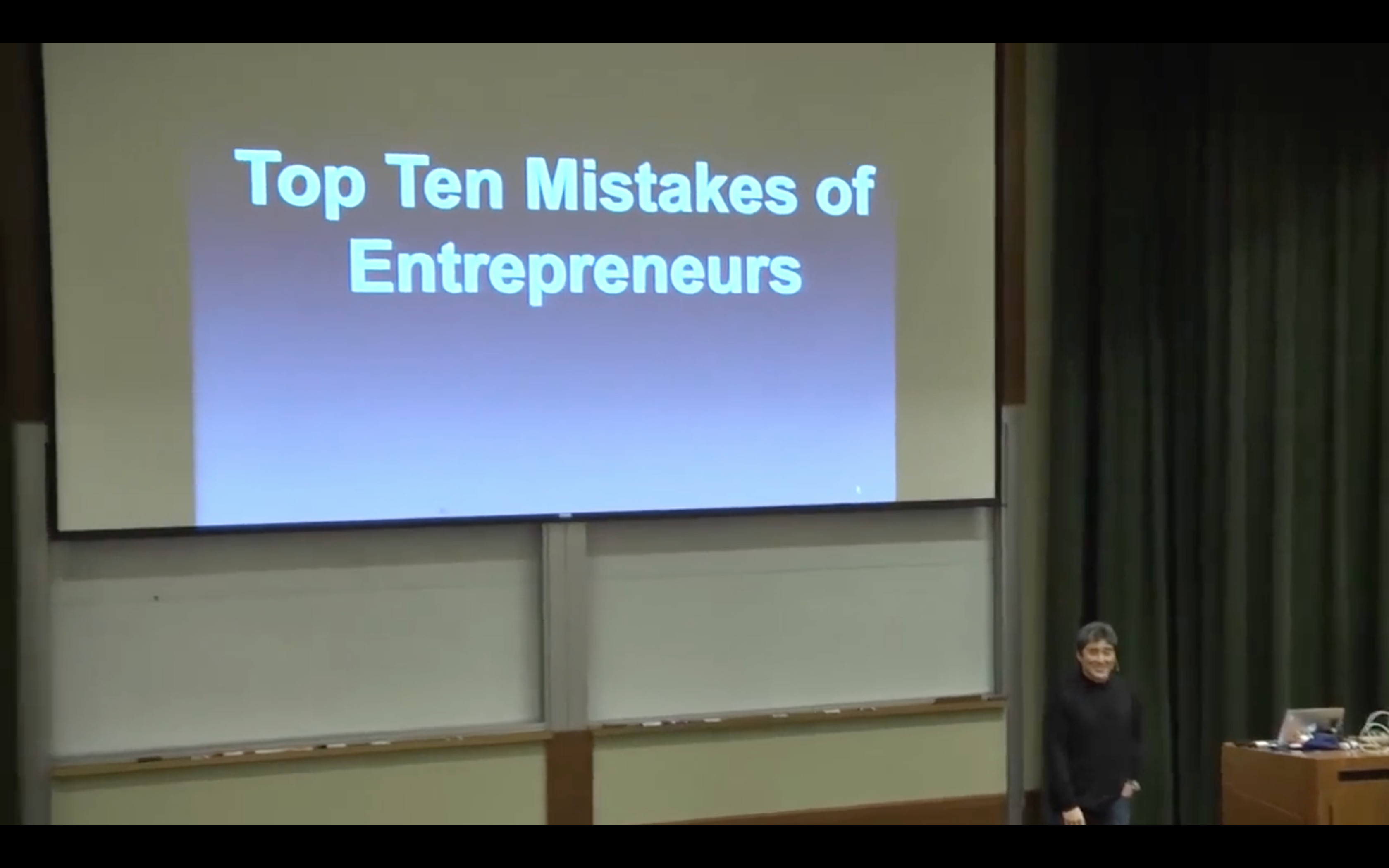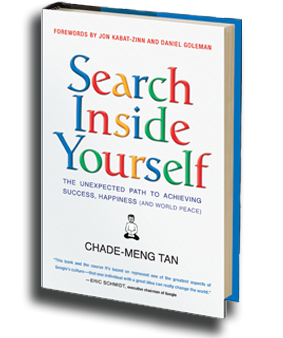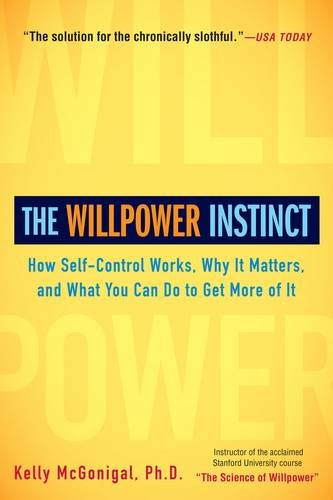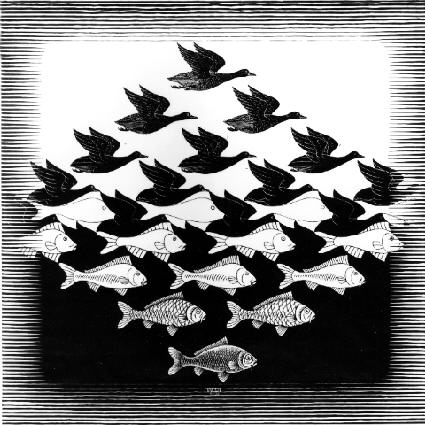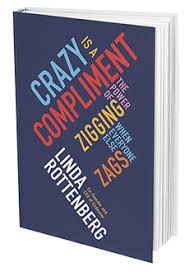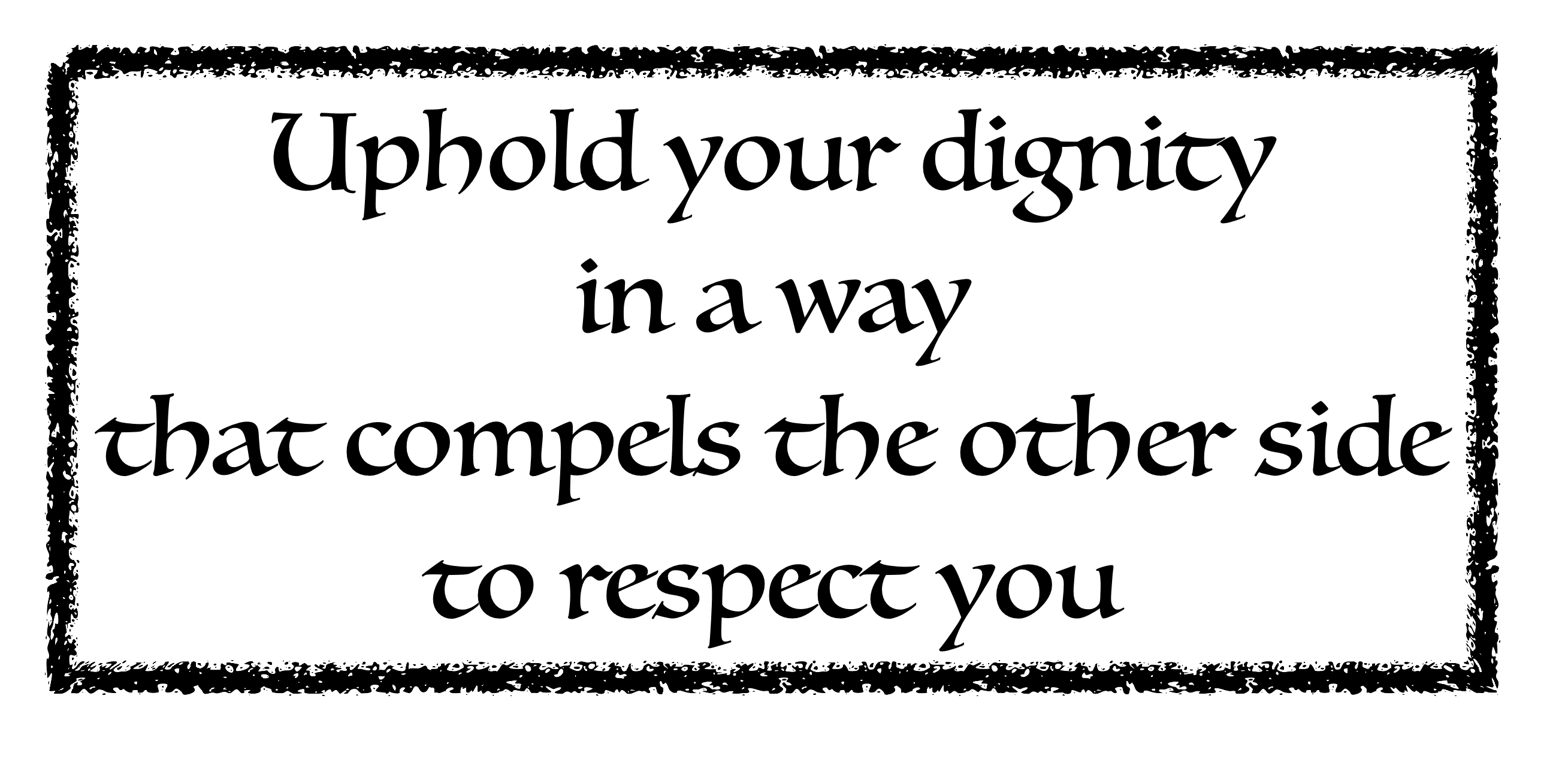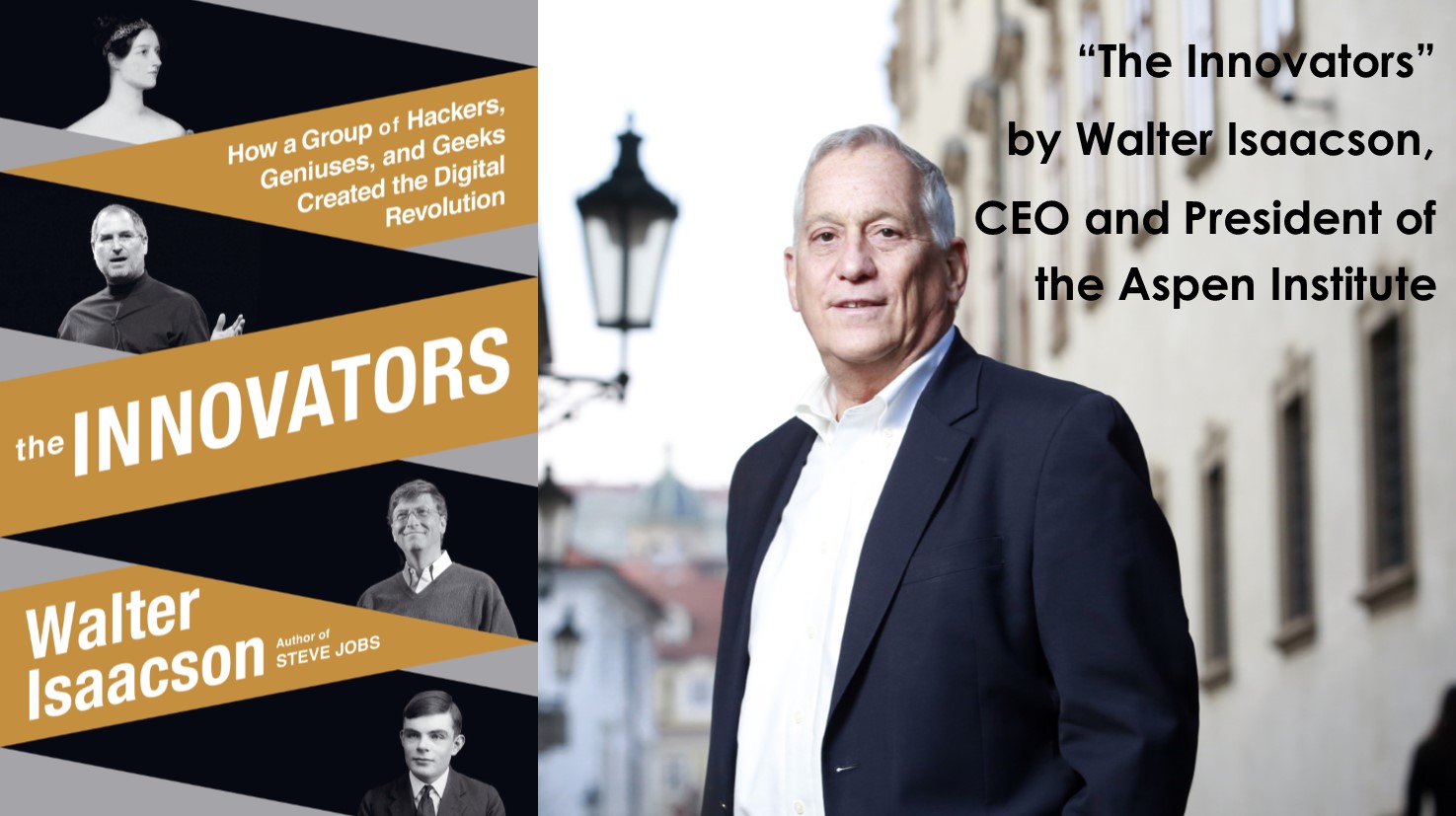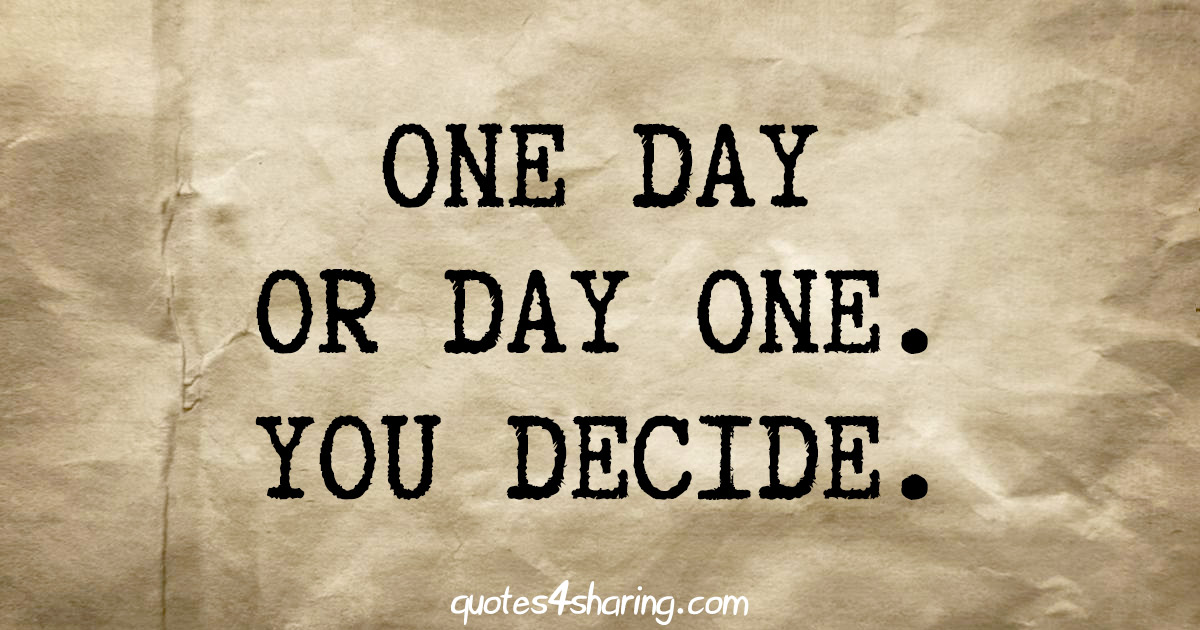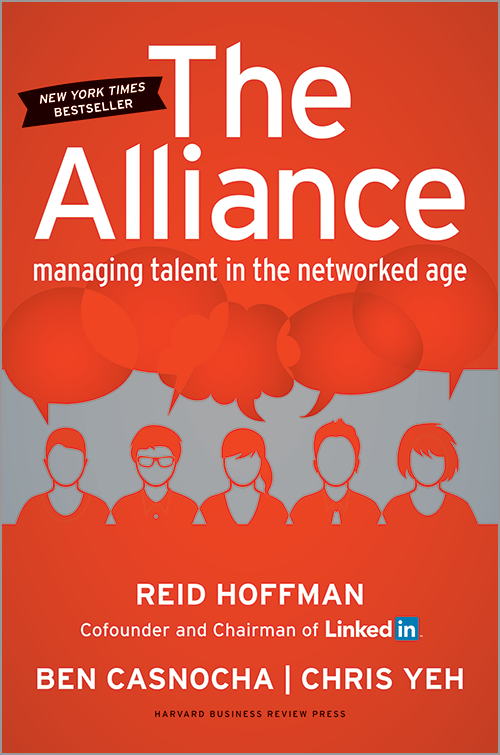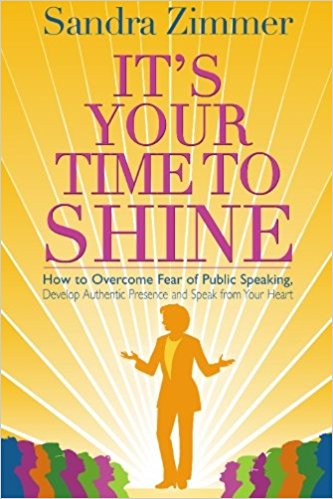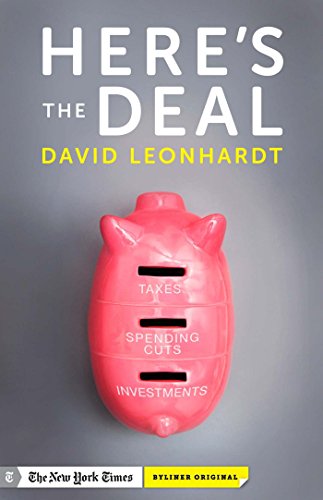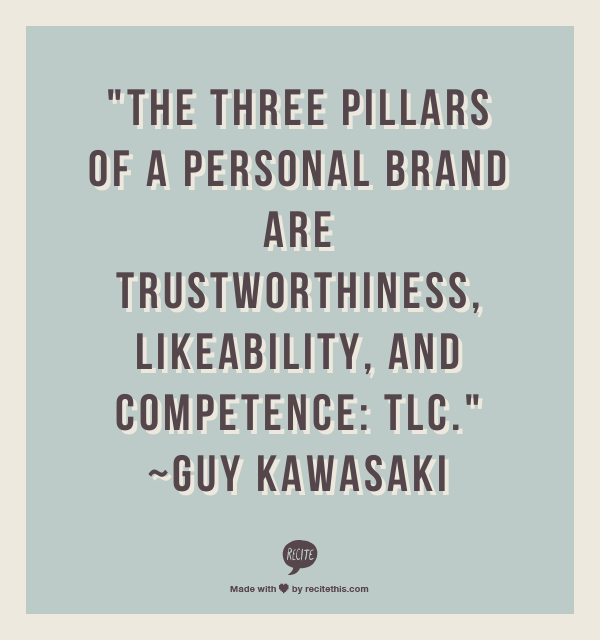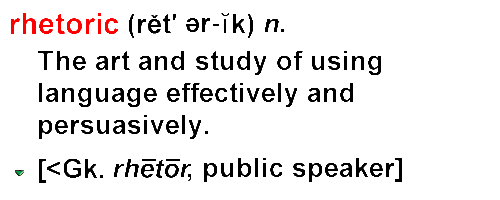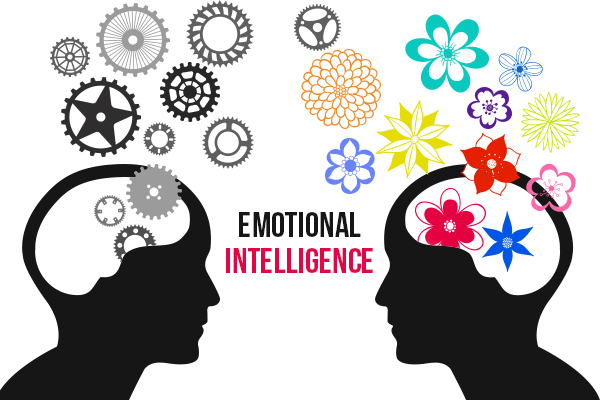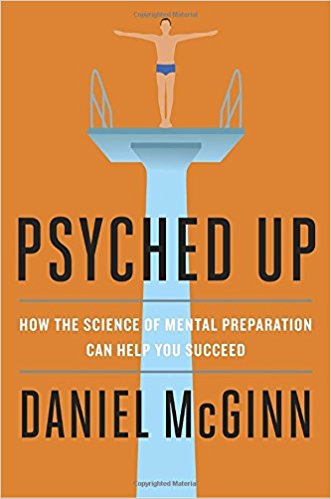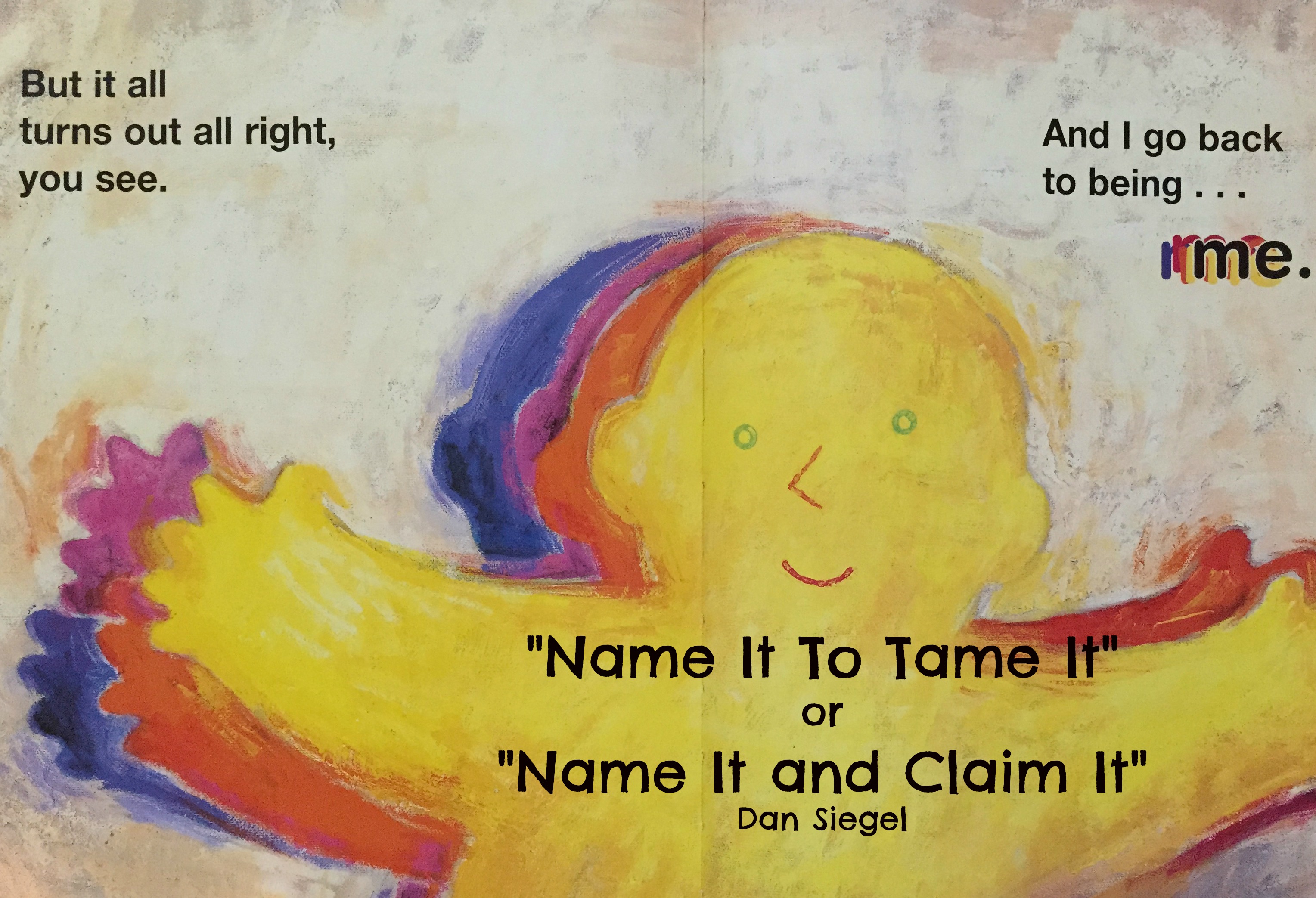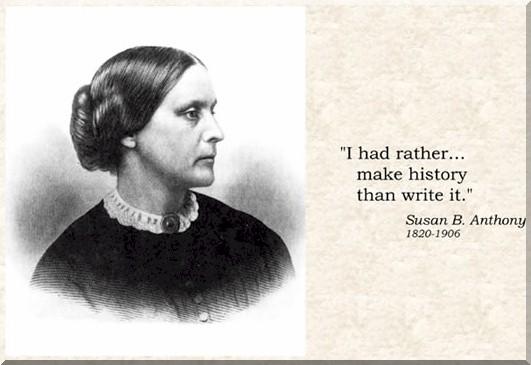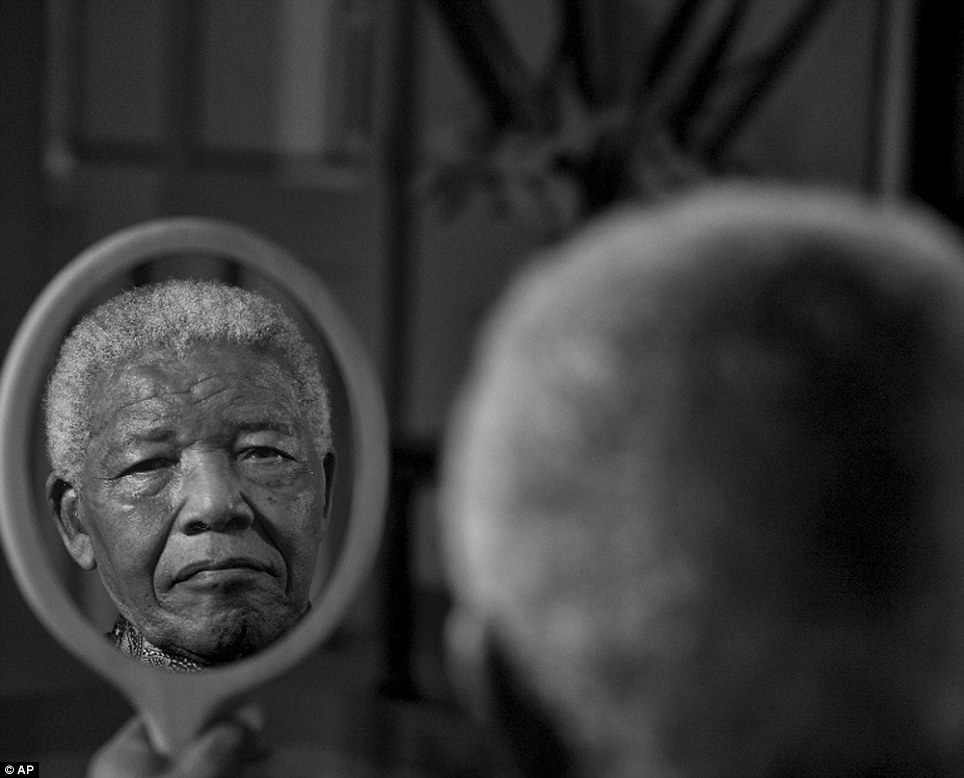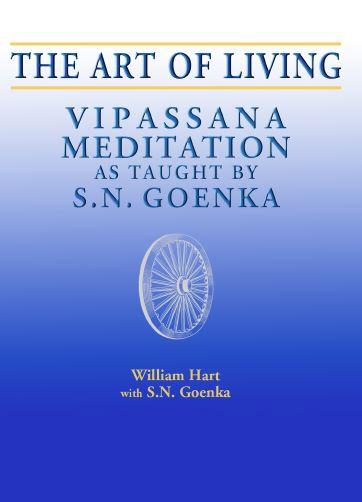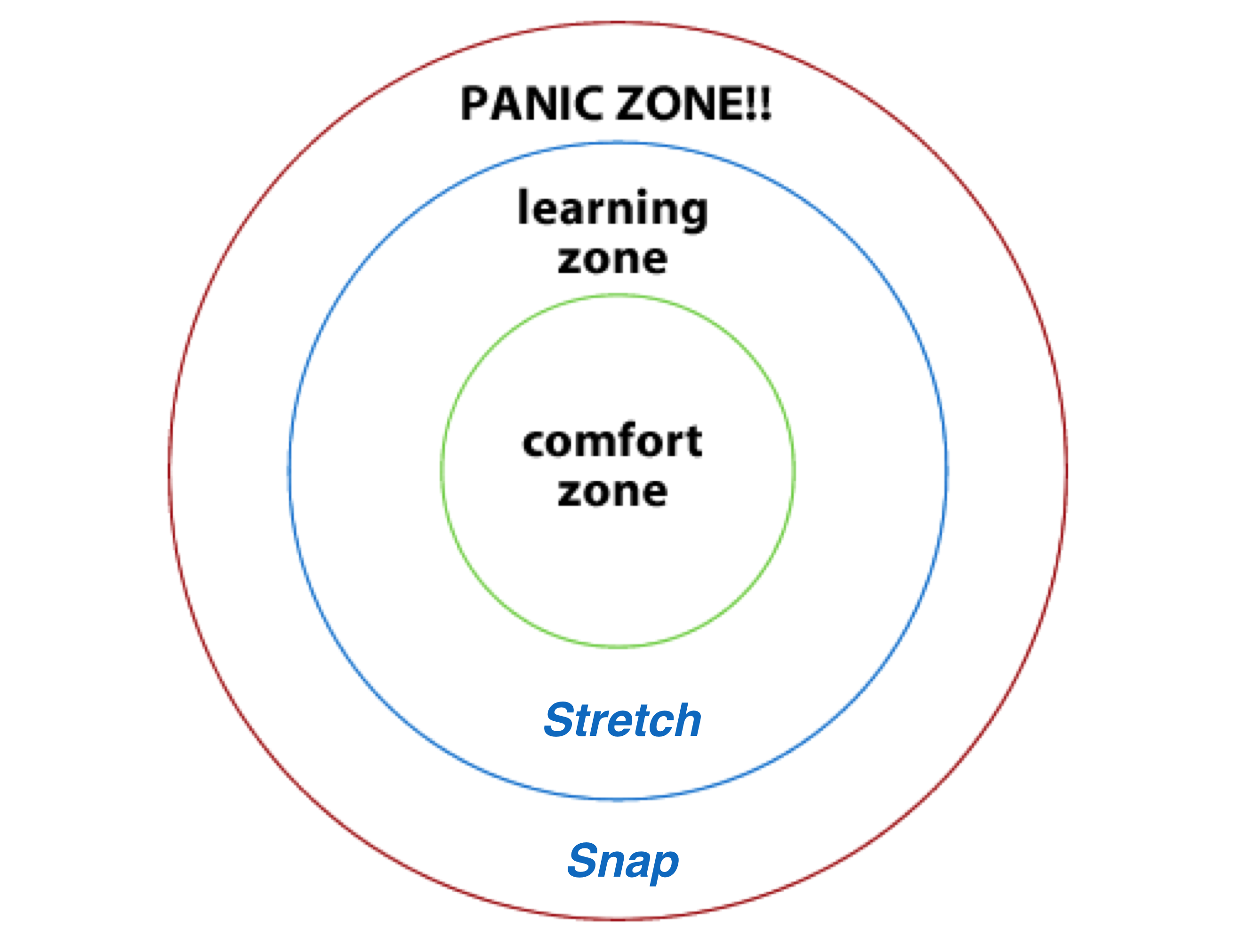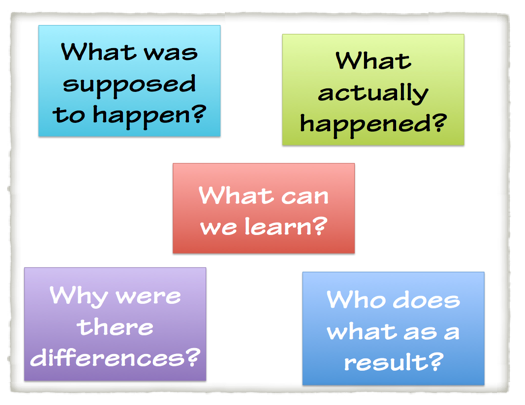For 1 -2 minutes videos tips, thrice a week, please subscribe to my
YouTube channel & Facebook page.
Monday = Tip from a book. Wednesday = Eloquence tip. Friday = Performance tip.
https://www.youtube.com/c/RashidKapadia
https://www.facebook.com/Necessary-Bridges-INC-1607654829472202/
(49 Performance: Friday November 02, 2018)
Team meeting and conversations can become more “FLOW” experiences when discussions and conversations are more Additive and less Argumentative.
To be more inclusive and productive, replace the words “No. But” with the words “Yes. And”
SOURCE: Impromptu Guidelines. Group FLOW triggers.
(49 Eloquence: Wednesday October 31, 2018)
To be more inclusive and eloquent, specially in conversation, (group/team meeting, or one-to-one) think additively not argumentatively. Replace the words “No. But” with the words “Yes. And”
SOURCE: Impromptu Guidelines. Group FLOW triggers.
(49 Book: Monday October 29, 2018)
I recently read a good book, one which I recommend, called “Writing to be Understood: What Works and Why” by Anne Janzer. Many of the insights, guidelines, and much of the advise, when appropriately adapted, is also applicable to spoken communication.
As an eternal student of spoken and written communication, I am acutely aware of the manipulative power of verbal and written communication.
In light of this, I was was specially appreciative of the paragraph with which the author closed the book. Here it is. QUOTE: I trust that you won’t abuse these tactics to manipulate people. The world desperately needs reasoned discussion about complex issues. So do what you can to foster and contribute to productive, respectful discourse and discussion. Go forth and write. UNQUOTE
SOURCE: Writing to be Understood: What Works and Why. Anne Janzer
(48 Performance: Friday October 26, 2018)
Anders Ericsson, expert on expertise & mastery, is usually credited with have uncovered and shared the “10,000 hours of deliberate practice rule”, as the road to mastery and world class performance.
His rigorous research based findings were widely popularized by Malcolm Gladwell’s book, “Outliers: The Story of Success”.
The finding is that lots of practice of a certain kind, called “deliberate practice”, is the key to achieving expertise and elite performance. I.e. both quantity and quality of practice matter.
Deliberate practice requires that every practice session results in some improvement. Therefore the practice has to be based on trying to achieve an outcome that is slightly beyond current skill level. We have to challenge ourselves beyond our current skill level. And we require expert feedback to evaluate how we did, And we require expert coaching to help us on focus areas of improvement for the next practice session.
This HBR article gives a very good overview of the topic.
https://hbr.org/2007/07/the-making-of-an-expert.
(48 Eloquence: Wednesday October 24, 2018)
Psychology tells us that we have a “remembering” self, and an “experiencing” self. The remembering self is the more powerful part of or personality.
The “remembering” self decides how & what (emotion and content) to remember on the basis of a peak experience and the ending experience.
This heuristic is called the peak end rule.
In any communication, be it a vocal or written, what will most likely be remembered by the listener/reader will be the peak experience and the ending.
Therefore when creating a verbal or written communication, it is worthwhile focusing on creating a positive peak experience and a positive closing experience. This will increase the chance of your message being remembered positively.
SOURCE: Thinking Fast and Slow: Daniel Kahneman
(48 Book: Monday October 22, 2018)
QUOTE
When writing (or speaking, or commenting in blogs and posts) to explain or convince people, recognize if you’re not dealing in the realm of reason alone, but with emotional and moral concerns. The clearest explanations rarely make a dent in core beliefs and fundamental values.
…
Beliefs are unconsciously defended by a bubble of self-serving logic, which maintains them even when they are invalid, to protect personal identity and self-worth.
UNQUOTE
SOURCE: Writing to be Understood: What Works and Why. Anne Janzer
(47 Performance: Friday October 19, 2018)
FLOW is the state in which we feel our best and perform our best. For me, it is the Holy Grail of High Performance. I’ve referenced FLOW in many previous tips. Some links below.
Today we look at the “Enemies of FLOW”, i.e. what to avoid so that we default to more FLOW.
FLOW is a state that is between BOREDOM & ANXIETY.
Distractions, self-consciousness (what are others thinking of me?), self centeredness (ego, I, Me, Mine, Myself etc.) are enemies of FLOW
- Reduce or eliminate boredom to improve performance
- Reduce or eliminate anxiety to improve performance
- Reduce or eliminate distractions to improve performance
- Reduce or eliminate self-consciousness to improve performance
- Reduce or eliminate self-centeredness to improve performance
- For more on FLOW: https://necessarybridges.com/flow/
- Previous FLOW Tip (November 10, 2017) https://youtu.be/pzV0Z1LrhUE
- For a 1- lecture on FLOW basics: https://youtu.be/74cMkYpI3Rk
SOME RESOURCES:
The Rise of Superman—Steven Kotler
FLOW: The Psychology of Optimal Experience—Mihaly Csikszentmihalyi
Stealing Fire—Steven Kotler & Jamie Wheal
TED Talk: Mihaly Csikszentmihalyi: Flow, the secret to happiness
Talks at Google: Steven Kotler: The Science of Maximizing Human Potential
Talks at Google: Steven Kotler: The Rise of Superman: Decoding the Science of Ultimate Human Performance
TEDx Talk: Steven Kotler: How to open up the next level of human performance
Image from “Talks at Google. Steven Kotler. The Science of Maximizing Human Potential”
(47 Eloquence: Wednesday October 17, 2018)
Recently I thoroughly enjoyed watching a video clip of a very young boy delivering a short segment of a famous speech on an entertainment show. (NBC — Little Big Shots)
I also found myself thinking, “Surely this young boy, this child, is overall better off for having had this practice, this exposure, this experience, this confidence.”
If you agree, may I request you to encourage the young in your life to start public speaking right away too.
SOURCE
NBC — Little Big Shots
https://www.facebook.com/NBCLittleBigShots/videos/1938132623165654/
(47 Book: Monday October 15, 2018)
Shaquille O’Neal is a famous American athlete / basketball player.
Once, when he was a high-schooler at a basketball camp with players who were as good or better than him, he had doubts. His father and mother were counseling him to persevere. His mother said some words that changed everything for him.
QUOTE. I didn’t feel I could stand out among these players. I tried to brush my mother’s advise off saying, “I can’t do that right now. Maybe later.”
Then my mother said the words that changed everything for me. She said, “Later doesn’t always come to everybody.”
That got to me. Those words snapped me into reality and gave me a plan. UNQUOTE
SOURCE:
The Right Words at the Right Time. Marlo Thomas and Friends
(46 Performance: Friday October 12, 2018)
One meditation session can lead to an altered state.
Regular, disciplined, and long term meditation can lead to altered traits.
Learn Vipassana meditation (or any other meditation technique) and meditate regularly for long-term performance enhancement.
Recommendations:
- Read “Altered Traits: Science Reveals How Meditation Changes Your Mind, Brain, and Body” by Daniel Goleman and Richard J. Davidson.
- Watch (~10 minutes): Yuval Noah Harari clip on Vipassana, Reality, Suffering, & Consciousness. https://youtu.be/i1_YhlXiuxE.
- Watch a (~7 minutes) clip from the documentary “Doing Time. Doing Vipassana” Introduction to documentary, description of Vipassana journey, and a forgiveness story of a good outcome. https://youtu.be/ir2eZAppZW4.
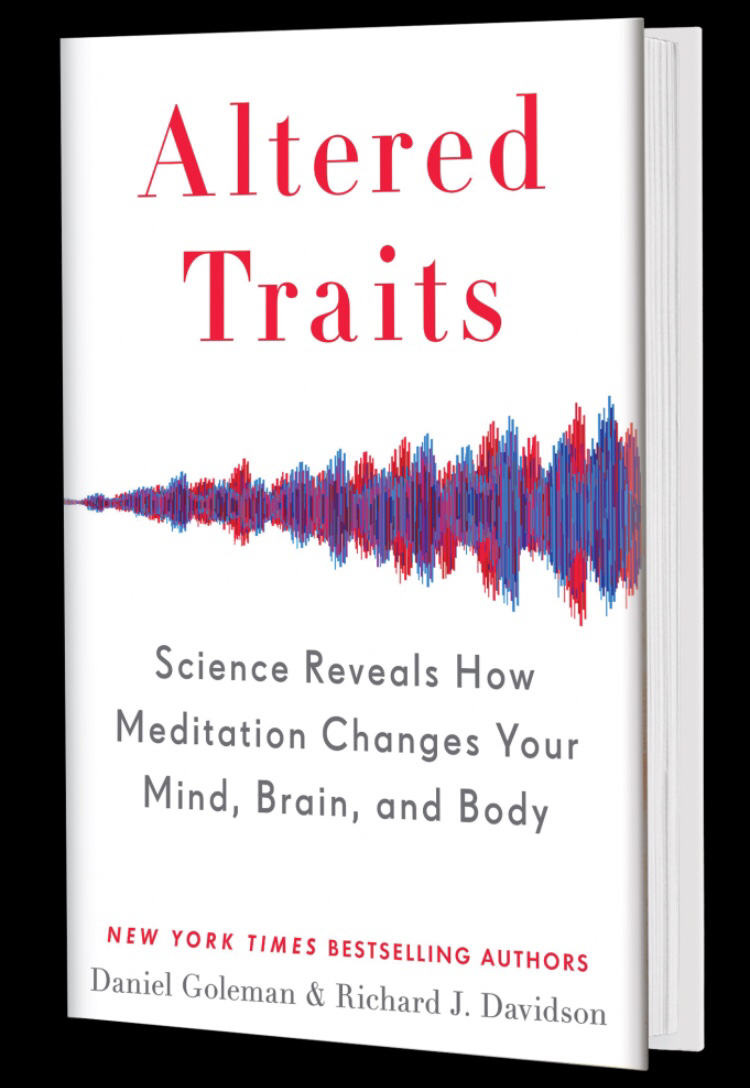 Brief Description of Vipassana:
Brief Description of Vipassana:
- Vipassana is an ancient meditation techniques. The word Vipassana means seeing things as they really are.
- It is the process of self- purification by self-observation.
- One begins by observing the natural breath to concentrate the mind.
- With a sharpened awareness one proceeds to observe the changing nature of body and mind and experiences the universal truths of impermanence, suffering and egolessness.
- This truth-realization by direct experience is the process of purification.
- It can be freely practiced by everyone, at any time, in any place, and will prove beneficial to one and all.
What Vipassana is not:
- It is not a rite or ritual based on blind faith.
- It is neither an intellectual nor a philosophical entertainment.
- It is not a rest cure, a holiday, or an opportunity for socializing.
- It is not an escape from the trials and tribulations of everyday life.
What Vipassana is:
- It is a technique that will eradicate suffering.
- It is a method of mental purification which allows one to face life’s tensions and problems in a calm, balanced way.
- It is an art of living that one can use to make positive contributions to society.
SOURCES:
- “Altered Traits: Science Reveals How Meditation Changes Your Mind, Brain, and Body” by Daniel Goleman and Richard J. Davidson
- Doing Time Doing Vipassana. https://youtu.be/WkxSyv5R1sg
- Nationalism in the 21st Century – Yuval Noah Harari at the India Today Conclave 2018. https://youtu.be/8x3zaIYrHTs
(46 Eloquence: Wednesday October 10, 2018)
Recommendation. Watch two WatchMojo.com “Top- 10” compilation videos
- Top 10 Famous Speeches
- Top 10 Most Powerful Orators in History
Watch Mojo Top Ten Lists
Top 10 Famous Speeches. https://youtu.be/0VegIvb1e7s
#10. Campaign into India (326 BC) Alexander the Great
#9. Germany Declares War on USA (1941) Adolf Hitler
#8. Funeral Oration (431 BC) Pericles
#7. Second Virginia Convention (1775) Patrick Henry
#6. Inaugural Address (1961) John F. Kennedy
#5. Quit India (1942) Mahatma Gandhi
#4. Inaugural Address (1933) Franklin D. Roosevelt
#3. We Shall Fight on the Beaches (1940) Winston Churchill
#2. I Have a Dream (1963) Martin Luther King Jr.
#1. Gettysburg Address (1863) Abraham Lincoln
Top 10 Most Powerful Orators in History. https://youtu.be/SzOWyMqw-m4 .
#10. Mahatma Gandhi
#9. Marcus Tullius Cicero
#8. Margaret Thatcher
#7. Ronald Reagan
#6. Nelson Mandela
#5. Franklin D. Roosevelt
#4. Adolf Hitler
#3. Martin Luther King Jr.
#2. John F. Kennedy
#1. Winston Churchill
SOURCE: WatchMojo.com “Top- 10” compilation videos
Top 10 Famous Speeches. https://youtu.be/0VegIvb1e7s
Top 10 Most Powerful Orators in History. https://youtu.be/SzOWyMqw-m4
46 Book: Monday October 08, 2018)
Two lessons, both relating to the use of language, from Timothy Snyder’s 2017 handbook “On Tyranny: Twenty Lessons From the Twentieth Century”
- Be kind to our language. To be more objective, use your own words, spoken and written, before making important decisions.
- Listen for dangerous words.
The Twenty Lessons:
- Do not obey in advance.
- Defend Institutions.
- Beware the one-party state.
- Take responsibility for the face of the worlds.
- Remember professional ethics.
- Be wary of paramilitaries.
- Be reflective if you must be armed.
- Stand out.
- Be kind to our language.
- Believe in truth.
- Investigate.
- Make eye contact and small talk.
- Practice corporeal politics.
- Establish a private life.
- Contribute to good causes.
- Learn from peers in other countries.
- Listen for dangerous words.
- Be calm when the unthinkable arrives.
- Be a patriot.
- Be as courageous as you can.
SOURCE: On Tyranny: Twenty Lessons From the Twentieth Century. Timothy Snyder
(45 Performance: Friday October 05, 2018)
Yes, leadership is about vision. And leadership is also about creating a climate where truth is heard, and the brutal facts are confronted.
Creating a climate where the truth is heard involves four basic practices:
- Lead with questions, not answers.
- Engage in dialogue and debate, not coercion.
- Conduct autopsies without blame.
- Build “Red Flag” mechanisms.
SOURCE: Good To Great: Jim Collins
(45 Eloquence: Wednesday October 03, 2018)
Recommendation. Listen to a 10 minute Julian Treasure’s TED Talk, “How to Speak So That People Want to Listen”.
This is now one of the most viewed TED talks (>30M views on October 3, 2018).
https://www.ted.com/talks/julian_treasure_how_to_speak_so_that_people_want_to_listen
The talk, which consists of four segments, reminds us to think of our voices as instruments.
The four segments are:
- Don’t
- Do (H.A.I.L.)
- Tool Kit
- Voice Warm Up (an exercise)
Don’t. Seven speaking sins. Habits we can all fall into:
- Gossip. Speaking ill of someone who is not present.
- Judging. It is hard to be fully attentive in a conversation when you are being judged, and found wanting.
- Negativity. Anyone can fall into this.
- Complaining. It is a form of viral misery.
- Excuses. Assigning blame & not taking responsibility.
- Embroidery and exaggeration. Eventually becomes lying.
- Dogmatism. Makes it difficult to distinguish fact and opinion.
Do. Four powerful foundations
Acronym = H.A.I.L. = To greet. To acclaim enthusiastically
H = Honesty
A = Authenticity
I = Integrity
L = Love
Tool Kit
Register
Timbre
Prosody
Pace
Pitch
Volume
Voice Warm Up
- Aaaahhhh …
- Bo. Bo. Bo …
- Bbbbrrrrrr …
- La. La. La …
- Rrrrrrr … (rolling R)
- Weeee ….. Oooorrrr (siren)
From “Most viewed TED Talks”. https://www.ted.com/playlists/171/the_most_popular_talks_of_all, as of this writing—October 2, 2018—only 5 other TED talks have been viewed more often
- Ken Robinson. 53.3M views. https://www.ted.com/talks/ken_robinson_says_schools_kill_creativity.
- Amy Cuddy. 49M views https://www.ted.com/talks/amy_cuddy_your_body_language_shapes_who_you_are.
- Simon Sinek. 40.7M views. https://www.ted.com/talks/simon_sinek_how_great_leaders_inspire_action.
- James Veitch. 36.5M views. https://www.ted.com/talks/james_veitch_this_is_what_happens_when_you_reply_to_spam_email.
- Brene Brown. 36.2M views. https://www.ted.com/talks/brene_brown_on_vulnerability.
SOURCE: TED Talk. Julian Treasure. How to speak so that people want to listen.
https://www.ted.com/talks/julian_treasure_how_to_speak_so_that_people_want_to_listen
(45 Book: Monday October 01, 2018)
Seventh and last tip of a seven part series based on insights and ideas from the book “The Power Paradox: How We Gain & Lose Influence” by Dacher Keltner
Book thesis, major segments and points below.
The TIP
Fivefold Path to Enduring Power in Our Daily Lives
- Be aware of your feelings of power.
- Practice humility.
- Stay focused on others, and give.
- Practice respect.
- Change the psychological context of powerlessness.
Tip #1: Introduction. https://youtu.be/AGQh-KyOBHw
Tip #2: Power is Given, Not GrabbedTip #3: Power is Given, Not Grabbed. https://youtu.be/AdYTQ2mRtTA
Tip #4: Enduring Power Comes from a Focus on Others. https://youtu.be/vvClga4OvTo
Tip #5: The Abuses of Power. https://youtu.be/33ggEnRHDcc
Tip #6: The Price of Powerlessness. https://youtu.be/OVNaf26PtwI
The thesis / paradox:
We rise in power and make a difference in the world due to what is best about human nature, but we fall from power due to what is worst.
We gain a capacity tho make a difference in the world by enhancing the lives of others. But the very experience of having power and privilege leads us to behave, in our worst moments, like impulsive, out-of-control sociopaths.
Book Summary
The Power Paradox: How We Gain & Lose Influence.
Dacher Keltner
This book is more about the psychology of power and the recognition that it is a medium by which we relate to one another.
It not much focused political power, corporate power, power of leaders, Machiavellian thinking etc, even though these are addressed in the book.
- Power is About Making a Difference
- Power is Given, Not Grabbed
- Enduring Power Comes from a Focus on Others
- The Abuses of Power
- The Price of Powerlessness
This is the power paradox:
We rise in power and make a difference in the world due to what is best about human nature, but we fall from power due to what is worst.
We gain a capacity tho make a difference in the world by enhancing the lives of others. But the very experience of having power and privilege leads us to behave, in our worst moments, like impulsive, out-of-control sociopaths.
Handling the power paradox well is fundamental to the health of our society.
Think of and define power as the capacity to make a difference in the world, in particular by stirring others in our social networks.
Power is the medium by which we relate to one another. Power is about making a difference in the world by influencing others.
20 Principles
Power is About Making a Difference
1. Power is about altering the states of others.
2. Power is a part of every relationship and interaction.
3. Power is found in everyday actions.
4. Power comes from empowering others in social networks.
Power is Given, Not Grabbed
5. Groups give power to those who advance the greater good.
6. Groups construct reputations that determine the capacity to influence.
7. Groups reward those who advance the greater good with status and esteem.
8. Groups punish those who undermine the greater good with gossip.
Enduring Power Comes from a Focus on Others
9. Enduring power comes from empathy.
10. Enduring power comes from giving.
11. Enduring power comes from expressing gratitude.
12. Enduring power comes from telling stories that unite.
The Abuses of Power
13. Power leads to empathy deficits and diminished moral sentiment.
14. Power leads to self-serving impulsivity.
15. Power leads to incivility and disrespect.
16. Power leads to narratives of exceptionalism.
The Price of Powerlessness
17. Powerlessness involves facing environments of continual threat.
18. Stress defines the experience of powerlessness.
19. Powerlessness undermines the individual’s ability to contribute to society.
20. Powerlessness causes poor health.
Fivefold Path to Enduring Power in Our Daily Lives
- Be aware of your feelings of power.
- Practice humility.
- Stay focused on others, and give.
- Practice respect.
- Change the psychological context of powerlessness.
SOURCE: The Power Paradox: How We Gain and Lose Influence. Dacher Keltner
(44 Performance: Friday September 28, 2018)
To create a culture where feedback is—and feels—normal … become better at receiving feedback, and giving feedback … frequently.
Some feedback insights:
- Frequency of feedback is more important that proficiency of feedback
- Intention of feedback (for improvement) is more important than eloquence.
- The primary reason people struggle with giving and receiving feedback is not a lack of proficiency but of frequency.
- The health of an organization (or a team, or a family) can be largely be predicted by measuring the average lag time between identifying and discussing problems.
SOURCE: HBR Article. How to Make Feedback Feel Normal. Joseph Granny
https://hbr.org/2016/08/how-to-make-feedback-feel-normal
(44 Eloquence: Wednesday September 26, 2018)
An old video clip, popularly known as “German Coast Guard”, put out by Berlitz. Language for Life. Improve Your English.
Humor + reminder. Know your language well. Don’t be Sloppy
SOURCE: Advertisement from Berlitz. Language for Life
(44 Book: Monday September 24, 2018)
Sixth of a seven part series based on insights and ideas from the book “The Power Paradox: How We Gain & Lose Influence” by Dacher Keltner
Book thesis, major segments and points below.
The TIP: The Price of Powerlessness
Powerlessness involves facing environments of continual threat.
Stress defines the experience of powerlessness.
Powerlessness undermines the individual’s ability to contribute to society.
Powerlessness causes poor health.
The thesis / paradox:
We rise in power and make a difference in the world due to what is best about human nature, but we fall from power due to what is worst.
We gain a capacity tho make a difference in the world by enhancing the lives of others. But the very experience of having power and privilege leads us to behave, in our worst moments, like impulsive, out-of-control sociopaths.
Book Summary
The Power Paradox: How We Gain & Lose Influence. Dacher Keltner
This book is more about the psychology of power and the recognition that it is a medium by which we relate to one another.
It not much focused political power, corporate power, power of leaders, Machiavellian thinking etc, even though these are addressed in the book.
- Power is About Making a Difference
- Power is Given, Not Grabbed
- Enduring Power Comes from a Focus on Others
- The Abuses of Power
- The Price of Powerlessness
This is the power paradox:
We rise in power and make a difference in the world due to what is best about human nature, but we fall from power due to what is worst.
We gain a capacity tho make a difference in the world by enhancing the lives of others. But the very experience of having power and privilege leads us to behave, in our worst moments, like impulsive, out-of-control sociopaths.
Handling the power paradox well is fundamental to the health of our society.
Think of and define power as the capacity to make a difference in the world, in particular by stirring others in our social networks.
Power is the medium by which we relate to one another. Power is about making a difference in the world by influencing others.
20 Principles
Power is About Making a Difference
1. Power is about altering the states of others.
2. Power is a part of every relationship and interaction.
3. Power is found in everyday actions.
4. Power comes from empowering others in social networks.
Power is Given, Not Grabbed
5. Groups give power to those who advance the greater good.
6. Groups construct reputations that determine the capacity to influence.
7. Groups reward those who advance the greater good with status and esteem.
8. Groups punish those who undermine the greater good with gossip.
Enduring Power Comes from a Focus on Others
9. Enduring power comes from empathy.
10. Enduring power comes from giving.
11. Enduring power comes from expressing gratitude.
12. Enduring power comes from telling stories that unite.
The Abuses of Power
13. Power leads to empathy deficits and diminished moral sentiment.
14. Power leads to self-serving impulsivity.
15. Power leads to incivility and disrespect.
16. Power leads to narratives of exceptionalism.
The Price of Powerlessness
17. Powerlessness involves facing environments of continual threat.
18. Stress defines the experience of powerlessness.
19. Powerlessness undermines the individual’s ability to contribute to society.
20. Powerlessness causes poor health.
Fivefold Path to Enduring Power in Our Daily Lives
- Be aware of your feelings of power.
- Practice humility.
- Stay focused on others, and give.
- Practice respect.
- Change the psychological context of powerlessness.
SOURCE: The Power Paradox: How We Gain and Lose Influence. Dacher Keltner
(43 Performance: Friday September 21, 2018)
There is a difference between a “disciplined team” and a “culture of discipline”.
In his classic business book, “Good To Great” Jim Collins point out this difference.
A disciplined team may well be the result of a charismatic, powerful, or tyrannical leader enforcing discipline on those he/she leads. The team is disciplined because of the dominance of the leader. It is an externally enforced discipline.
In contrast, a culture of discipline is different. Here the leader is self-disciplined and the team members are self disciplined. They do not have to be managed /micromanaged from above or externally. They all enforce an internal discipline, a self-discipline which creates a culture of discipline.
A culture of discipline is more likely to lead to optimal performance and success.
SOURCE: Good To Great: Jim Collins
(43 Eloquence: Wednesday September 19, 2018)
Some speech lines come to define messages, messengers, are instantly recognizable, are memorable, and become a part of history. Examples:
- Ask not what your country can do for you. Ask what you can do for your country. John F. Kennedy
- As I would not be a slave, so I would not be a master. Abraham Lincoln
- If the present quarrels with the past, surely the future will already have been lost. Winston Churchill
Author James C Humes calls lines like these “Power Lines”.
In Chapter 14 of his book “Speak Like Churchill, Stand Like Lincoln”, he describes how we too can construct similar “Power Lines”
According to him, these messages have many components of an acronym C.R.E.A.M
C= Contrast
R = Rhyme
E = Echo
A = Alliteration
M = Metaphor
Definitions:
- Contrast = The state of being strikingly different from something else, typically something in juxtaposition or close association.
- Rhyme = Correspondence of sound between words or the endings of words, especially when these are used at the ends of lines of poetry.
- Echo = A sound or series of sounds caused by the reflection of sound waves from a surface back to the listener.
- Alliteration = The occurrence of the same letter or sound at the beginning of adjacent or closely connected words.
- Metaphor = A figure of speech in which a word or phrase is applied to an object or action to which it is not literally applicable.
See if you can locate some of these elements in this speech opening.
George W. Bush’s Eulogy for John McCain. September 1, 2018
https://youtu.be/Jac1Ah__vcs
Cindy and the McCain family, I am honored to be with you,
to offer my sympathies and to celebrate a great life.
The nation joins your extraordinary family in grief and gratitude for John McCain.
Some lives are so vivid, it is difficult to imagine them ended.
Some voices are so vibrant and distinctive, it is hard to think of them stilled.
A man who seldom rested is laid to rest
and his absence is tangible,
like the silence after a mighty roar.
The thing about John’s life was the amazing sweep of it.
From a tiny prison cell in Vietnam to the floor of the United States Senate.
From trouble-making pleb to presidential candidate.
Wherever John passed throughout the world, people immediately knew there was a leader in their midst.
And one epic life was written the courage and greatness of our country.
For John and me, three was a personal journey,
Our hard fought political history.
Back in the day he could frustrate me,
and I know he’d say the same thing about me.
But he also made me better.
In recent years we sometimes talk of that intense period like football players, remembering a big game.
In the process rivalry melted away.
In the end I got to enjoy one of life’s great gifts, the friendship of John McCain, and I’ll miss it.
…
SOURCE
Speak Like Churchill, Stand Like Lincoln: 21 Powerful Secrets of History’s Greatest Speakers. James C. Hume
(43 Book: Monday September 17, 2018)
Fifth of a seven part series based on insights and ideas from the book “The Power Paradox: How We Gain & Lose Influence” by Dacher Keltner
Book thesis, major segments and points below.
The TIP: The Abuses of Power
Power leads to empathy deficits and diminished moral sentiment.
Power leads to self-serving impulsivity.
Power leads to incivility and disrespect.
Power leads to narratives of exceptionalism.
The thesis / paradox:
We rise in power and make a difference in the world due to what is best about human nature, but we fall from power due to what is worst.
We gain a capacity tho make a difference in the world by enhancing the lives of others. But the very experience of having power and privilege leads us to behave, in our worst moments, like impulsive, out-of-control sociopaths.
Book Summary
The Power Paradox: How We Gain & Lose Influence. Dacher Keltner
This book is more about the psychology of power and the recognition that it is a medium by which we relate to one another.
It not much focused political power, corporate power, power of leaders, Machiavellian thinking etc, even though these are addressed in the book.
- Power is About Making a Difference
- Power is Given, Not Grabbed
- Enduring Power Comes from a Focus on Others
- The Abuses of Power
- The Price of Powerlessness
This is the power paradox:
We rise in power and make a difference in the world due to what is best about human nature, but we fall from power due to what is worst.
We gain a capacity tho make a difference in the world by enhancing the lives of others. But the very experience of having power and privilege leads us to behave, in our worst moments, like impulsive, out-of-control sociopaths.
Handling the power paradox well is fundamental to the health of our society.
Think of and define power as the capacity to make a difference in the world, in particular by stirring others in our social networks.
Power is the medium by which we relate to one another. Power is about making a difference in the world by influencing others.
20 Principles
Power is About Making a Difference
1. Power is about altering the states of others.
2. Power is a part of every relationship and interaction.
3. Power is found in everyday actions.
4. Power comes from empowering others in social networks.
Power is Given, Not Grabbed
5. Groups give power to those who advance the greater good.
6. Groups construct reputations that determine the capacity to influence.
7. Groups reward those who advance the greater good with status and esteem.
8. Groups punish those who undermine the greater good with gossip.
Enduring Power Comes from a Focus on Others
9. Enduring power comes from empathy.
10. Enduring power comes from giving.
11. Enduring power comes from expressing gratitude.
12. Enduring power comes from telling stories that unite.
The Abuses of Power
13. Power leads to empathy deficits and diminished moral sentiment.
14. Power leads to self-serving impulsivity.
15. Power leads to incivility and disrespect.
16. Power leads to narratives of exceptionalism.
The Price of Powerlessness
17. Powerlessness involves facing environments of continual threat.
18. Stress defines the experience of powerlessness.
19. Powerlessness undermines the individual’s ability to contribute to society.
20. Powerlessness causes poor health.
Fivefold Path to Enduring Power in Our Daily Lives
- Be aware of your feelings of power.
- Practice humility.
- Stay focused on others, and give.
- Practice respect.
- Change the psychological context of powerlessness.
SOURCE: The Power Paradox: How We Gain and Lose Influence. Dacher Keltner
(42 Performance: Friday September 14, 2018)
Beware of contempt. It will destroy your relationships.
Anger management = Yes
Conflict management = Yes
Jealousy management = Yes
Contempt management = NO
Contempt banishment = Yes
How to See Micro Expression of Contempt, Body Language. https://youtu.be/PkM_TwutWKo
SOURCE:John Gottman Research
(42 Eloquence: Wednesday September 12, 2018)
The key to CONNECTING DEEPLY with any audience is not knowing how to give to them—but knowing how to receive support from them.
Message is important—but the depth of our commitment to that message, and our relationship with our audience is even more important.
Energy going out and energy coming in are both really the same … it is connection.
More CONNECTION guidelines from:
Lee Glickstein “Be Heard Now”
- It’s all about Relational Presence
- We have to forget about being good, and remember to be ourselves.
- They do not care what you know until they know that you care.
- Develop capacity to listen while speaking, to both my audience and myself.
- Key element of success is listening with no agenda.
- Listen attentively with soft and available eyes.
- It is our receptivity that draws people to us.
SOURCE: Be Heard Now: Tap Into Your Inner Speaker and Communicate With Ease. Lee Glickstein
Image from https://www.flickr.com/photos/d35ign/9580068088
(42 Book: Monday September 10, 2018)
Fourth of a seven part series based on insights and ideas from the book “The Power Paradox: How We Gain & Lose Influence” by Dacher Keltner
Book thesis, major segments and points below.
The TIP
Enduring Power Comes From a Focus On Others
Enduring power comes from empathy.
Enduring power comes from giving.
Enduring power comes from expressing gratitude.
Enduring power comes from telling stories that unite.
The thesis / paradox:
We rise in power and make a difference in the world due to what is best about human nature, but we fall from power due to what is worst.
We gain a capacity tho make a difference in the world by enhancing the lives of others. But the very experience of having power and privilege leads us to behave, in our worst moments, like impulsive, out-of-control sociopaths.
Book Summary
The Power Paradox: How We Gain & Lose Influence. Dacher Keltner
This book is more about the psychology of power and the recognition that it is a medium by which we relate to one another.
It not much focused political power, corporate power, power of leaders, Machiavellian thinking etc, even though these are addressed in the book.
- Power is About Making a Difference
- Power is Given, Not Grabbed
- Enduring Power Comes from a Focus on Others
- The Abuses of Power
- The Price of Powerlessness
This is the power paradox:
We rise in power and make a difference in the world due to what is best about human nature, but we fall from power due to what is worst.
We gain a capacity tho make a difference in the world by enhancing the lives of others. But the very experience of having power and privilege leads us to behave, in our worst moments, like impulsive, out-of-control sociopaths.
Handling the power paradox well is fundamental to the health of our society.
Think of and define power as the capacity to make a difference in the world, in particular by stirring others in our social networks.
Power is the medium by which we relate to one another. Power is about making a difference in the world by influencing others.
20 Principles
Power is About Making a Difference
1. Power is about altering the states of others.
2. Power is a part of every relationship and interaction.
3. Power is found in everyday actions.
4. Power comes from empowering others in social networks.
Power is Given, Not Grabbed
5. Groups give power to those who advance the greater good.
6. Groups construct reputations that determine the capacity to influence.
7. Groups reward those who advance the greater good with status and esteem.
8. Groups punish those who undermine the greater good with gossip.
Enduring Power Comes from a Focus on Others
9. Enduring power comes from empathy.
10. Enduring power comes from giving.
11. Enduring power comes from expressing gratitude.
12. Enduring power comes from telling stories that unite.
The Abuses of Power
13. Power leads to empathy deficits and diminished moral sentiment.
14. Power leads to self-serving impulsivity.
15. Power leads to incivility and disrespect.
16. Power leads to narratives of exceptionalism.
The Price of Powerlessness
17. Powerlessness involves facing environments of continual threat.
18. Stress defines the experience of powerlessness.
19. Powerlessness undermines the individual’s ability to contribute to society.
20. Powerlessness causes poor health.
Fivefold Path to Enduring Power in Our Daily Lives
- Be aware of your feelings of power.
- Practice humility.
- Stay focused on others, and give.
- Practice respect.
- Change the psychological context of powerlessness.
SOURCE: The Power Paradox: How We Gain and Lose Influence. Dacher Keltner
(41 Performance: Friday September 07, 2018)
Each one of us has to resolve an internal conflict.
On one side of the equation: To be successful, we have to cooperate & collaborate, and uplift & engage others.
On the other side of the equation: To be successful, have to compete and defeat others.
How to manage this balancing act? How to resolve this internal conflict?
One option is to learn what Nelson Mandela learned as a young boy.
Defeat opponents without dishonoring them.
QUOTE. I learned that to humiliate another person is to make him suffer an unnecessarily cruel fate. Even as a boy, I defeated my opponents without dishonoring them. UNQUOTE
SOURCE: Long Walk to Freedom. The Autobiography of Nelson Mandela.
(41 Eloquence: Wednesday September 05, 2018)
A scientifically informed, sensible, and strategic review of the fear/anxiety associated with public speaking.
Glossophobia = Fear of Public Speaking
from Greek γλῶσσα glōssa, meaning tongue, and φόβος phobos, fear or dread
To our conscious modern minds “It’s a speech.” To the rest of our brains, built up to code with the law of the jungle, when we perceive the consequences of blowing a speech, it’s time to run for our lives or fight to the death.
This isn’t all in our head. The body sensations are the result of a natural hormonal full body reaction by an autonomous nervous system on auto-pilot.
Click here for videos and resources to help better understand and cope with Glossophobia. https://necessarybridges.com/glossophobia/
Click here for a gift pdf version of Necessary Bridges RNK Chapter 7. “The Fear of Public Speaking”. It covers this topic. https://necessarybridges.com//wp-content/uploads/2015/03/Necessary-Bridges-RNK-Chapter-7.pdf
Contact [email protected] to book Rashid N. Kapadia to speak about understanding and managing the fear of public speaking.
SOURCE
TED Ed. The science of stage fright (and how to overcome it) – Mikael Cho
https://youtu.be/K93fMnFKwfI
(41 Book: Monday September 03, 2018)
Third of a seven part series based on insights and ideas from the book “The Power Paradox: How We Gain & Lose Influence” by Dacher Keltner
Book thesis, major segments and points below.
The TIP
Power is Given, Not Grabbed
Groups give power to those who advance the greater good.
Groups construct reputations that determine the capacity to influence.
Groups reward those who advance the greater good with status and esteem.
Groups punish those who undermine the greater good with gossip.
The thesis / paradox:
We rise in power and make a difference in the world due to what is best about human nature, but we fall from power due to what is worst.
We gain a capacity tho make a difference in the world by enhancing the lives of others. But the very experience of having power and privilege leads us to behave, in our worst moments, like impulsive, out-of-control sociopaths.
Book Summary
The Power Paradox: How We Gain & Lose Influence. Dacher Keltner
This book is more about the psychology of power and the recognition that it is a medium by which we relate to one another.
It not much focused political power, corporate power, power of leaders, Machiavellian thinking etc, even though these are addressed in the book.
- Power is About Making a Difference
- Power is Given, Not Grabbed
- Enduring Power Comes from a Focus on Others
- The Abuses of Power
- The Price of Powerlessness
This is the power paradox:
We rise in power and make a difference in the world due to what is best about human nature, but we fall from power due to what is worst.
We gain a capacity tho make a difference in the world by enhancing the lives of others. But the very experience of having power and privilege leads us to behave, in our worst moments, like impulsive, out-of-control sociopaths.
Handling the power paradox well is fundamental to the health of our society.
Think of and define power as the capacity to make a difference in the world, in particular by stirring others in our social networks.
Power is the medium by which we relate to one another. Power is about making a difference in the world by influencing others.
20 Principles
Power is About Making a Difference
1. Power is about altering the states of others.
2. Power is a part of every relationship and interaction.
3. Power is found in everyday actions.
4. Power comes from empowering others in social networks.
Power is Given, Not Grabbed
5. Groups give power to those who advance the greater good.
6. Groups construct reputations that determine the capacity to influence.
7. Groups reward those who advance the greater good with status and esteem.
8. Groups punish those who undermine the greater good with gossip.
Enduring Power Comes from a Focus on Others
9. Enduring power comes from empathy.
10. Enduring power comes from giving.
11. Enduring power comes from expressing gratitude.
12. Enduring power comes from telling stories that unite.
The Abuses of Power
13. Power leads to empathy deficits and diminished moral sentiment.
14. Power leads to self-serving impulsivity.
15. Power leads to incivility and disrespect.
16. Power leads to narratives of exceptionalism.
The Price of Powerlessness
17. Powerlessness involves facing environments of continual threat.
18. Stress defines the experience of powerlessness.
19. Powerlessness undermines the individual’s ability to contribute to society.
20. Powerlessness causes poor health.
Fivefold Path to Enduring Power in Our Daily Lives
- Be aware of your feelings of power.
- Practice humility.
- Stay focused on others, and give.
- Practice respect.
- Change the psychological context of powerlessness.
SOURCE: The Power Paradox: How We Gain and Lose Influence. Dacher Keltner
(40 Performance: Friday August 31, 2018)
Sixth video of a six part video series called
“Lists for Time Management. Simplicity is the Ultimate Sophistication”
SUMMARY
Lists are an excellent way to approach & support time management.
Keeping the lists simple and simultaneously sophisticated is the task and challenge at hand.
This is what makes a list valuable, and allows for best focus and productivity.
Time Management Series Summation
In this series we have calibrate each item on a list again various criteria to ensure we build in the optimal sophistication, without increasing the list’s complexity too much.
1st tip. Introduction. https://youtu.be/AZ9jjcQy0ho
2nd tip. Q2 Thinking. Each item on the list is calibrated for urgency and importance. https://youtu.be/bmgv5rcb_xM
3rd tip. Bigger Picture. Each item on the list is calibrated for fit into bigger picture. https://youtu.be/LEptMwVIeDo
4th tip. Energy & Stress. Each item on the list is calibrated for energy and stress. https://youtu.be/Wr16DAzxL_c
5th tip. FLOW. Each item on the list is calibrated for ATTENTION management & FLOW potential. https://youtu.be/BhqCbEgp7A8
____________________
Image from
https://www.keywebconcepts.com/2010/10/why-cant-you-guarantee-my-site-will-be-1-in-search-results/notebook-with-retro-clock-on-wooden-table-top-view-image/
Image (Juggling) from http://www.druckerinstitute.com/monday/time-management/
____________________

(40 Eloquence: Wednesday August 29, 2018)
In one of my earliest messages, I argued that a “Talk Renaissance” (https://youtu.be/R5o21OUd754) is underway right now. One we ignore at our own peril. Here is a manifestation of this argument.
Toastmasters International (https://www.toastmasters.org/) is a leading global Public Speaking organization. Every year it hosts an International Convention. The finals of a public speaking contest, in which members from the clubs across the globe compete, is a premier event of this convention. The winner of this contest is crowned Toastmasters International World Champion of Public Speaking (TI WCPS). It is a high honor, and a catapult to global recognition, respect, even adulation.
For a long time an anomaly was observed. Even though about half the membership of TI is female, women have been very underrepresented in the WCPS finals. Few, indeed very few, make it to the big stage.
This year was different. 4 of the 10 finalist contestants were women. And three of them placed First, Second and Third. History was made. There is a palpable sense that going forward, females will increasingly commit to becoming more visible, determined, and competent at the highest levels of public speaking.
Here’s a report that I read:
A “glass ceiling” was shattered on Saturday August 25th at the 2018 Toastmasters International World Championship of Public Speaking.
Indeed the roof was blown off!
For the first time ever female Toastmasters swept all three spots in the WCPS, (though female Toastmasters came close to doing so at both the 1988 and 2008 International Conventions).
Ramona J. Smith, First Place (District 56) USA
Zifang Sherri Su, Second Place (District 88) CHINA
Anita Taylor, Third Place (District 47) USA
The fourth female contestant Wiwiek Najihah Bte Hairudin from Singapore (District 80) also gave a superb speech.
I watched the contest Live-Streaming / Virtual Ticket and can confirm that all 10 contestants were superb. The standard of public speaking is clearly rising globally.
You ignore participating in the Talk Renaissance at your own peril! GOOD LUCK!
(40 Book: Monday August 27, 2018)
Second of a seven part series based on insights and ideas from the book “The Power Paradox: How We Gain & Lose Influence” by Dacher Keltner
Book thesis, major segments and points below.
The TIP
Power is About Making a Difference
Power is about altering the states of others.
Power is a part of every relationship and interaction.
Power is found in everyday actions.
Power comes from empowering others in social networks.
The thesis / paradox:
We rise in power and make a difference in the world due to what is best about human nature, but we fall from power due to what is worst.
We gain a capacity tho make a difference in the world by enhancing the lives of others. But the very experience of having power and privilege leads us to behave, in our worst moments, like impulsive, out-of-control sociopaths.
Book Summary
The Power Paradox: How We Gain & Lose Influence. Dacher Keltner
This book is more about the psychology of power and the recognition that it is a medium by which we relate to one another.
It not much focused political power, corporate power, power of leaders, Machiavellian thinking etc, even though these are addressed in the book.
- Power is About Making a Difference
- Power is Given, Not Grabbed
- Enduring Power Comes from a Focus on Others
- The Abuses of Power
- The Price of Powerlessness
This is the power paradox:
We rise in power and make a difference in the world due to what is best about human nature, but we fall from power due to what is worst.
We gain a capacity tho make a difference in the world by enhancing the lives of others. But the very experience of having power and privilege leads us to behave, in our worst moments, like impulsive, out-of-control sociopaths.
Handling the power paradox well is fundamental to the health of our society.
Think of and define power as the capacity to make a difference in the world, in particular by stirring others in our social networks.
Power is the medium by which we relate to one another. Power is about making a difference in the world by influencing others.
20 Principles
Power is About Making a Difference
1. Power is about altering the states of others.
2. Power is a part of every relationship and interaction.
3. Power is found in everyday actions.
4. Power comes from empowering others in social networks.
Power is Given, Not Grabbed
5. Groups give power to those who advance the greater good.
6. Groups construct reputations that determine the capacity to influence.
7. Groups reward those who advance the greater good with status and esteem.
8. Groups punish those who undermine the greater good with gossip.
Enduring Power Comes from a Focus on Others
9. Enduring power comes from empathy.
10. Enduring power comes from giving.
11. Enduring power comes from expressing gratitude.
12. Enduring power comes from telling stories that unite.
The Abuses of Power
13. Power leads to empathy deficits and diminished moral sentiment.
14. Power leads to self-serving impulsivity.
15. Power leads to incivility and disrespect.
16. Power leads to narratives of exceptionalism.
The Price of Powerlessness
17. Powerlessness involves facing environments of continual threat.
18. Stress defines the experience of powerlessness.
19. Powerlessness undermines the individual’s ability to contribute to society.
20. Powerlessness causes poor health.
Fivefold Path to Enduring Power in Our Daily Lives
- Be aware of your feelings of power.
- Practice humility.
- Stay focused on others, and give.
- Practice respect.
- Change the psychological context of powerlessness.
SOURCE: The Power Paradox: How We Gain and Lose Influence. Dacher Keltner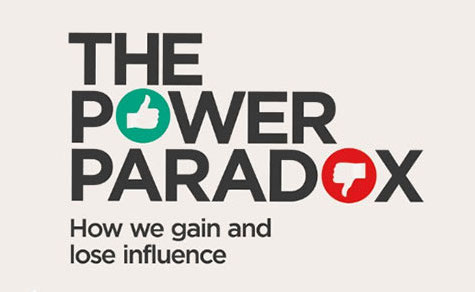
(39 Performance: Friday August 24, 2018)
Fifth video of a six part video series called
“Lists for Time Management. Simplicity is the Ultimate Sophistication”
FLOW
Lists are an excellent way to approach & support time management.
Keeping the lists simple and simultaneously sophisticated is the task and challenge at hand.
This is what makes a list valuable, and allows for best focus and productivity.
Fifth Tip:
FLOW is the state in which we feel our best and perform our best.
FLOW is the state between boredom and anxiety.
Enemies of FLOW are (1) Distractions, (2) Self-Consciousness, & (3) Self-Centeredness
Different activities and tasks produce different levels of FLOW.
Calibrate each task on your work list for FLOW potential
Calibrate / validate tasks against:
- Does this task get me into the zone/FLOW state?
- Does this task bore me?
- Does this task make me anxious?
- Do I get easily distracted when doing this task?
- Does this task make me self-conscious?
- Does this task make me self-centered?
Then schedule the most FLOW generating tasks into the time slots where your energy and willpower are not at their best.
The tasks will reenergize you and you may well say to yourself, “Wow! Where did time go? It seemed to have vanished”
The more your “To-Do List” / day is filled with FLOW generating tasks, the more you will flourish and succeed in life.
Characteristics and Notes of FLOW
- We feel our best and perform our best.
- Action and awareness merge.
- Time vanishes. Self vanishes.
- Heightened mental quickness
- FLOW is a highly elusive state.
3 things to know about FLOW
- Flow creates powerful intrinsic motivation
- Flow cuts the path to mastery in half and accelerates performance
- People with the most flow are the happiest people
2 defining characteristics about FLOW
- It always feels good—it is always a positive experience
- It functions as a performance enhancer
Put differently
- Flow is selfless. It silences our inner critic
- Flops is effortless. It accelerates the path towards mastery
- Flow is timeless. It is hackable.
Consistent features of FLOW (Mihaly Csikszentmihalyi)
- Clear goals
- Concentration
- A loss of the feeling of self-consciousness
- Distorted sense of time
- Direct & immediate feedback
- Balance between ability and challenge
- Personal concentration (over situation)
- Intrinsically rewarding
- Lack of awareness (of bodily needs)
- Absorption & awareness of only the activity itself
Points 1, 5 & 6 are now considered more condition required for flow—rather than the actual flow experience.
Micro-flow = some but not all conditions for flow present
Macro-flow = all conditions present
For more on FLOW. https://necessarybridges.com/flow/
Time Management Series Summation
In this series we will calibrate each item on a list again various criteria to ensure we build in the optimal sophistication, without increasing the list’s complexity too much.
1st tip. Introduction.
2nd tip. Each item on the list is calibrated for urgency and importance.
3rd tip. Each item on the list is calibrated for fit into bigger picture
4th tip. Each item on the list is calibrated for energy and stress
5th tip. Each item on the list is calibrated for ATTENTION management & FLOW potential
6th tip. Summary.
SOURCES:
- The Rise of Superman. Decoding the Science of Ultimate Human Performance. Steven Kotler
- FLOW: The Psychology of Optimal Experience. Mihaly Csikszentmihalyi
- Stealing Fire: How Silicon Valley, the Navy Seals, and Maverick Scientists are Revolutionizing the Way We Live and Work. Steven Kotler & Jamie Wheal
____________________
Image from
https://www.keywebconcepts.com/2010/10/why-cant-you-guarantee-my-site-will-be-1-in-search-results/notebook-with-retro-clock-on-wooden-table-top-view-image/
Image (Juggling) from http://www.druckerinstitute.com/monday/time-management/
____________________
(39 Eloquence: Wednesday August 22, 2018)
An optimal state for a speaker, presenter, lecturer, video messenger is the FLOW state, which is a state between boredom and anxiety.
There are many techniques to shift from anxiety to FLOW. One of them is called re-labelling or reappraising. It involves using different language when speaking to yourself.
For example, if you are feeling anxious, try saying, “I’m Feeling Excited” repeatedly. This approach can change a negative high arousal state to a positive high arousal state.
SOURCE
The Atlantic: Turn Anxiety Into Excitement
https://www.theatlantic.com/video/index/485297/turn-anxiety-into-excitement/
(39 Book: Monday August 20, 2018)
First of a seven part series based on insights and ideas from the book “The Power Paradox: How We Gain & Lose Influence” by Dacher Keltner
Book thesis, major segments and point below.
The thesis / paradox:
We rise in power and make a difference in the world due to what is best about human nature, but we fall from power due to what is worst.
We gain a capacity tho make a difference in the world by enhancing the lives of others. But the very experience of having power and privilege leads us to behave, in our worst moments, like impulsive, out-of-control sociopaths.
This book is more about the psychology of power and the recognition that it is a medium by which we relate to one another.
It not much focused political power, corporate power, power of leaders, Machiavellian thinking etc, even though these are addressed in the book.
Book Summary
The Power Paradox: How We Gain & Lose Influence. Dacher Keltner
- Power is About Making a Difference
- Power is Given, Not Grabbed
- Enduring Power Comes from a Focus on Others
- The Abuses of Power
- The Price of Powerlessness
This is the power paradox:
We rise in power and make a difference in the world due to what is best about human nature, but we fall from power due to what is worst.
We gain a capacity tho make a difference in the world by enhancing the lives of others. But the very experience of having power and privilege leads us to behave, in our worst moments, like impulsive, out-of-control sociopaths.
Handling the power paradox well is fundamental to the health of our society.
Think of and define power as the capacity to make a difference in the world, in particular by stirring others in our social networks.
Power is the medium by which we relate to one another. Power is about making a difference in the world by influencing others.
20 Principles
Power is About Making a Difference
1. Power is about altering the states of others.
2. Power is a part of every relationship and interaction.
3. Power is found in everyday actions.
4. Power comes from empowering others in social networks.
Power is Given, Not Grabbed
5. Groups give power to those who advance the greater good.
6. Groups construct reputations that determine the capacity to influence.
7. Groups reward those who advance the greater good with status and esteem.
8. Groups punish those who undermine the greater good with gossip.
Enduring Power Comes from a Focus on Others
9. Enduring power comes from empathy.
10. Enduring power comes from giving.
11. Enduring power comes from expressing gratitude.
12. Enduring power comes from telling stories that unite.
The Abuses of Power
13. Power leads to empathy deficits and diminished moral sentiment.
14. Power leads to self-serving impulsivity.
15. Power leads to incivility and disrespect.
16. Power leads to narratives of exceptionalism.
The Price of Powerlessness
17. Powerlessness involves facing environments of continual threat.
18. Stress defines the experience of powerlessness.
19. Powerlessness undermines the individual’s ability to contribute to society.
20. Powerlessness causes poor health.
Fivefold Path to Enduring Power in Our Daily Lives
- Be aware of your feelings of power.
- Practice humility.
- Stay focused on others, and give.
- Practice respect.
- Change the psychological context of powerlessness.
SOURCE: The Power Paradox: How We Gain and Lose Influence. Dacher Keltner
(38 Performance: Friday August 17, 2018)
Fourth video of a six part video series called
“Lists for Time Management. Simplicity is the Ultimate Sophistication”
ENERGY/STRESS
Lists are an excellent way to approach & support time management.
Keeping the lists simple and simultaneously sophisticated is the task and challenge at
hand.
This is what makes a list valuable, and allows for best focus and productivity.
Fourth Tip:
Calibrate / validate tasks against
- Does this task stress me out?
- Does this task energize me?
- Does this task bore me?
- Does this task make me struggle?
Also, “know yourself” in terms of time-of-day-energy. Some of us have more energy in the early mornings, others in mid morning, other later in the day.
To the extent that we can, we should try to schedule the most difficult, stressful, anxiety generating tasks to be done when we have the most and best energy.
It takes discipline and determination to “not do” our favorite, most energizing tasks, when we have our best energy.
This approach increases the odds that we will more successfully get the stressful-important-not urgent tasks done regularly—leading to more long-term success.
Time Management Series Summation
In this series we will calibrate each item on a list again various criteria to ensure we build in the optimal sophistication, without increasing the list’s complexity too much.
1st tip. Introduction.
2nd tip. Each item on the list is calibrated for urgency and importance.
3rd tip. Each item on the list is calibrated for fit into bigger picture
4th tip. Each item on the list is calibrated for energy and stress
5th tip. Each item on the list is calibrated for ATTENTION management & FLOW potential
6th tip. Summary.

Image from
https://www.keywebconcepts.com/2010/10/why-cant-you-guarantee-my-site-will-be-1-in-search-results/notebook-with-retro-clock-on-wooden-table-top-view-image/
Image (Juggling) from http://www.druckerinstitute.com/monday/time-management/
38 Eloquence: Wednesday August 15, 2018)
In his excellent TED talk, Andrew Stanton, one of the creative forces in Pixar, says, The Greatest Story Commandment is: “Make Me Care”
I later read the same words in an article on creative writing: The great responsibility, challenge, and opportunity of a creative writer is to make the reader care.
Same concept applies to a communicator, be it a public speaker, a video message, or even a one-on -one communication. The responsibility, the challenge, and the opportunity of the communicator is to make the listener care. Not just to comprehend the message, but also to care about the message.
Image from. https://quotefancy.com/quote/1649432/Andrew-Stanton-The-greatest-story-commandment-is-Make-me-care
Source: Andrew Stanton. TED Talk. The clues to a great story.
https://www.ted.com/talks/andrew_stanton_the_clues_to_a_great_story
(38 Book: Monday August 13, 2018)
You and he were adversaries, but you were allied in a determination that the world should not be blown up. You respected each other and could deal with each other … The danger which troubled my husband was that war might be started no so much by big men as by the little ones … While big men know the needs for self-control and restraint—little men are sometimes moved by fear and pride. If only in the future the big men continue to make the little ones sit down and talk, before they start to fight.
In the early 1960s, Nikita Khrushchev (leader of the USSR) initiated a correspondence with John F. Kennedy (leader of the USA) in an effort to bridge gaps between the two leaders, and between the USSR & USA. The two leaders exchanged letters from 1960 (JFK’s election victory) till 1963 (JFK assassination)
The book “The Kennedy-Khrushchev Letters” contains 120 of these letters. It offers the most direct look into the minds and thinking of these two leaders, and into the history of this tumultuous period.
_______________________
Here is a segment from a letter written by widow Jacqueline Kennedy to Chairman Khrushchev, after her husbands assassination.
Washington, December 1, 1963
DEAR MR. CHAIRMAN PRESIDENT, I would like to thank you for sending Mr. Mikoyan as your representative to my husband’s funeral.
…
So now, in one of the last nights I will spend in the White House, in one of the last letters I will write on this paper in the White House, I would like to write you my message.
I send it only because I know how much my husband cared about peace, and how the relation between you and him was central to this care in his mind. He used to quote your words in some of his speeches: “In the next war the survivors will envy the dead.”
You and he were adversaries, but you were allied in a determination that the world should not be blown up. You respected each other and could deal with each other.
…
The danger which troubled my husband was that war might be started no so much by big men as by the little ones.
While big men know the needs for self-control and restraint—little men are sometimes moved by fear and pride. If only in the future the big men continue to make the little ones sit down and talk, before they start to fight.
…
Sincerely
Jacqueline Kennedy
_______________________
SOURCE: The Kennedy-Khrushchev Letters.
(37 Performance: Friday August 10, 2018)
Third video of a six part video series called
“Lists for Time Management. Simplicity is the Ultimate Sophistication”
BIGGER PICTURE
Lists are an excellent way to approach & support time management.
Keeping the lists simple and simultaneously sophisticated is the task and challenge at hand.
This is what makes a list valuable, and allows for best focus and productivity.
Third Tip
Calibrate / validate tasks against
- Is this task part of a current project? Or is it a one-off? A distraction? Something I’m doing because I like doing it?
- Is this task part of my broader responsibilities? Or is it a one-off? A distraction? Something I’m doing because I like doing it?
- Does this task support my 1 – 2 year goals? my mission? Or is it a one-off? A distraction? Something I’m doing because I like doing it?
- Does this task support my 3 – 5 year goals? my vision? Or is it a one-off? A distraction? Something I’m doing because I like doing it?
- Does this task support the (important and great) work of my life? My power to impact? My purpose? Or is it a one-off? A distraction? Something I’m doing because I like doing it?
____________________
Some more of the same, from David Allen’s book, Getting Things Done.
if
my current runway actions do not align with my
10,000’ current projects and my
20,000’ areas of responsibility and my
30,000’ 1 – 2 year goals and my
40,000’ 3 – 5 year visions and my
50,000’ life’s great work
then
things may not get done
6-Levels of Work
- > 50,000’ = work of my life
- 40,000’ = my 3 – 5 year visions
- 30,000’ = my 1 – 2 year goals
- 20,000’ = my areas of responsibility
- 10,000’ = my current projects
- Runway = my current actions
move from bottom to top
____________________
Time Management Series Summation
In this series we will calibrate each item on a list again various criteria to ensure we build in the optimal sophistication, without increasing the list’s complexity too much.
1st tip. Introduction.
2nd tip. Each item on the list is calibrated for urgency and importance.
3rd tip. Each item on the list is calibrated for fit into bigger picture
4th tip. Each item on the list is calibrated for energy and stress
5th tip. Each item on the list is calibrated for ATTENTION management & FLOW potential
6th tip. Summary.
SOURCE:
Book. Getting Things Done. David Allen
Talks at Google. David Allen: Getting Things Done. https://youtu.be/Qo7vUdKTlhk.
Getting in control and creating space. David Allen. TEDxAmsterdam 2014. https://youtu.be/kOSFxKaqOm4.
____________________
Image (Juggling) from http://www.druckerinstitute.com/monday/time-management/

(37 Eloquence: Wednesday August 8, 2018)
FLOW is the state in which we feel our best and perform our best. It is an area of high interest and research in the elite-performance world. The study, practice, and application of FLOW has become increasingly mainstream.
FLOW is a state that is between boredom and anxiety.
We get bored when our skills and abilities are not adequately challenged
We get anxious when our skills and abilities are exceeded by our challenges.
Enemies of FLOW are distractions, self-consciousness, self-centeredness.
Public speakers are at their best when they are in the FLOW zone. When there is no anxiety, no boredom, no self-consciousness, no self-centeredness, and there are no distractions.
Consequently public speakers, presenters, storytellers, etc., should learn more about this state. And accept that it is the speaker’s responsibility to get into this state when presenting.
Introduction to FLOW here. www.NecessaryBridges.com/FLOW.
Image Source. https://www.myteacher.com.ng/course/public-speaking-strategies/
(37 Book: Monday August 6, 2018)
The more the two of us pull, the tighter the knot will be tied. And a moment may come when the knot will be tied so tight that even he who tied it will not have the strength to unite it, and then it will be necessary to cut that knot, and what that would mean is not for me to explain to you, because you yourself understand perfectly of what terrible forces our countries dispose.
In the early 1960s, Nikita Khrushchev (leader of the USSR) initiated a correspondence with John F. Kennedy (leader of the USA) in an effort to bridge gaps between the two leaders, and between the USSR & USA. The two leaders exchanged letters from 1960 (JFK’s election victory) till 1963 (JFK assassination)
The book “The Kennedy-Khrushchev Letters” contains 120 of these letters. It offers the most direct look into the minds and thinking of these two leaders, and into the history of this tumultuous period.
_______________________
Here—at the height of the CUBAN MISSILE CRISIS—are segments of a very long letter from Chairman Khrushchev to President John F. Kennedy.
(Communication technology, process, and time required, was very very different back then.)
Telegram From the Embassy in the Soviet Union to the Department of State
Moscow, October 26, 1962
Dear Mr. President:
(Some segments from the opening paragraphs)
I have received your letter of October 25./2/ From your letter, I get the feeling that you have some understanding of the situation which has developed and (some) sense of responsibility. I value this …
…
I think you will understand me correctly if you are really concerned about the welfare of the world. Everyone needs peace: both capitalists, if they have not lost their reason … … … We have always regarded war as a calamity, and not a game … … … War is our enemy and a calamity for all peoples.
…
(Then after lots of back and forth and negotiation—10 pages in the book—he closes out with this)
…
If you did this as the first step towards the unleashing of war, well then, it is evident that nothing else is left to us but to accept this challenge of yours. If however, you have not lost your self-control and sensibly conceive what this might lead to, then, Mr. President, we and you ought not now to pull on the ends of the rope in which you have tied the knot of war, because the more the two of us pull, the tighter the know will be tied. And a moment may come when that knot will be tied so tight that even he who tied it will not have the strength to unite it, and then it will be necessary to cut that knot, and what that would mean is not for me to explain to you, because you yourself understand perfectly of what terrible forces our countries dispose.
Consequently, if there is no intention to tighten that knot and thereby doom the world to the catastrophe of thermonuclear war, then let us not only rely the forces pulling on the ends of the rope, let us take measures to untie that knot. We are ready for this.
…
These thoughts are dictated by a sincere desire to relive the situation, to remove the threat of war.
Respectfully yours,
N Khrushchev
_______________________
SOURCE: The Kennedy-Khrushchev Letters.
(36 Performance: Friday August 3,, 2018)
Second video of a six part video series called
“Lists for Time Management. Simplicity is the Ultimate Sophistication”
Q2 THINKING
Lists are an excellent way to approach & support time management.
Keeping the lists simple and simultaneously sophisticated is the task and challenge at hand.
This is what makes a list valuable, and allows for best focus and productivity.
Second Tip:
Once you have your “Daily To-Do” list in front of you, calibrate each item/task for importance and urgency.
If the task is:
- “Important” and “Urgent”, mark it “Q1” (Quadrant 1)
- “Important” and “Not Urgent”, mark it “Q2” (Quadrant 2)
- “Not Important” and “Urgent”, mark it “Q3” (Quadrant 3)
- “Not Important” and “Not Urgent”, mark it “Q4” (Quadrant 4)
An ideal list will have a healthy balance between “Q1” & “Q2” tasks.
Top performers—those who achieve enduring and long term success—are particularly good at having and working on “Q2” tasks systematically and regularly.
- All tasks marked “Q1” must be done. No way around this.
- If you have only Q1 tasks, you will get stuck in “fire fighting” mode.
- All tasks marked “Q3” & “Q4” should be scratched out, or moved to another list, preferably on the same sheet of paper, marked “Do Not Do”
Some examples of Q2 tasks / activities are:
- Working on long term professional projects
- Planning future projects
- Exercise
- Learning & Reading
- Time with family and friends
- Networking
- Professional skill / hobby development. Continuous improvement.
- Cultivating good relationships
- Healing wounded relationships
- Mindfulness training / Meditation
- Safety drills
- Training workshops and seminars
- Journaling or creative writing.
Time Management Series Summation
In this series we will calibrate each item on a list again various criteria to ensure we build in the optimal sophistication, without increasing the list’s complexity too much.
1st tip. Introduction.
2nd tip. Each item on the list is calibrated for urgency and importance.
3rd tip. Each item on the list is calibrated for fit into bigger picture
4th tip. Each item on the list is calibrated for energy and stress
5th tip. Each item on the list is calibrated for ATTENTION management & FLOW potential
6th tip. Summary.
(36 Eloquence: Wednesday August 1, 2018)
Consonance:
- The recurrence of similar sounds, especially consonants, in close proximity
- Repetition of Consonant sounds
Used skillfully consonance makes a message more memorable, more melodic, and more pleasurable.
If overused, it becomes a distraction, taking away from the core message.
Examples
- Effective communicators are convincing, charming and cajoling—simultaneously.
- As a presenter, whether live or on video, one should aspire to be professional, polished and personable, without coming across as superior or stiff.
(36 Book: Monday July 30, 2018)
Positive psychology identifies three broad streams that lead to happiness, flourishing, wellbeing:
- Positive emotions. Pleasant bodily sensations and feelings.
- Engagement. Doing work, activities, tasks with singular focus. Passion.
- Meaning. Purpose. Giving yourself and your work to something larger and more important than yourself.
Positive psychology suggests that there is something of a Copernican Revolution taking place right now.
About 400 – 500 years ago, N Copernicus, discovered that earth revolved around the sun. Till then it was assumed that the earth was central and that the sun revolved around it. Discoveries like this are today referred to Copernican Revolutions.
We have been brought up believing that we must all work very hard for success, as being successful will lead to us becoming happier.
Now positive psychology suggests that this might be wrong. Rather, if we are able to first (1) get into a good state of body, (2) do our work with singular focus and passion, and (3) do work that is meaningful and larger than our selves, then we greatly increase the likelihood of us being successful.
SOURCE: The Happiness Advantage. Shawn Achor
TED Talk. The Happy Secret to Better Work. Shawn Achor
https://www.ted.com/talks/shawn_achor_the_happy_secret_to_better_work
(35 Performance: Friday July 27, 2018)
First of six videos of a series called
Lists for Time Management. Simplicity is the Ultimate Sophistication
INTRODUCTION
Lists are an excellent way to approach & support time management.
Keeping the lists simple and simultaneously sophisticated is the task and challenge at hand.
This is what makes a list valuable, and allows for best focus and productivity.
In this series we will calibrate each item on a list again various criteria to ensure we build in the optimal sophistication, without increasing the list’s complexity too much.
2nd tip. Each item on the list is calibrated for urgency and importance.
3rd tip. Each item on the list is calibrated for fit into bigger picture
4th tip. Each item on the list is calibrated for energy and stress
5th tip. Each item on the list is calibrated for ATTENTION management & FLOW potential
6th tip. Summary.
____________________
First image from
https://www.keywebconcepts.com/2010/10/why-cant-you-guarantee-my-site-will-be-1-in-search-results/notebook-with-retro-clock-on-wooden-table-top-view-image/
Image (Juggling) from http://www.druckerinstitute.com/monday/time-management/
____________________
(35 Eloquence: Wednesday July 25, 2018)
An eloquent message without substance and pragmatism is ephemeral. The communication may please briefly, but it does not endure.
It is more like a piece of chocolate or candy, which tastes nice, but it does not contribute to good health.
A balanced diet is what contributes to good health—the enduring benefit. A balanced diet is not particularly tasty, but when enhanced with seasoning, it can be made pleasing. It becomes a pleasant experience with enduring benefits.
This is a good analogy fo communication. Substantive and pragmatic messages contribute to good health. They may not be magnetic. Eloquence is the seasoning that makes a message magnetic.
So remember, “Not With Eloquence Alone”.
Here is an example of a master orator delivering an enduring message. It is a segment from President John F Kennedy’s “A Strategy of Peace” speech. You can see how he seamlessly stitches eloquence, substance, and pragmatism together. A truly enduring and magnetic message; in less than 2 minutes! Anyone can do this. You can do this.
ELOQUENCE. SOARING RHETORIC
What kind of peace do I mean?
What kind of peace do we seek?
…
I am talking about genuine peace
the kind of peace that makes life on earth worth living
the kind that enables man and nations to grow
and to hope
and to build a better life for their children
not merely peace for Americans
but peace for all men and women
not merely peace in our time
but peace for all time.
SUBSTANCE. HARD HEADED CLARITY.
I am not referring to the absolute, infinite concept of universal peace and good will
of which some fantasies and fanatics dream.
I do not deny the values of hopes and dreams
but we merely invite discouragement and incredulity
by making that our only and immediate goal.
ANCHORED IN PRAGMATISM
Let us focus instead on a more practical,
more attainable peace
based not on a sudden revolution in human nature
but on a gradual evolution in human institutions
on a series of concrete actions and effective agreements
which are in the interest of all concerned.
There is no single, simple key to this peace
no grand or magic formula to be adopted by one or two powers. Genuine peace must be the product of many nations,
the sum of many acts.
It must be dynamic, not static,
changing to meet the challenge of each new generation.
For peace is a process
a way of solving problems.
SOURCE: “A Strategy of Peace”, speech also called the “American University Speech”, or “Commencement Address at American University, June 10, 1963”
https://www.jfklibrary.org/Asset-Viewer/BWC7I4C9QUmLG9J6I8oy8w.aspx
(35 Book: Monday July 23, 2018)
“Getting to YES, Negotiating Agreement Without Giving In” by Roger Fisher and William Ury is a classic book on negotiating and bargaining.
It recommends “Principled” negotiation over “Position based Negotiation” i.e. don’t bargain over positions.
This gives us three options:
- A SOFT position option
- A HARD position option
- A PRINCIPLED option
Reject the soft and hard position options.
Select the PRINCIPLED option
SOFT position #1: Participants are friends.
HARD position #1: Participants are adversaries.
PRINCIPLED option #1: Participants are problem solvers.
SOFT position #2: The goal is agreement.
HARD position #2: The goal is victory.
PRINCIPLED option #2: The goal is a wise outcome reached efficiently and amicably.
SOFT position #3: Make concessions to cultivate the relationship.
HARD position #3: Demand concessions as a condition of the relationship.
PRINCIPLED option #3: Separate the people from the problem.
SOFT position #4: Be soft on the people and the problem.
HARD position #4: Be hard on the problem and the people.
PRINCIPLED option #4: Be soft on the people and hard on the problem.
SOFT position #5: Trust others.
HARD position #5: Distrust others.
PRINCIPLED option #5: Proceed independent of trust.
SOFT position #6: Change your position easily.
HARD position #6: Dig into your position.
PRINCIPLED option #6: Focus on interests, not positions.
SOFT position #7: Make offers.
HARD position #7: Dig into your position.
PRINCIPLED option #7: Explore interests.
SOFT position #8: Disclose your bottom line.
HARD position #8: Mislead as to your bottom line.
PRINCIPLED option #8: Avoid having a bottom line.
SOFT position #9: Accept one sided losses to reach agreement.
HARD position #9: Demand one sided gains as the price of agreement.
PRINCIPLED option #9: Develop multiple options to chose from; decide later.
SOFT position #10: Search for the single answer; the one they will accept.
HARD position #10: Search for the single answer; the one you will accept.
PRINCIPLED option #10: Develop multiple options to chose from; decide later.
SOFT position #11: Insist on agreement.
HARD position #11: Insist on your position.
PRINCIPLED option #11: Insist on using objective criteria.
SOFT position #12: Try to avoid a contest of will.
HARD position #12: Try to win a contest of will.
PRINCIPLED option #12: Try to reach a result based on standard independent of will.
SOFT position #13: Yield to pressure.
HARD position #13: Apply pressure.
PRINCIPLED option #13: Reason and be open to reason; yield to principle not pressure.
SOURCE: Getting to YES, Negotiating Agreement Without Giving In Roger Fisher and William Ury.
TED Talk. The walk from “no” to “yes” | William Ury. https://youtu.be/Hc6yi_FtoNo
(34 Performance: Friday July 6, 2018)
Nelson Mandela was committed to a life time of exercising, and clearly reaped the rewards.
Two segments from John Carlin’s book, “Playing the Enemy: Nelson Mandela and the Game That Made a Nation”:
Segment 1. Chapter I, “Breakfast in Houghton” June 24, 1995.
QUOTE
Mandela was wedded to an exercise routine he’d begun even before prison, in the forties and fifties when he was a lawyer, revolutionary, and amateur boxer. In those days he would run for an hour before sunrise, from his small brick home in Soweto to Johannesburg and back.
In 1964 he went to prison in Robben Island, off the coast of Cape Town, remaining in a tiny cell for eighteen years. There, for lack of a better alternative, he would run in place. Every morning, again, for one hour.
In 1982 he was transferred to a prison on the mainland, where he shared a cell with his closest friend Walter Sisulu, and three other veterans of South Africa’s anti-apartheid struggle. The cell was big, about the size of half a tennis court, allowing him to run short tight laps.
…
After his release from prison at the age of seventy-one, in February 1990, he eased up a little. Instead of running he now walked, but briskly, and still every morning, still for one hour, before daybreak.
UNQUOTE
Segment 2. Chapter XI, “Address their Hearts” 1994.
QUOTE:
A simple low-fat diet, vigorous exercise, fresh sea air, plenty of sleep, regular hours, practically zero stress: prison did have its compensations. It helped explain why Mandela’s doctors confirmed the evidence of those who watched him in action during his spectacularly eventful seventy-sixth year: he had the constitution of a fit man of fifty.
UNQUOTE
SOURCE: “Playing the Enemy” renamed “Invictus”, by John Carlin
(34 Eloquence: Wednesday July 4, 2018)
In an earlier tip, I pointed out that deciding to become eloquent was more difficult than actually becoming eloquent.
If you have decided that you want to become more eloquent, then joining Toastmasters International is an outstanding option.
I’ve been a member since April 2009,(not always active) and can’t recommend it highly enough.
There are ~352,000 Toastmasters, spread across ~16,400 clubs, in ~140 countries.
You should be able to find a conveniently located club near you.
GOOD LUCK!
Some Links:
- Toastmasters International. https://www.toastmasters.org/about/who-we-are
- Eloquence tip from Feb 14, 2018. Deciding is Harder. https://youtu.be/LB79dnupU5A
- A tribute to Toastmasters International whose TAG line is Where Leaders Are Made, with some of my favorite leadership thoughts. https://youtu.be/_yru0_37Dwg
(34 Book: Monday July 2, 2018)
“Getting to YES, Negotiating Agreement Without Giving In” by Roger Fisher and William Ury is a classic book on negotiating and bargaining.
It recommends “Principled” negotiation over “Position based Negotiation” i.e. don’t bargain over positions.
This gives us three options:
- A SOFT position option
- A HARD position option
- A PRINCIPLED option
Reject the soft and hard position options.
Select the PRINCIPLED option
SOFT position #1: Participants are friends.
HARD position #1: Participants are adversaries.
PRINCIPLED option #1: Participants are problem solvers.
SOFT position #2: The goal is agreement.
HARD position #2: The goal is victory.
PRINCIPLED option #2: The goal is a wise outcome reached efficiently and amicably.
SOFT position #3: Make concessions to cultivate the relationship.
HARD position #3: Demand concessions as a condition of the relationship.
PRINCIPLED option #3: Separate the people from the problem.
SOFT position #4: Be soft on the people and the problem.
HARD position #4: Be hard on the problem and the people.
PRINCIPLED option #4: Be soft on the people and hard on the problem.
SOFT position #5: Trust others.
HARD position #5: Distrust others.
PRINCIPLED option #5: Proceed independent of trust.
SOFT position #6: Change your position easily.
HARD position #6: Dig into your position.
PRINCIPLED option #6: Focus on interests, not positions.
SOURCE: Getting to YES, Negotiating Agreement Without Giving In Roger Fisher and William Ury.
TED Talk. The walk from “no” to “yes” | William Ury. https://youtu.be/Hc6yi_FtoNo
(33 Performance: Friday June 29, 2018)
An occasional and explicit reminder is useful: Enhanced performance is catalyzed by strong foundations and strong fundamentals.
An occasional and explicit reminder is useful: Enhanced performance is catalyzed by strong foundations and strong fundamentals.
- Excellent Relationships
- Sensible and strategic food / diet
- Sensible and strategic rest & recovery / sleep / napping
- Sensible and strategic exercises, physical exercises and mindfulness exercises.
Excellent Relationships:
Have good relationships with everyone. One difficult or toxic relationship is one too many. It will enfeeble your performance. Surround yourself with positivity and positive people.
Remember the critical positivity ratio (https://youtu.be/CxgtpodynZk). To maintain neutral relationship we must have three positive experiences for every one negative experience,. This is because, in general, a negative experience uses 3 times more energy than a positive one. Good relationship are characterized by five to ten positive experiences for every negative experience.
Have good relationships with everyone. It will enhance your performance.
Sensible and Strategic Eating Habits:
Beware of sugars, fats and salts.
Have small portions.
Have fresh foods. Unprocessed food.
Have a wide range/variety of food.
Sensible and Strategic Rest, Recovery, Sleep, Napping.
I’ve covered these in more detail in earlier clips.
Summary of Sleep series. https://youtu.be/CxgtpodynZk
Power of Napping. https://youtu.be/CxgtpodynZk
Sensible and Strategic Exercising
Everyone is now aware of the necessity and advantage of physical exercise. It is as close to a wonder drug as anything we know.
Additionally mindfulness (meditation) is the new jogging. If you haven’t yet started, get onboard with this program too.
I’ve come to think of physical exercise as a workout for our hardware, and mindfulness as a work out for our software. Benefits of mindfulness are increased morality, increased concentration, and increased wisdom. All performance enhancers.
33 Eloquence: Wednesday June 27, 2018)
You don’t have to be sensational. You do have to be sincere.
When I first heard world famous speaker Mark Brown first say this line—many years ago—I immediately I knew I would never forget it. I couldn’t agree more.
It is parallel to one of my earlier Wednesday Eloquence Tips. Style Without Substance is Awful. https://youtu.be/BSF8E9BqQNk
Mark Brown’s superb speech (TI 1995 WCPS) can be seen here https://youtu.be/vn8sjKcSVpo
(33 Book: Monday June 25, 2018)
“Getting to YES, Negotiating Agreement Without Giving In” by Roger Fisher and William Ury is a classic book on negotiating and bargaining.
It recommends “Principled” negotiation over “Position based Negotiation” i.e. don’t bargain over positions.
This gives us three options:
- A SOFT position option.
- A HARD position option.
- A PRINCIPLED option.
Reject the soft and hard position options.
Select the PRINCIPLED option
SOFT position #1: Participants are friends.
HARD position #1: Participants are adversaries.
PRINCIPLED option #1: Participants are problem solvers.
SOFT position #2: The goal is agreement.
HARD position #2: The goal is victory.
PRINCIPLED option #2: The goal is a wise outcome reached efficiently and amicably.
SOURCE: Getting to YES, Negotiating Agreement Without Giving In Roger Fisher and William Ury.
TED Talk. The walk from “no” to “yes” | William Ury. https://youtu.be/Hc6yi_FtoNo
(32 Performance: Friday June 22, 2018)
A hidden driver of great performance, especially team performance is the quality and quantity of learning that is going on. And this means the quality and quantity of teaching—whether formal or informal, whether in a classroom setting or out on the field—that is going on.
If you are looking to enhance your performance and/or your team’s performance, ask yourself “Am I constantly learning?”. “Am I surrounding my self by great teachers?” “Are my team members constantly learning?”, and “Am I being a good teacher for my team?
SOURCE: TED Talk; John Doerr: Why the secret to success is setting the right goals.
https://www.ted.com/talks/john_doerr_why_the_secret_to_success_is_setting_the_right_goals
Measure What Matters by John Doerr.
(32 Eloquence: Wednesday June 20, 2018)
Today’s eloquence message is simple and sincere:
- To be a more eloquent person on stage (or on video), first be a more eloquent person offstage (or off video).
- To be a more eloquent presenter / performer on stage (or on video), first be a more eloquent person.
This is specially important when you are dealing with people with less privilege, less power, less social capital, less opportunity. If you can unfailingly treat them with dignity, respect, grace, class, and eloquence, you will unfailingly be eloquent on stage and on video.
If you deliberately, indifferently, or even inadvertently treat them with entitlement, superiority, disrespect, contempt, disgust etc., then it is likely you will be sub-optimally eloquent on stage or on video.
Definition: el·o·quence, ˈeləkwəns / noun
fluent or persuasive speaking or writing.”a preacher of great power and eloquence”
Synonyms: fluency, articulateness, expressiveness, silvertongue, persuasiveness, forcefulness, power, potency, effectiveness; oratory, rhetoric, grandiloquence, magniloquence
SOURCE: The Power of Eloquence. CD Audio Product. Glenna Salsbury.
(32 Book: Monday June 18, 2018)
Good to Great. Why Some Companies Make the Leap … and Others Don’t by Jim Collins is a bestselling, classic business book. Of this book it has been said, “If you read only one business book in your life, let it be this one.”
The author assembled a research team of twenty researchers who put in about 15,000 hours of project work. It is a book, the author claims, in which all findings are extracted from data.
One of the findings was “Confront the Brutal Facts, Yet Never Lose Faith”. QUOTE. We learned that a former prisoner of war had more to teach us about what it takes to find a path to greatness than most books on corporate strategy. Every good-to great company embraced what we came too call the Stockdale Paradox: You must maintain unwavering faith that you can and will prevail in the end, regardless of the difficulties, AND at the same time, have the discipline to confront the most brutal facts of your current reality, whatever they might be. UNQUOTE.
SOURCE: Good to Great. Jim Collins
(31 Performance: Friday June 15, 2018)
When you have a critical task or performance, consider deliberately planning a nap to ensure your best performance
From the book The Sleep Revolution: Transforming Your Life, One Night at a Time. Arianna Huffington
QUOTE. Naps are great for us even when we are getting good sleep ay night. According to David Randall, the author of Dreamland, even a short nap “primes our brain to function at a higher level, letting us come us with better ideas, find solutions to puzzles more quickly, identify patterns faster and recall information more accurately. UNQUOTE.
…
QUOTE. In a study by Allegheny College in Pennsylvania, participants who napped for forty-five minutes during the day were found to have lower blood pressure after completing a stressful task than those who did not nap. UNQUOTE.
…
QUOTE. Yo-Yo Ma (one of the world’s greatest cellists) always tries to take a nap before playing a concert. “It’s one way to press the reset button, to restart the day,” he said. I find that being in an in-between state of consciousness and unconsciousness is best fo performing, when the pathways between the analytical self and the intuitive self are most open. UNQUOTE.
…
QUOTE. Margret Thatcher used to tell her staff not to bother her during her 2:30-to-3:30 nap. John F. Kennedy took a long nap after lunch, with no interruptions or telephone calls from staff allowed. UNQUOTE.
…
QUOTE. Winston Churchill is credited with doing the term “power nap.” Here he is, with typical critical flourish, on the joys of napping: “You must sleep sometime between lunch and dinner, and no halfway measures. UNQUOTE.
…
QUOTE. Pope Francis isn’t just a global spiritual leader. he’s also a globe-trotting napping ambassador. “I take off my shoes,” the pope said, “and I lie on my bed for a rest.” When traveling with a whirlwind schedule, Vatican officials intentionally include unscheduled time so that the pope could take a midday nap—usually about forty minutes. UNQUOTE.
SOURCE: Sleep Revolution. Arianna Huffington
(31 Eloquence: Wednesday June 13, 2018)
On June 10th 1963, President John F Kennedy delivered his “A Strategy of Peace” speech at the The American University. Some historians rate this as the most important peace speech of the last century.
According to the book “To Move the World: JFK’s Quest for Peace” by Jeffery D. Sachs, this speech was part of a great turning point in the Cold War, the stepping back from the nuclear abyss, and political acts of grace and courage by President John F. Kennedy, and his Soviet counterpart, Communist Party Chairman Nikita Khrushchev. The two men, in their distinct ways said, “Enough.”
Ted Sorensen, Kennedy’s speech writer and councilor told the author Jeffery Sachs that this was his favorite of all Kennedy’s speeches.
Kennedy tells us how to transform our deepest aspirations—in this case for peace—into practical realities. He almost presents a method, a dream-and-do combination that soars with high vision, and yet walks on earth with practical results.
Soaring Vision & Optimism
- The most important topic on earth: world peace
- Not merely peace for Americans but peace for all men and women–not merely peace in our time but peace for all time.
- And man can be as big as he wants.
- No problem of human destiny is beyond human beings.
- Man’s reason and spirit have often solved the seemingly unsolvable–and we believe they can do it again.
Confronting Pessimism
- Some say that it is useless to speak of world peace or world law or world disarmament–and that it will be useless until the leaders of the Soviet Union adopt a more enlightened attitude. I hope they do. I believe we can help them do it.
- Too many of us think it (peace) is impossible. Too many think it unreal. But that is a dangerous, defeatist belief. It leads to the conclusion that war is inevitable–that mankind is doomed–that we are gripped by forces we cannot control. We need not accept that view.
Pragmatism, Rationality, & Reality
- I speak of peace, therefore, as the necessary rational end of rational men.
- I realize that the pursuit of peace is not as dramatic as the pursuit of war–and frequently the words of the pursuer fall on deaf ears.
- But I also believe that we must reexamine our own attitude–as individuals and as a Nation–for our attitude is as essential as theirs.
- Our problems are manmade–therefore, they can be solved by man.
- I am not referring to the absolute, infinite concept of peace and good will of which some fantasies and fanatics dream.
- I do not deny the value of hopes and dreams but we merely invite discouragement and incredulity by making that our only and immediate goal.
SOURCE: To Move the World: JFK’s Quest for Peace. Jeffery D. Sachs
(31 Book: Monday June 11, 2018)
Good to Great. Why Some Companies Make the Leap … and Others Don’t by Jim Collins is a bestselling, classic business book. Of this book it has been said, “If you read only one business book in your life, let it be this one.”
The author assembled a research team of twenty researchers who put in about 15,000 hours of project work. It is a book, the author claims, in which all findings are extracted from data.
One of the findings was “Level 5 Leadership”. QUOTE. We were surprised, shocked really, to discover the type of leadership required for turning a good company into a great one. Compared to high-profile leaders with big personalities who make headlines and become celebrities, the good-to-great leaders seem to have come from Mars. Self-effacing, quiet, reserved, even shy—these leaders are a paradoxical blend of personal humility and professional will. They are more like Lincoln and Socrates than Patton or Caesar. UNQUOTE.
SOURCE: Good to Great. Jim Collins
(30 Performance: Friday June 8, 2018)
Summary of “Be Better Rested” series
- Q2 thinking and planning. https://youtu.be/v96cIOMkgko
- Better rested athletes (Stanford) = better results. https://youtu.be/t9M2cp-kCAE
- Recovery (sleep) is a integral part of the FLOW cycle. https://youtu.be/UJ8hZeJ9R-E
- TED Talk. Multiple benefits of planned sleep. https://youtu.be/KQ9J69WYZzo
- HBR article. Rest Well to Excel. https://youtu.be/zjsoJQG6_RM
- One more reason. Brain is cleared of waste during sleep. https://youtu.be/6vHOmAcocs0
(30 Eloquence: Wednesday June 6, 2018)
It is almost magical to watch a “winner” exuding grace, and following up with a message of persuasion. This is a technique worth knowing and using.
An example from a movie, “Chariots of Fire”
GRACE:
You came to see a race today. To see someone win.
It happened to be me.
Transition to PERSUASION:
But I want you to do more than just watch a race.
I want you to take part in it.
I want to compare faith to running in a race.
PERSUASION:
It’s hard.
It requires concentration of will.
Energy of soul.
SOURCE: Movie Chariots of Fire
Where Does the Power Come From?
https://www.youtube.com/watch?v=kbgR-pOIFbE
(30 Book: Monday June 4, 2018)
Shoe Dog is a book written by Phil Knight, the founder of Nike. It is a beautifully written business book.
From his college days, he recalls an old maxim cited by professors, “When goods don’t pass international borders, that’s when soldiers will.”
SOURCE: Shoe Dog. Phil Knight
Image: http://www.ridingwiththewindowdown.com/2017/04/02/book-review-shoe-dog-memoir-creator-nike/
(29 Performance: Friday June 1, 2018)
One more reason to get a good night’s sleep.
QUOTE. We’ve found that sleep may actually be a kind of elegant design solution to some of the brain’s most basic needs, a unique way that the brain meets the high demands and the narrow margins that set it apart from all the other organs of the body.
The blood vessels form a complex network that fills the entire brain volume. They start at the surface of the brain, and then they dive down into the tissue itself, and as they spread out, they supply nutrients and oxygen to each and every cell in the brain.
…
And what’s amazing is that no other organ takes quite this approach to clearing away the waste from between its cells. This is a solution that is entirely unique to the brain.
But our most surprising finding was that all of this, everything I just told you about, with all this fluid rushing through the brain, it’s only happening in the sleeping brain.
…
So if sleep, then, is part of the brain’s solution to the problem of waste clearance, then this may dramatically change how we think about the relationship between sleep, amyloid-beta, and Alzheimer’s disease.
…
See, you and I, we go to sleep every single night, but our brains, they never rest. While our body is still and our mind is off walking in dreams somewhere, the elegant machinery of the brain is quietly hard at work cleaning and maintaining this unimaginably complex machine. Like our housework, it’s a dirty and a thankless job, but it’s also important. In your house, if you stop cleaning your kitchen for a month, your home will become completely unlivable very quickly. UNQUOTE
SOURCE: TED talk. One more reason to get a good night’s sleep. Jeff Iliff. (TED Med 2014)
https://www.ted.com/talks/jeff_iliff_one_more_reason_to_get_a_good_night_s_sleep
(29 Eloquence: Wednesday May 30, 2018)
For messaging to be both effective and eloquent, we must make our audiences care. Not just comprehend, but also care.
Andrew Stanton has said that the greatest storytelling commandment is “Make Me Care”
To do this, first, we must have a substantive message. This is foundational and non-negotiable.
Next, our words and message must be able to pass this three part checklist
- Is it true?
- Is It necessary?
- Is it kind?
SOURCE:
Arabian Quotation
Andrew Stanton, TED Talk. The clues to a great story.
https://www.ted.com/talks/andrew_stanton_the_clues_to_a_great_story
Images Sources
https://quotefancy.com/quote/1649432/Andrew-Stanton-The-greatest-story-commandment-is-Make-me-care
https://www.neboagency.com/blog/introducing-rabushkas-rules-a-social-media-etiquette-series/
(29 Book: Monday May 28, 2018)
“Gaslighting” is an aggressive and elaborate scheme that can be used to persuade and increase control over people. 5-Steps:
- Stake a Claim.
- Advance and Deny.
- Create Suspense.
- Discredit the Opponent.
- Win.
The author then shows how this basic approach / pattern / technique has been utilized by current POTUS & his team/tribe with case studies, explicit examples, and clear details:
- Obama birth certificate.
- Jeb Bush Candidacy.
- The author herself.
- The Republican Party and contesting politicians/leaders.
- Megyn Kelly
- Media in general.
- Hillary Clinton.
And other examples.
I will also add that the author has been unafraid, likable, and responsible in the book.
One More Thing: Loved the Dedication. “To those who, as Rudyard Kipling wrote, “Can keep your head when all about you are losing theirs and blaming it on you.”
SOURCE: Gaslighting America. Amanda Carpenter
(28 Performance: Friday May 25, 2018)
K. Anders Ericsson is a foremost expert on expertise.
From HBR Article QUOTE. Rest well to excel. K. Anders Ericsson found in “The Role of Deliberate Practice in the Acquisition of Expert Performance” that a significant difference between good performers and excellent performers was the number of hours they spent practicing. The finding was popularized by Malcolm Gladwell as the “10,000 hour rule.” What few people realize is that the second most highly correlated factor distinguishing the good from the great is how much they sleep. As Ericsson pointed out, top performing violinists slept more than less accomplished violinists: averaging 8.6 hours of sleep every 24 hours. UNQUOTE
SOURCE: HBR Article. Why We Humblebrag About Being Busy. By Greg McKewon.
https://hbr.org/2014/06/why-we-humblebrag-about-being-busy
(28 Eloquence: Wednesday May 23, 2018)
To construct a collaborative—as opposed to conflict—argument, use either a “contrast” or a “comparison” followed by an “even though” or a “though” …
This sentence structure allows two potentially opposing viewpoints to be held with some harmony and a more complex understanding
This sentence structure additionally allows for a sophisticated argument to be made in less time and with fewer words.
Examples:
- Cooperation and collaboration are more important than constructive conflict (a comparison) though constructive conflict we need.
- Empathy and equanimity are more important than passion and grit (a comparison) though passion and grit we need.
- Pragmatism and patience serve a nation better than patriotism and national pride, (a comparison) even though patriotism and national pride we absolutely need.
- Now the trumpet summons us again. Not as a call to bear arms, though arms need; not as a call to battle, though embattled we are … (leading to a persuasive call to action) but a call to bear the burden of a long twilight struggle, year in and year out, rejoicing in hope, patient in tribulation …
SOURCE: JFK Inaugural Speech. January 20, 1961
(28 Book: Monday May 21, 2018)
From “Speed Reading & Learning Dynamics” by John DeMartini
Saying this to yourself prior reading may help
Whenever I read and connect it to my purpose, I retain it.
- I am a master learner.
- Whatever I read, I master and retain.
- I am a master reader.
- I am a master learner.
- I have a photographic memory.
- I can see it in my mind at any time.
- I can recite it at any time.
- I am a genius and I apply my wisdom.
- I am a master learner.
- Whatever I read, I master and retain.
Whenever I read and connect it to my purpose, I retain it.
(27 Performance: Friday May 18, 2018)
Optimal sleep increases:
- Concentration
- Attention
- Decision Making
- Creativity
- Social Skills
- Health
Optimal sleep decreases:
- Mood Change
- Stress
- Anger
- Impulse
- Drinking & Smoking
SOURCE: Ted Talk Russell Foster. Why do we sleep?
https://www.ted.com/talks/russell_foster_why_do_we_sleep
Russell Foster is a circadian neuroscientist: He studies the sleep cycles of the brain. And he asks: What do we know about sleep? Not a lot, it turns out, for something we do with one-third of our lives. In this talk, Foster shares three popular theories about why we sleep, busts some myths about how much sleep we need at different ages — and hints at some bold new uses of sleep as a predictor of mental health.
27 Eloquence: Wednesday May 16, 2018)
From Ted Sorensen, a great & legendary speechwriter
Speechwriting really comes down to four words and five lines.
- The four words: Clarity. Brevity. Levity. Charity
- The five lines are: Outline. Headline. Frontline. Sideline. Bottom line.
- An outline – A plan: Absolutely indispensable, always the best place to start
- A headline – What’s the news? What do you want the public to take? What do you want the headline to be?
- A front line – What’s the most important point? What do you move up to the front?
- A few sidelines – Sidelines are quotations, humor and poems. Put in a quotation from a poem, an allusion to history, a bit of eloquence or precedence from the past.
- A bottom line – An ending that makes the audience leave the hall saying, “Now that was a memorable speech.” What is your conclusion?
More from Ted Sorensen
- A speech is made great, not from the words used, but from the ideas conveyed.
- If the ideas, principles and values and substance of the speech are great, then it’s going to be a great speech, even if the words are pedestrian.
- The words can be soaring, beautiful and eloquent but if the ideas are flat, empty or mean, it’s not a great speech.
Ted Sorensen developed a style of speech writing that can be boiled down to six basic rules. I always try and be guided by these.
- Less is almost always better than more.
- Choose each word as a precision tool.
- Organize the text to simplify, clarify, emphasize.
- Use variety and literary devices to reinforce memorability, not confuse or distract.
- Employ elevated but not grandiose language.
- Substantive ideas are the most important part of any speech.
For some more Processes and Checklists. https://necessarybridges.com/process-checklists/
SOURCES
Counselor. A Life at the Edge of History. Ted Sorensen
Kennedy. The Classic Biography. Ted Sorensen
The Wisdom of Kennedy’s Speechwriter Ted Sorensen. http://8mmedia.com/the-wisdom-of-kennedys-speechwriter-ted-sorensen/
The Speechwriter. http://www.ukspeechwritersguild.co.uk/downloads/thespeechwriter_july2009.pdf
(27 Book: Monday May 14, 2018)
How Bill Gates reads books and gets the most out of them.
- He takes notes in the margins.
- Doesn’t start a book that he is not going to finish.
- He prefers paper books to e-books.
- He blocks out an hour.
Visit my earlier video message, “How to Read a Book”
https://youtu.be/gr88vWset90
There are 4 way to read a book:
- An Elementary Read
- An Inspectional Read
- An Analytical Read
- Syntopical Reading
How To Read A Book: The Classic Guide to Intelligent Reading: Mortimer Adler & Charles Van Doren (first published in 1940).
Source: How Bill Gates reads books
https://youtu.be/eTFy8RnUkoU
(26 Performance: Friday May 11, 2018)
FLOW is the state in which we perform our best and feel our best. It is the holy grail of elite athletes, musicians, or anyone seeking peak performance.
Rest and Recovery (Sleep) is an integral part of the FLOW cycle.
Key characteristic about FLOW
ACTION and AWARENESS merge (‘doing’ & ‘being’ become one)
3 things to know about FLOW
- Flow creates powerful intrinsic motivation (releases most addictive neurochemicals in our bodies)
- Flow cuts the path to mastery in half and accelerates performance
- People with the most flow are the happiest people
2 defining characteristics about FLOW
- It always feels good—it is always a positive experience
- It functions as a performance enhancer
4 stages of FLOW
- Struggle (beta brain waves, cortisol and norepinephirine):
overloading the brain with information; for example intense fact finding, deep analysis, intense physical preparation, concentrated study - Release (alpha brain waves, nitric oxide):
take my mind off the problem
completely sever thought and emotional patterns
go for a walk
listen to music - Flow (theta and gamma brain waves, dopamine, endorphins, anandamide)
- Recovery (delta brain waves, serotonin, oxytocin):
memory consolidation, information moves from short term to long term
returns us to a “new normal”
FLOW Genome Project
The Rise of Superman. Steven Kotler
TEDx Talk. Steven Kotler. How to open up the next level of human performance. https://youtu.be/7xnbUT3rOvQ
TEDx Talk Jamie Wheel. Hacking the GENOME of Flow. https://youtu.be/WqAtG77JjdM
Google Talk. The Rise of Superman: Decoding the Science of Ultimate Human Performance. https://youtu.be/y1MHyyWsMeE
(26 Eloquence: Wednesday May 9, 2018)
The pause is a truly powerful rhetorical device.
I pointed this out, and demonstrated its power, in an earlier video message (Jan 10, 2018 https://youtu.be/jCfJ-mdK_sQ)
QUOTE Pauses are one of the most powerful tools (rhetorical device) in all of public speaking. When used skillfully, pauses allow audiences to experience messages more deeply, and process messages more thoroughly. Pauses of three seconds—or three heartbeats—are particularly effective. UNQUOTE
I was reminded of this subtle and awesome power yet again when watching President Barrack Obama’s masterful June 26, 2016 eulogy for Charleston pastor, the Rev. Clementa Pinckney. This oration will be remembered as an outlier in US Presidential oratory. (https://www.theatlantic.com/politics/archive/2015/06/grace/397064/).
I invite you to study this performance as a student, and try practicing it too. Good luck. You can do this.
SOURCE
Obama Sings ‘Amazing Grace’ During Pinckney Eulogy
https://youtu.be/S58k3ZXRJJc
(26 Book: Monday May 7, 2018)
Political Tribes. Group Instinct and the Fate of Nations. Amy Chua
The main argument of the author (from Goodreads) is: QUOTE. Humans are tribal. We need to belong to groups. In many parts of the world, the group identities that matter most – the ones that people will kill and die for – are ethnic, religious, sectarian, or clan-based. But because America tends to see the world in terms of nation-states engaged in great ideological battles – Capitalism vs. Communism, Democracy vs. Authoritarianism, the “Free World” vs. the “Axis of Evil” – we are often spectacularly blind to the power of tribal politics.
In characteristically persuasive style, Amy Chua argues that America must rediscover a national identity that transcends our political tribes. Enough false slogans of unity, which are just another form of divisiveness. It is time for a more difficult unity that acknowledges the reality of group differences and fights the deep inequities that divide us. UNQUOTE
Highly readable. Insightful. Recommended. Specially if you are struggling to figure out current affairs.
Source:Political Tribes by Amy Chua
Amy Chua & J.D. Vance – Political Tribes & the Fate of Nations. https://youtu.be/cUMQVcNs-Egm
Brookings Institute https://youtu.be/LdXOQSXdjJo
(25 Performance: Friday May 4, 2018)
Cheri Mah, (Stanford Sleep Disorders Clinic and Research Lab) is one of the foremost researchers exploring the connection between sports and sleep.
In a 2002 experiment-study investigating the effects of sleep on cognitive performance, some of the participants, who happened to be on the Stanford swimming team, reported they they were setting multiple personal records.
As a result Mah’s focus began to shift. She began experiments and studying potential benefits of getting extra sleep. One of her most widely cited studies was published in 2011. Eleven members from the basketball team increased their (average) sleep from 6.5 hours/night to 8.5 hours/night for a period of 5 – 7 weeks. Significant improvement was noted.
Sprints were 0.7 (~10%) seconds faster. Free throws and three point shooting went up by ~ 9%. Participants also reported significant mood improvement.
Mah conducted a similar study on Stanford football players and got similar results. Players level of daytime grogginess went down, and vigor went up.
Many sports teams are beginning to realize there are untapped benefits in improving their athletes sleep.
One of the teams leading the way in capitalizing on the sleep advantage is the Seattle Seahawks, who won the Super Bowl in 2013 and come within 2 yards of repeating their victory in 2014
SOURCE
The Sleep Revolution: Transforming You Life One Night at a Time. Arianna Huffington
Power Reading technique:
Never, never, never let words come out of your mouth when your eyes are looking down.
You must be looking at your audience when you are speaking.
Hume calls it both the See-Stop-Say technique and the Churchill/Roosevelt/Reagan method. Here is the technique broken down into steps:
- Look down at the line you’re about to read out and take an imaginary “snapshot” of the words you see.
- Bring your head up.
- Pause.
- Looking at an audience member (or an object in your room if you are practicing alone) “conversationalize” what you have just memorized. Say it to the audience member as you would if speaking to only one person.
- Look down again and “snapshot” the next chunk of words.
- Look up.
- Pause.
- Look at another audience member and conversationalize.
and so on.
You may feel awkward, stupid, embarrassed, but public speaking is never about you: It is about the audience, and this way they are absorbing what you are saying. The pause gives listeners time to digest what you have just said. And in case you didn’t yet know, the pause is the most powerful tool in all of speaking. Pauses are what make a speech sound conversational. While a speech is most certainly not a conversation, it must nonetheless sound and seem conversational. Hume sums it up this way. The pause may feel and seem awkward or jarring to you, but to your audience you’ll be sounding like Winston Churchill, Franklin Roosevelt, or Ronald Reagan.
An interesting observation—Hume points out that this is more of an eye-hand skill than a mental one. People who are good at sports pick up this the easiest. And just like sports, this has to be practiced a lot to acquire expertise.
Select a portion of the speech that you like: a few lines are enough. I have selected these lines from the Wikipedia article:
Its hazards are hostile to us all. Its conquest deserves the best of all mankind, and its opportunity for peaceful cooperation may never come again. But why, some say, the moon? Why choose this as our goal? And they may well ask why climb the highest mountain? Why, 35 years ago, fly the Atlantic? Why does Rice play Texas? We choose to go to the moon. We choose to go to the moon in this decade and do the other things, not because they are easy, but because they are hard, because that goal will serve to organize and measure the best of our energies and skills, because that challenge is one that we are willing to accept, one we are unwilling to postpone, and one which we intend to win.
Before starting you will have to modify your notes to this format.
Its hazards are hostile to us all.
Its conquest deserves the best of all mankind,
and its opportunity for peaceful cooperation may never come again.
But why, some say, the moon?
Why choose this as our goal?
And they may well ask why climb the highest mountain?
Why, 35 years ago, fly the Atlantic?
Why does Rice play Texas?
We choose to go to the moon.
We choose to go to the moon in this decade and do the other things,
not because they are easy, but because they are hard,
because that goal
will serve to organize and measure the best of our energies and skills,
because that challenge is one that we are willing to accept,
one we are unwilling to postpone,
and one which we intend to win,
Now it’s your turn to read out the lines you have selected from the speech.
READ & MEMORIZE—TAKE A MENTAL SNAPSHOT
Its hazards are hostile to us all.
LOOK UP AT AN AUDIENCE MEMBER PAUSE
SAY IT CONVERSATIONALLY—ALOUD Its hazards are hostile to us all.
LOOK DOWN ONLY AFTER YOU HAVE FINISHED SPEAKING
READ AND MEMORIZE
Its conquest deserves the best of all mankind PAUSE
and its opportunity for peaceful cooperation may never come again
PAUSE
But why, some say, the moon? Why choose this as our goal? PAUSE
And they may well ask why climb the highest mountain? …
AND SO ON
Why, 35 years ago, fly the Atlantic? …
Why does Rice play Texas? …
We choose to go to the moon …
We choose to go to the moon in this decade … and do the other things …
not because they are easy, but because they are hard …
AND SO ON
SOURCES
Necessary Bridges. Public Speaking & Storytelling for Project Managers & Engineers. Rashid N. Kapadia
Speak Like Churchill, Stand Like Lincoln: by James C Hume.
(25 Book: Monday April 30, 2018)
The Triple Package by Amy Chua & Jed Rubenfeld argues that three unlikely traits explain the rise and fall of cultural groups in the USA
The authors point to a paradoxical premise that successful people tend to feel simultaneously inadequate and superior.
They then point out that certain subgroups tend to do better in the US, at least when measured by income, occupational status etc.
A combination of (1) a Superiority Complex, (2) an Inferiority Complex – including anxious uncertainty, perception of peril, sense of being looked down upon, etc., and (3) Impulse Control are the common traits / drivers for disproportionate success.
Some of the groups in the US that have achieved this disproportionate success are Mormans, Cubans, Indians, Chinese, Iranian, Lebanese, Jews etc.
Highly readable. Insightful. Recommended.
Source: The Triple Package by Amy Chua & Jed Rubenfeld
(24 Performance: Friday April 27, 2018)
To be a better performer, first be a better rested performer.
To be a optimal performer, first be an optimally rested performer.
A widely known graphic is 4-quadrants with importance and urgency being the variables on the x & Y axis.
Q1 = Important and Urgent
Q2 = Important and Not Urgent
Q3 = Not Important and Urgent
Q4 = Not Important and Not Urgent
It is suggested that the people who spend most of their time doing tasks and activities in Q2 are most likely to achieve long term success.
In this series of “Friday-Performance-Tips”, I will evangelize sleep, and will argue that optimal sleep / rest / relaxation should be treated like a Q2 activity.
Again:
To be a better performer, first be a better rested performer.
To be a optimal performer, first be an optimally rested performer.
24 Eloquence: Wednesday April 25, 2018)
In the TEDx talk, “Want to sound like a leader? Start by saying your name right” Laura Sicola argues that using proper intonation, especially when introducing yourself can make a difference in the way you are perceived.
The technique is to raise your intonation when saying your first name, pause a bit, and lower intonation when saying your last name
TEDx Talk. Laura Sicola: Want to sound like a leader? Start by saying your name right.
Short segment. https://youtu.be/bYgrzeFu7LI
Check out the full 15 minute talk here. https://youtu.be/02EJ1IdC6tE
Source:
Want to sound like a leader? Start by saying your name right | Laura Sicola | TEDxPenn
https://youtu.be/02EJ1IdC6tE
(24 Book: Monday April 23, 2018)
Amy Chua’s book “Day of Empire” is about how Hyperpowers Rise to Global Dominance and Why They Fall
Her thesis is: QUOTE.
For all their enormous differences, every single world hyperpower in history—every society that could even arguably be described as having achieved global hegemony—was, at least by the standards of its time, extraordinarily pluralistic and tolerant during its rise to preeminence. Indeed in every case tolerance was indispensable to the achievement of hegemony. Just as strikingly, the decline of empire has repeatedly coincided with intolerance, xenophobia, and calls for racial, religious, or ethnic “purity”. But here’s the catch: It was also tolerance that sowed the seeds of decline. In virtually every case, tolerance eventually hit a tipping point, triggering conflict, hatred and violence.
UNQUOTE
She then studies the past hyperpowers to show that this pattern is valid
Part 1 is premodern powers:
- Achaemenid Persia to Alexander the Great
- Imperial Rome
- China’s Tang Empire
- Great Mongol Empire
Part 2 is about the enlightening of tolerance, when, in the West, religious wars slowly gave way to the Enlightenment. She then writes about
- Medieval Spain
- Dutch Republic
- China’s Ming Empire
- Ottomans
- Moguls
- Great Britain
- Transformation of US from upstart to global power
She concludes that: QUOTE
For two and a half millennia, every hyperpower in history has faced the same two formidable challenges: maintaining the tolerance that fueled it rise, and forging common bonds capable of securing the loyalty or at least quiescence of the peoples it dominates. UNQUOTE
Highly readable. Insightful. Highly recommended.
Source: Day of Empire by Amy Chua
(23 Performance: Friday April 20, 2018)
Hewlett Packard (HP) is widely regarded as one of the great organizations in the world. A pioneer in Silicon Valley.
According the documentary HP Origins, one of the reasons was that HP was a great success and a great place to work in, was that they put immense pressure on themselves to make contributions to society.
To perform well at work, focus on making a contribution, and put pressure on yourself to make a contribution.
Source: HP Origins https://youtu.be/hLORM1TcE1A
NB Blog Article. https://necessarybridges.com/2018/01/key-phrase-must-make-contribution-hp-way/
(23 Eloquence: Wednesday April 18, 2018)
The Diaphragm is the “King Of Confidence”. So says Carolyn Goyder in her TED Talk, “The Surprising Secret to Speaking with Confidence”.
She makes three insightful points:
- Think of your voice as an instrument. A combination of strings (vocal chords) & air. Practice optimizing this instrument. Simplest way to exercise this instrument is to sing. Singing = Practicing = Exercising.
- Deliberately exercising and moving the diaphragm is a good way to build confidence. She also notes that the person with the most inner confidence—with the most power—is the person with the most relaxed breathing patterns. The person most able to be still and relaxed has the most inner confidence. The diaphragm is the king of confidence—the center of expression. Confidence resides in “Diaphragmatic Breathing”. The skill is to breathe low and slow.
- The big takeaway: In-breath is thought and emotion. Out-breath is expression. In Latin, inspiration and respiration have the same roots. Breath is thought. Controlling emotion and thought (confidence, for example) during in-breath, leads to an experience and expression of confidence on out-breath.
It is a superb talk. Hope you find it as valuable and enjoyable as I did.
Source: The surprising secret to speaking with confidence | Caroline Goyder | TEDxBrixton. https://youtu.be/a2MR5XbJtXU
https://necessarybridges.com/2017/02/leading-team-preparing-presentation-think-different-think-diaphragm/
(23 Book: Monday April 16, 2018)
Amy Chua’s book “Battle Hymn of the Tiger Mother” hit a parenting hot -button and ignited conversations, debate, and conflict. And forced a review of a clash of cultures.
In the opening of the book she writes:
QUOTE.
Here are somethings my daughters were never allowed to do:
- attend a sleepover
- have a playdate
- be in a school play
- complain about not being in a school play
- watch TV or play computer games
- choose their own extra-curricular activities
- get any grade less than an A
- not being the #1 student in every subject except gym and drama
- play any instrument other than the piano or violin
- not play the piano or violin
UNQUOTE
It is a delightful read which forces us to look at the world more broadly, and learn form other cultures.
Highly readable. Highly enjoyable. Highly recommended.
Source: Battle Hymn of the Tiger Mother by Amy Chua
(22 Performance: Friday April 13, 2018)
The placebo effect is one of the most perplexing phenomena is science.
From the book BOUNCE:
QUOTE.
In 1944, Allied forces launched an offensive foray at Anzio in northern Italy during World War II. It turned out to be a disastrous maneuver, with American forces trapped in the caves of Pozzoli for over a week. Henry Beecher, a young doctor from Harvard, was the man responsible for treating the influx of injured American soldiers at a makeshift field hospital at the beachhead.
Such was the scale of casualties that Beecher soon ran out of anesthetic. Confronted with a soldier with gaping wounds and needing to operate quickly, he therefore instructed his nurse to administer a saltwater injection instead of morphine. The patient assuming that a proper dose of anesthesia had been administered, lay back in preparation for his operation. What happened next would come to shake the medical world.
Beecher found that the soldier was not merely comforted by the injection of salt water; he was able to tolerate the agonies of surgery as well as if he had been injected with the “real” anesthetic. Over the next few weeks Beecher was to replicate the results with dozens of wounded soldiers, each of whom could bear, with seemingly miraculous stoicism, the trauma of surgery with nothing more than salt water running through their veins.
When he returned, Beecher wrote a paper called “The Powerful Placebo.”
But Beecher was not the first doctor to have been astonished by the placebo effect. Theodor Kocher, a Swiss surgeon, successfully performed 1,600 thyroidectomies without anesthesia in Berne in the 1890s after taking careful steps to ensure that his patients believed that they had been fully anesthetized.
According to journalist and doctor Ben Goldcare, “Surgeons from before the invention of anesthesia often described how some patients could tolerate the cutting through muscle, and saw cutting through bone, perfectly awake, and with our even clenching their teeth.
UNQUOTE
Source: Bounce by Matthew Syed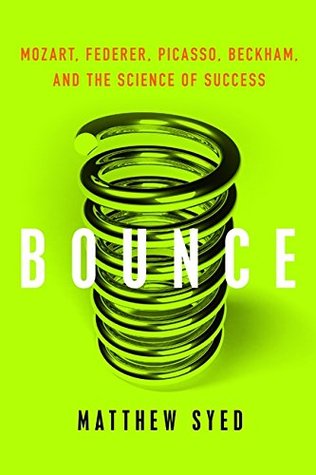
(22 Eloquence: Wednesday April 11, 2018)
There is power in your palms. Your palms are also communicating. It is a good idea to be be aware of what your palms are communicating. And how you can take corrective action if necessary.
We have 3 basic palm positions, inclusive, assertive, and dominant. They all communicate different messages, whether we are aware of this or not. We all have a default or dominant palm position. It is a good idea to be be aware of what your palms are communicating. And how you can take corrective action if necessary.
I highly recommend Allan Pease’s TED Talk, Body Language, The Power is in the Palm of Your Hands.
Source: Body language, the power is in the palm of your hands. Allan Pease, TEDxMacquarieUniversity. https://youtu.be/ZZZ7k8cMA-4
(22 Book: Monday April 9, 2018)
“How Democracies Die” is written by scholars who have been studying co-opted democracies for decades.
Their fundamental argument is: “Democratic laws and societies are only truly sustainable when they are truly accompanied by (1) adherence to norms (2) forbearance (3) soft guard rails.”
One of the authors specialized in failed European democracies and the other specialized in failed South American Democracies.
This book is not primarily about military coups, or revolutions, or uprisings. It is about how elected officials, who refuse to give up power, subvert democracy, and transform themselves into authoritarians.
QUOTE. To better understand for elected autocrats subtly undermine institutions, it is helpful to imagine a soccer game. To consolidate power, would-be authoritarians must capture referees, sideline at least some of the other side’s star players, and rewrite the rules of the game to lock in their advantage, in effect tilting the playing field against their opponents. UNQUOTE
Source: How Democracies Die: by Steven Levitsky & Daniel Ziblatt
(21 Performance: Friday April 6, 2018)
A summary of tips & insights of 6-part “Impulse-Control and Willpower” video messages .
- Friday, Performance Tip, Impulse Control. February 16, 2018. https://youtu.be/XRPK5iyArFo
- Friday, Performance Tip, Impulse Control, Three Types of Will Power. March 2, 2018. https://youtu.be/EB9_FK7zJ5U
- Friday, Performance Tip, Surfing the Urge. March 9, 2018. https://youtu.be/zt0fZaG4BFg
- Friday, Performance Tip, Defensive Pessimism. March 15, 2018. https://youtu.be/Hy_96pwzTaY
- Friday, Performance Tip, Turn an Imaginary Willpower Failure into a Success. March 23, 2018. https://youtu.be/MoccT4nad8s
- Friday, Performance Tip, Impulse Control, 1 Insight + 2 Questions. March 30, 2018. https://youtu.be/Ijr_aGhHgso
Sources:
- The Willpower Instinct. Kelly McGonigal
- Talks at Google, “The Willpower Instinct”, Kelly McGonigal, https://youtu.be/V5BXuZL1HAg
(21 Eloquence: Wednesday April 4 , 2018)
Think of your voice as an instrument. The major components are diaphragm, lungs, vocal chords, and articulators (lips, jaws, tongue, soft palate)
This instrument will benefit from care and maintenance.
For best performance and output, work-out your voice regularly, i.e. do your Vocal Exercises. Warm up you voice before any important spoken communication task
One way to exercise your voice is to sing and move large amounts of air.. Don’t think of it as singing. Think of it as “vocal-exercising”. We’ve been told over and over again that practice, practice, practice, is the key to any and all improvement.
The simplest way to practice improving your voice is to sing.
Source
TEDx Talk. The Surprising Secret to Speaking With Confidence. Caroline Goyder. https://youtu.be/a2MR5XbJtXU (minute 8:50 – 9:25)
Song segments. (1) Hallelujah—Leonard Cohen. (performed by Kate McKinnon). (2) I Hope You Dance—Lee Ann Womack
(21 Book: Monday April 2, 2018)
Courage is the virtue that President John F. Kennedy most admired.
When he was a congressman, he had an operation, and used his convalescing time to write a book called Profiles In Courage.
Toward the end of the book he writes:
Not only do the problems of courage and conscience concern every’s officeholder in our land, however humble or mighty, and to whomever they may be responsible—voters, a legislature, a political machine, or party a organization. They concern as well every voter in our land—and they concern those who do not vote, those who take no interest in Government, those who have only disdain for the politician and his profession. They concern everyone who have ever complained about corruption in high places, and everyone who has ever insisted that his or her representative abide by his or her wishes.
For in a democracy, every citizen, regardless of interest in politics, “hold office”; and every one of us is in a position of responsibility; and in the final analysis, the kind of government we get depends on how we fulfill those responsibilities. We, the people, are the boss, and we will get the kind of political leadership, be it good or bad, that we demand and deserve.
Source: Profiles In Courage: John F. Kennedy
(20 Performance: Friday March 30, 2018)
When thinking about willpower and impulse control, it is useful to think of our-selves as multiple selves rather than just one self.
One self is characterized by “fight-flight”, “automatic” and “habitual/subconscious” responses.
Another self is characterized by the “pause & plan” response.
These selves seem to be activated by different neuro-anatomy, different neuro-chemistry, and different neuro-electricity.
Impulse control and will power challenges may be thought of as an internal contest/competition between these two selves.
To shift control and power from the “fight-flight” self to the “pause & plan”, self ask questions which slow us down and make us goal focused. For example:
- Do I want the consequences of always putting this off?
- How will I benefit by succeeding in these challenges?
- Who else will benefit if I succeed in these challenges?
- Who else is counting on me, and depending on me to succeed in these challenges?
Sources:
- The Willpower Instinct. Kelly McGonigal
- Talks at Google, “The Willpower Instinct”, Kelly McGonigal, https://youtu.be/V5BXuZL1HAg
(20 Eloquence: Wednesday March 28, 2018)
Think of your voice as an instrument. The major components are diaphragm, lungs, vocal chords, and articulators (lips, jaws, tongue, soft palate). This instrument will benefit from care and maintenance.
For best performance and output, work-out your voice regularly, i.e. do your Vocal Exercises. Warm up you voice before any important spoken communication task
6 vocal exercises to warm up your voice.
- Aaaahhhh …
- Bo. Bo. Bo …
- Bbbbrrrrrr …
- La. La. La …
- Rrrrrrr … (rolling R)
- Weeee ….. Oooorrrr (siren)
Source
TED Talk: Julian Treasure. How to Speak So That People Want to Listen
https://www.ted.com/talks/julian_treasure_how_to_speak_so_that_people_want_to_listen
(20 Book: Monday March 26, 2018)
Shaquille O’Neal is a famous basketball player. In school he stood out because of his basketball prowess. When he first went to a basketball camp, he was surrounded by the best high school payers from across the nation. He started doubting himself.
He approached his parents for guidance. They both told him that he “must persevere”. Feeling like he couldn’t stand out, he tried to brush his mother off, saying: “I can’t do that right now. Maybe later.” His mother’s response; “Later doesn’t always come to everybody.”
Shaquille O.Neal writes, “Those words got to me. Those words snapped me into reality and gave me a plan. You work hard now. You don’t wait. If you’re lazy or you sit back and you don’t want to excel, you’ll get nothing. If you work hard enough, you’ll be given what you deserve. Everything got easier for me after that. From then on I had focus.”
Source: The Right Words at the Right Time: Marlo Thomas and Friends
(19 Performance: Friday March 23, 2018)
This is an impulse control technique which requires us to:
First: actively imagining ourselves failing, and then asking ourselves some questions:
- What do I need to do now?
- Do I need to remember my motivation?
- Do I need to get away from temptation?
- Can I call on a family member of friend for support?
Next:
- Visualize doing the task.
- Visualize succeeding at the task.
Use this “I’m succeeding” vision to get more confidence. This also helps us to convince ourselves that we can do what it takes to reach our goals.
Planning for failure this way is self-compassion. It is not self-doubt.
Sources:
- The Willpower Instinct. Kelly McGonigal
- Talks at Google, “The Willpower Instinct”, Kelly McGonigal, https://youtu.be/V5BXuZL1HAg
(19 Eloquence: Wednesday March 21, 2018)
Voice is Instrument Series—1 of 3, Warm-Up Articulators
Think of your voice as an instrument. The major components are diaphragm, lungs, vocal chords, and articulators (lips, jaws, tongue, soft palate)
This instrument will benefit from care and maintenance.
For best performance and output, work-out your voice regularly, i.e. do your Vocal Exercises
Warm up your voice before any important spoken communication task.
Articulators = lips, jaws, tongue, soft palate
Recite aloud. Increase speed with each reading. Emphasize every sound.
Notice how articulators & muscles of mouth and face move.
- Mumsy made me mash my mutton
- Twenty tentacles tickling Ted
- Charlie chews his chocolate shoes
- Rickie’s sticky yucky duckies
- The skunk thunk. The stump stunk
- Rubber baby buggy bumpers
- Good blood, bad blood
- The lips, the teeth, the tip of the tongue
- Red leather, yellow leather
- Bobby Babcock’s bagpipes
- Fresh fried fish. Fish fried fresh
- Shave a cedar shingle thin
- The thirty thorny thistles thawed throughout
- She sells sea shells on the sea shore
- In vain I want
Source: The Pin Drop Principle. David Lewis & G. Riley Mills
(19 Book: Monday March 19, 2018)
One of the great books of our time, about the greatest leader from our time. Long Walk to Freedom. The Autobiography of Nelson Mandela.
The closing chapter is one of my favorite leadership reads. The entire chapter is magnificent. In this clip, I read a small segment, where he he widens the circle of people we wishes to liberate. A leadership lesson for the ages.
(18 Performance: Friday March 15, 2018)
Defensive Pessimism. A technique to improve impulse control.
When experiencing a willpower failure, ask yourself he following questions:
- What is my goal?
- What would be the most positive outcome?
- What action will I take to reach this goal?
- What is my biggest obstacle?
- When and where is this obstacle most likely to occur?
- What can I do to prevent the obstacle?
- When this obstacle happens, what specific action will I take and/or what specific thing will I do to get me back to my goal?
Sources:
- The Willpower Instinct. Kelly McGonigal
- Talks at Google, “The Willpower Instinct”, Kelly McGonigal, https://youtu.be/V5BXuZL1HAg
(18 Eloquence: Wednesday March 14, 2018)
Eloquence tip. Being able to speak well is essential. Being able to pitch is a valuable asset. But, every time you can substitute a pitch with a prototype or a product demo, you will enhance the credibility and persuasiveness of your communication.
View some “Shark Tank” clips to watch this being routinely done.
Source: Guy Kawasaki: Top Ten Mistakes of Entrepreneurs https://youtu.be/XE1XrETSvPI
(18 Book: Monday March 12, 2018)
A trigger is an event, that precipitates a reaction. Frequently a trigger is a perception that puts us in fight or flight mode.
To identify triggers, look for these symptoms:
BODY: shallow breathing, rapid heart-rate, sick in the stomach
EMOTIONS: fight-flight, emotional outbursts
THOUGHTS: feeling like a victim, blame-judgement, difficult to concentrate.
We all get triggered. Suggested coping method:
- Stop (also called the sacred pause)
- Breathe
- Notice
- Reflect
- Respond
This can be thought of as a mnemonic: SiBerian North Rail Road. (What better place to cool down that Siberia? : ))
Source:
Book: Search Inside Yourself: Chade-Meng Tan
Google Talk: Chade-Meng Tan: “Search Inside Yourself” https://youtu.be/r8fcqrNO7so
(17 Performance: Friday March 9, 2018)
Surfing the Urge. A technique to improve impulse control.
When experiencing a willpower failure:
- Notice the thought, craving, or feeling.
- Accept and attend to the inner experience
- Breathe, and give my brain and body a chance to pause and plan.
- Broaden my attention, and look for the thoughts and actions that will help me recommit to achieving my goal.
To practice surfing the urge: (1) breathe out, (2) hold—no air in lungs—and observe sensations AND surf to urge to breathe in.
When we learn how to surf the urge we can benefit from:
The Power of Acceptance, and we will be far more capable of handling:
- Anxiety
- Intrusive thoughts
- Negative thoughts
- Cravings
- Quitting while meditating and exercising
- Constant self-generated interruptions to my focus.
Sources:
- The Willpower Instinct. Kelly McGonigal
- Talks at Google, “The Willpower Instinct”, Kelly McGonigal, https://youtu.be/V5BXuZL1HAg
17 Eloquence: Wednesday March 7, 2018)
Any conversation on eloquence would be incomplete without acknowledging the potentially dark side of Public Speaking & Storytelling expertise.
Expert public speakers and storytellers have the ability to mesmerize audiences. Period. It is irresponsible, even foolhardy, to stubbornly and endlessly deny this. Expert public speakers and storytellers can energize a crowd and propel it to action—even if that action is against our individual values and best judgment. This should not be underestimated.
Some of history’s most horrific leaders were outstanding orators. It is our responsibility to remain idealists without illusions—no one else’s. When listening to any speaker or storyteller, par excellence, I counsel you to keep this thought somewhere in the back of your mind, “An expert public speaker and storyteller with selfish incentives, mal-intent, or flat-out malevolence, is a very bad combination indeed.” The principle of “caveat emptor” or “buyer beware” applies.
Sources:
- Necessary Bridges: Public Speaking & Storytelling for Project Managers & Engineers (my book)
- WatchMojo.com: Top 10 Most Powerful Orators in History, https://youtu.be/SzOWyMqw-m4 (Adolf Hitler: # 4)
- WatchMojo.com: Top 10 Famous Speeches, https://youtu.be/0VegIvb1e7s (Hitler: # 9, Triumph of the Will, 1935)
(17 Book: Monday March 5, 2018)
Our behavior and thinking is shaped by the people who surround us—far are than we think. This is what author Eric Barker points out in his superb book, “Barking Up the Wrong Tree”.
He writes (1) Pick the Right Pond
… When you take a job take a long look at the people you’re going to be working with—because the odds are you’re going to become like them; they are not going to become like you. You can’t change them. If it doesn’t fit who you are, it’s not going to work.
… Luckily the influence of context works both ways. The “Terman Study”, which followed over a thousand people from youth to death, came to the conclusion that the people who surround us often determine who we become. When we see others around us perform altruistic acts, we’re more likely to act altruistically ourselves.
Source: Barking Up The Wrong Tree: Eric Barker
(16 Performance: Friday March 2, 2018)
in an earlier Friday Performance Tip, I reported a key insight from Kelly McGonigal’s book “The Willpower Instinct”. Self-control is:
- a better predictor of academic & professional success then intelligence
- a stronger predictor of leadership than charisma
- more important for marital bliss than empathy
Building on this, the author points out that there are three distinct types of will power, which activate different brain areas and circuits. They are:
- I Will
- I Won’t
- I Want
So from a “better performance” perspective it is optimal to think about and create three perspectives / lists to guide you to your goals and through your impulse control challenges. Clearly think about and articulate what “I Want”, “What I Will Do” and “What I Won’t Do”
Sources:
- The Willpower Instinct. Kelly McGonigal
- Talks at Google, “The Willpower Instinct”, Kelly McGonigal, https://youtu.be/V5BXuZL1HAg
(16 Eloquence: Wednesday February 28, 2018)
When creating a communication / presentation / speech, clear transitions are essential. Transitions provide continuity, and contribute to clarity.
Successful communication is usually a combination of a clear message and a structure
Without clarity and a worthwhile message—the communication will likely fail.
The “curse of knowledge” is a term used to express that we assume everyone knows what we know.
Sample Structure
Strong Opening / Greeting / Roadmap
Transition
Point 1 / Module 1 / Chunk 1
Transition
Point 2 / Module 2 / Chunk 2
… (continue for as many any points as have to be made)
Transition to Summary
Summary
Transition to Strong Closing
Strong Closing
The power of transitions can be seen in the image–Escher Artworks: Transitioning from Water to Sky
Escher Artworks: Transitioning from Water to Sky
(16 Book: Monday February 26, 2018)
The first step on the voyage of entrepreneurship occurs in the mind, where darkness, fear, and doubt reside.
Day 1 is not a date on the calendar. It is a commitment to seeing everyday as a fresh opportunity to create something new.
Heart + Mind – Fear = Entrepreneur
The entrepreneurship journey begins by psyching yourself up, not psyching yourself out.
Source: Crazy is a Compliment, Linda Rottenberg
(15 Performance: Friday February 23, 2018)
Performance tip. To be forever empowered “Uphold your dignity in a way that compels your adversaries (& your associates) to respect you”
Source: Scenes from History Channel Documentary “Miracle Rising”
(15 Eloquence: Wednesday February 21, 2018)
Sameness is an Enemy of Eloquence. I learned this from a legendary presentation and speaker coach Patricia Fripp “Sameness is the Enemy of a Presenter“
To capture and retain your audiences attention, variety is essential.
(15 Book: Monday February 19, 2018)
In 1969 there were 3 notable engineering achievements, each based on about a decade of work.
- The Moon Landing
- The creation of the Microprocessor
- The creation of the First Network—connecting distant computers
The moon-landing got all the fame and the attention, but its historical significance and benefit was minor compared to the significance and benefit of the microprocessor and computer networks.
Source: The Innovators, Walter Isaacson
(14 Performance: Friday February 16, 2018)
Key Insight from the book “The Willpower Instinct”: Self-control is:
- a better predictor of academic & professional success then intelligence
- a stronger predictor of leadership than charisma
- and more important for marital bliss than empathy
One way to overcome willpower challenges is to find ways to take advantage of, and not fight primitive instincts (impulses).
When our minds are preoccupied or distracted, our impulses, not our long-term goals will drive our choices.
To overcome temptation and self-destructive urges we can activate a PAUSE & PLAN response
This pause & plan response helps us slow down and control our impulses
To succeed with our willpower challenges, we need to find the state of mind and body that puts our energy towards self-control and not self-defense.
Source: The Willpower Instinct
14 Eloquence: Wednesday February 14, 2018)
It is harder to decide to be eloquent (I WILL BE ELOQUENT!) than it is to actually becoming eloquent, which is a relatively straightforward process.
It is harder to decide to manage anxiety (I WILL MANAGE ANXIETY!) than it is to actually manage anxiety, which is a relatively straightforward process.
It is harder to decide to manage the fear of public speaking (I WILL MANAGE GLOSSOPHOBIA!) than it is to actually manage manage the fear of public speaking, which is a relatively straightforward process.
14 Book: Monday February 12, 2018)
Here’s one of the best approaches I’ve seen to dealing with a paradox facing the employer – employee relationship.
Neither want to be in an entirely mercenary or transactional relationship.
Employers would like to have employees who are loyal and will stay. However with adaptability and entrepreneurship becoming more essential to achieving and sustaining business success, traditional models of this relationship (well suited to stability) are too rigid to work well.
Employees know that they will be dropped any time and the “it’s just business” philosophy will apply.
So after recruitment and “welcome”, both employer and employee know that their relationship is based on mutual self-deception, and both seem unable to do anything about it. A business without loyalty is a business without long-term thinking. Employers & employees need mutual trust, mutual investment and mutual benefit.
This book suggests that an ideal framework for the future is “The Alliance”. We may have to think of employment as an alliance: a mutually beneficial deal, with explicit terms, between independent players. Here employees are encouraged to act entrepreneurially and develop their own networks, without becoming mercenary job-hoppers. Employers can then be dynamic and demanding while not treating employees as disposable assets.
Employers tell employees, “Help the company become more valuable, and we’ll make you more valuable.”
Employees tell their bosses, “Help me grow and flourish, and I’ll help the company grow and flourish.”
Employees invest in the company’s success. The company invests in the employees market value.
(13 Performance: Friday February 9, 2018)
Today Emotional Intelligence (EI) is widely recognized as being an important contributor to a more wholesome and successful personal and professional life.
When I was growing up (1960s and 70s) up the foundation of education was often referred to as the 3Rs: Reading, wRiting, and aRithmetic. Today with the widespread, even ubiquitous awareness of Emotional Intelligence competencies, 3 more Rs are recognized as being as essential. The 3 EI Rs are Resilience, Reflection, Relationships. We would all perform better if we gave the same attention and care to acquiring these 3 Rs. Today it is optimal to consider a more rounded and valuable education to consist of 6Rs. We ignore this at our own peril.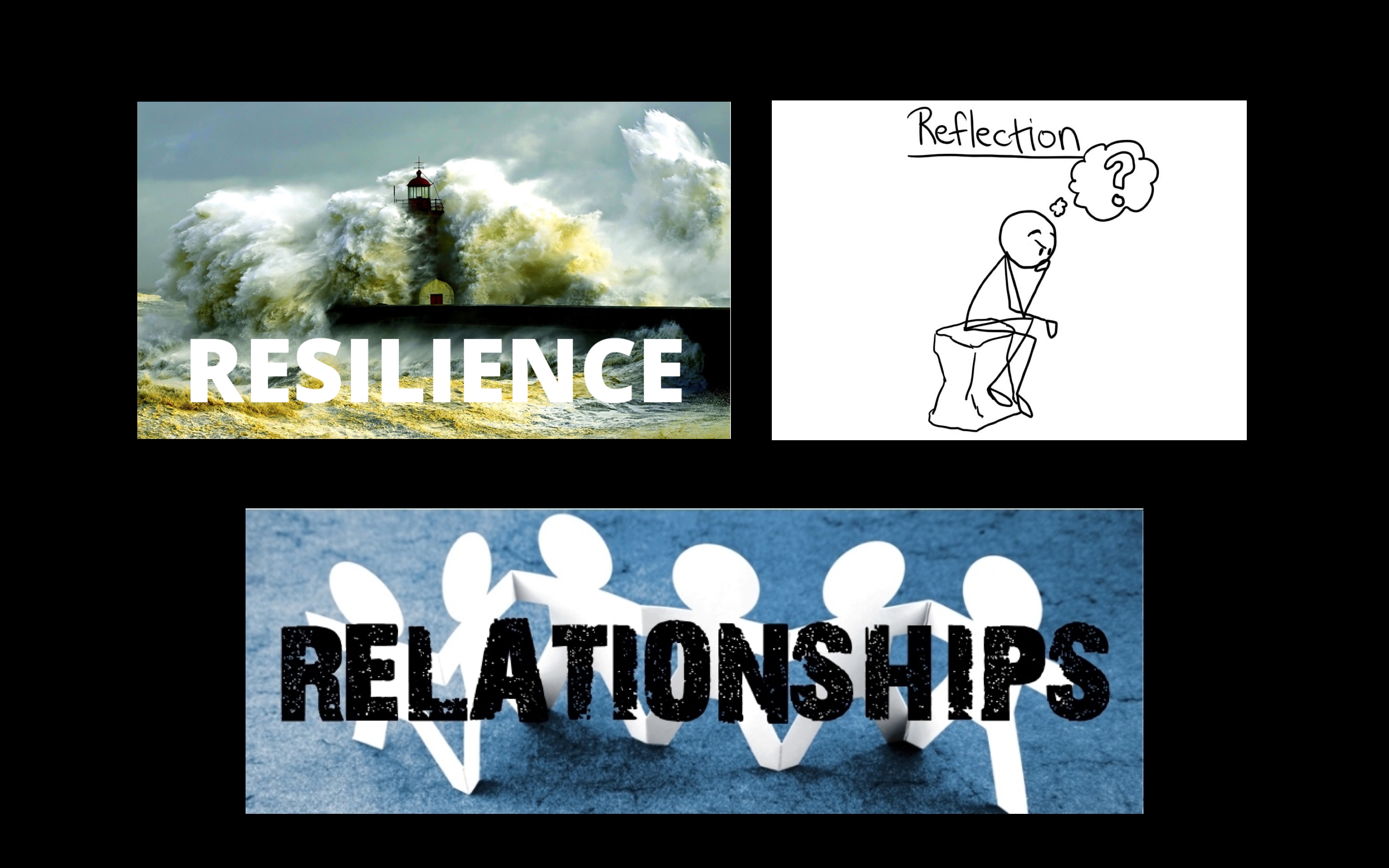
(13 Eloquence: Wednesday February 07, 2018)
You won’t believe me now, but it’s a good thing to have stage fright. In fact, the more stage fright you have, the better presenter or performer you can become, and the more potential you have to be at deeply impacting communicator and speaker! The reason is that you have feelings. Your feelings are at the surface where it can be used to create a genuine emotional connection with the audience.
In my “Speaking from the Heart” classes, it is always the person who has the most stage fright who becomes the most affecting and inspiring speaker.
These are the opening lines from the very first chapter (titled Congratulations, You’ve Got Stage Fright!) of Sandra Zimmer’s book, “It’s Your Time To Shine”
Disclosure: I’ve heard Sandra Zimmer speak, and I’ve been coached by her. I consider her a friend and well-wisher. She pointed me to a new direction early in my public speaking voyage. Her teaching and insights have been very valuable. She is an excellent teacher and a very nice person.
Here my 2011 Amazon book review of “It’s Your Time To Shine”
(13 Book: Monday February 5, 2018)
I read a lot of books after the 2008 Financial Crisis trying to understand what happened. “Here’s the Deal” by David Leonhardt and the New York Times (published in 2013) was particularly helpful in shedding light on the most fundamental issue/paradox that drives crises like this.
Some highlights from Chapter 1, The Disconnect.
- The very real fiscal problem facing this country is not silly, manufactured, or simple partisanship. The problem is us—the voters. We have not managed to figure out what kind of government, and what kind of the economy, we want. The seemingly irrational politicians in Washington are, to some extent, responding rationally to their own confused constituents.
- In the simplest terms, Republicans have won the debate on taxes, and Democrats have won the debate on benefits.
- Most voters have not leveled with themselves. Instead we have come to believe a story about the deficit that is largely not true, even though it is comforting. This story allows us to continue believing that (1) there is a painless solution, (2) the country’s huge looming deficits are not our fault, (3) they seem to stem from weak with politicians and wasteful government.
- Eventually, the country will have to confront the deficit we have, rather than the deficit we imagine.
- The recent string of budget deadlines (book was released in 2013) and crises maybe manufactured. The problem is not.
It is a simple and short book well worth reading.
Source: Here’s The Deal, David Leonhardt (The New York Times)
(12 Performance: Friday February 2, 2018)
The acronym TLC is usually expanded to Tender Loving Care. But Guy Kawasaki offers an insightful alternative, specially in the context of business relationships. TLC = Trustworthy, Likable, Competent.
(12 Eloquence: Wednesday January 31, 2018)
Chris Anderson, leader of TED Talks makes an intriguing argument in his book “TED Talks: The Official Guide to Public Speaking”. He argues that in the twenty-first century, presentation literacy should be taught in every school. Indeed before the era of books, it was considered an absolutely core part of education, albeit under an old-fashioned name rhetoric. Today, in the interconnected era, we should resurrect the noble art and make it education’s fourth R: reading, ‘riting, ‘rithmetic, and rhetoric.
Why? Because we live in an era where the best way to make a dent on the world made no longer be to write a letter to the editor, or publish a book. It may be simply to stand up and say something … because both the words and the passion with which they are delivered can now spread across the world at warp speed.
Source: TED Talks: The Official Guide to Public Speaking: Chris Anderson
(12 Book: Monday January 29, 2018)
Given that job security is not what it used to be, it is prudent to begin thinking, planning, and preparing to be an entrepreneur or an independent contractor with short term projects and assignments being a new normal.
Guy Kawasaki’s book “The Art of the Start”, is a good resource to help make this increasingly inevitable professional transition.
One of the insights from this book is that it is beneficial to be good at both, working in detail (microscope), and being a dreamer and visionary (telescope).
Source: The Art of the Start: Guy Kawasaki.
(11 Eloquence: Wednesday January 17, 2018)
A timeless/golden rule/guideline in public speaking is “Tell A Story, & Make a Point”, or “Make a Point & Tell A Story”
Stories elicit emotions. Stories make us care. Emotions form memories.
Stories Stick, Facts Get Forgotten
Stories Sell, Facts Tell
For more on Storytelling—RNK answer to QUORA question. How does one become a better storyteller?
Download a pdf gift chapter on Storytelling from my book Necessary Bridges: Public Speaking and Storytelling for Project Managers and Engineers.
11 Book: Monday January 15, 2018)
QUOTE. There’s another way of looking at male-female differences in Emotional Intelligence. This is the work of Simon Baron-Cohen at Cambridge University, who says that there’s an extreme “female brain” which has lots of mirror neuron activity, and is high in emotional empathy — but not so good at systems analysis. By contrast, the extreme “male brain” excels in systems thinking and is poor at emotional empathy.
These brain types are at the far extremes, with most of us somewhere in the middle. Many men are adept at emotional empathy, and many women are adept at systems thinking.
Analysis has revealed that while in general we find general differences across various competencies, when we look only at the pool of star performers (people in the top 10% of business performance) those differences wash out. The men are as good as the women, the women are as good as the men, across the board. UNQUOTE.
Source: The Brain and Emotional Intelligence: New Insights by Daniel Goleman
10 Performance: Friday January 12, 2018)
Popularized by Don Greene, who insists that with proper practice, we can center ourselves in less than ten seconds.
7-Step Process
- Form your clear intention: Clear the jumble of your thoughts by focusing on a single aim, such as “I’m going to convince the buyer to sign a contract.” Don’t waffle. Keep he goal positive.
- Pick a focal point: Aim your eyes at an unimportant distant point, toward which you’re later going to fling excess energy, stress and nervousness.
- Breathe mindfully: Close your eyes, breathe in through your nose and out through your mouth. Full expand your belly with each breath.
- Release muscle tension: Progressively relax your muscles, starting with your head, and moving down your body, checking one area per inhale.
- Find your center: Think about a spot two inches below your naval, and two inches below the surface of your belly. That’s your center. Focusing on this spot quiets your mind.
- Repeat your process cue: This is a phrase that’s supposed to trigger a specific action that gets you towards your intention. For a golfer it might be “smooth. good tempo”; for a negotiator, it might be “ask questions and be friendly.”
- Direct your energy: Hurl excess energy at the focal point you identified step 2.
This is more than just calming down. This is a systematic way to calm down, one that forces you to go through specific steps that also occupies your minds thereby distracting you from any nervousness you may be feeling.
The whole idea behind finding our center is to feel rooted, grounded stabilized—and in control of our energy.
 Source: Psyched Up:How the Science of Mental Preparation Can Help You Succeed. Daniel McGinn.
Source: Psyched Up:How the Science of Mental Preparation Can Help You Succeed. Daniel McGinn.
Centering: Devised by Robert Nideffer. Popularized by his protege Don Greene. Developed for San Diego SWAT team. Used in elite music schools like Juliard
(10 Eloquence: Wednesday January 10, 2018)
Pauses are one of the most powerful tools (rhetorical device) in all of public speaking.
When used skillfully, pauses allow audiences to experience messages more deeply, and process messages more thoroughly. Pauses of three seconds—or three heartbeats—are particularly effective.
An example of a 30 second pause. N Modi.
(10 Book: Monday January 8, 2018)
Relabeling or “Name & Tame” is an approach used to attenuate powerful negative emotional experiences.
(09 Performance: Friday January 5, 2018)
We’re regularly reminded of the need for passion, grit, positive attitude, etc., in order to perform excellently, over sustained periods.
However it appears that FOCUS is a more fundamental driver and predictor of sustained excellent performance.
Put differently, the ability to FOCUS may be more highly correlated to excellence and enduring success than passion, grit, positive attitude etc.
Daniel Goleman’s book “FOCUS: The Hidden Driver of Excellence” makes this argument. It is an excellent resource.
09 Eloquence: Wednesday January 3, 2018)
Susan Anthony’s commitment to excellence and expertise in public speaking changed history.
Few women have done more than Susan B. Anthony (1820 – 1906) to uplift other women politically. She found her calling early in life. “I must concentrate all of my energies on the enfranchisement of my own sex!”
After a few successful acts of public defiance, Susan B. Anthony decided that she could not be content to be a good-enough public speaker. She would have to be a great public speaker. She would have to learn how to unleash her power in full view of halls of angry men and skeptical women.
She took on a coach and a partner, Elizabeth Cady Stanton, who was also a masterful speechwriter. Together they became a team, a force to be reckoned with … and together they made history.
More in this blog article. https://necessarybridges.com/2015/12/leading-a-team-preparing-a-presentation-think-different-think-susan-anthony/
(09 Book: Monday January 1, 2018)
All the best for 2018!
If you bring forth what is within you, what you bring forth will save you.
If you do not bring forth what is within you, what you do not bring forth will destroy you.
To bring forth what is within you:
(08 Performance: Friday December 29, 2017)
As 2017 draws to a close–it’s a time for REFLECTION. What worked? What didn’t work?
Today’s tip is based on an enchanting story of Nelson Mandela saying to his wife “I miss jail“.
(08 Eloquence: Wednesday December 27, 2017)
3 Cs = Convincing, Charming, Cajoling
Effective and persuasive communication is a—almost magical—combination of 3 Cs:
being Convincing, Charming, and Cajoling simultaneously.
(08 Book: Monday December 25, 2017)
An 2,500 year old Buddhist technique called Vipassana is discussed in the book.
The book points out that QUOTE Anyone can practice this technique and benefit.
A Christian will become a good Christian.
A Jew will become a good Jew,
A Muslim will become a good Muslim,
A Hindu will become a good Hindu,
A Buddhist will become a good Buddhist UNQUOTE
The insight is that suffering arises from reacting to both aversion and craving. Aversion and craving result from internal body processes.
- Input from senses
- Consciousness (awareness of input)
- Perception, act of recognition or (pattern recognition)
- Pleasant or unpleasant body sensations (cravings or aversions)
- Reaction.
It is the reactions to craving and aversion that lead to suffering.
Source: The Art of Living: Vipassana Meditation—as taught by SN Goenka by William Hart
(07 Performance: Friday December 22, 2017)
Imagine 3 concentric circles.
The inner circle is the comfort zone. The middle circle is the learning zone. The outer circle is the panic zone.
We progress when we chose activities in the learning zone. Here we stretch beyond our current abilities and skills. We do not make progress if we are in either the comfort zone or the panic zone.
Identifying the learning zone is not as easy at it might seem. We have to truly know ourselves. Staying in it is not easy. Requires motivation, discipline and repetition. As skills and abilities improve, the learning zone changes requiring us to recalibrate regularly.
(07 Eloquence: Wednesday December 20, 2017)
Melody plays an important and under-appreciated role in spoken communication. A string of words, or sentences, spoken softly without melody is monotone and boring. The same string of words, or sentences, spoken loudly without melody comes across as shouting or angry. And yet the very same string of words, with melody can be enchanting.
Be bold and harness the power of melody to enhance your eloquence.
Science is investigating and revealing many strange connections between song and speech. For an introduction consider reading Chapter 3 (The Music of Sound: The Power of Repetition—in Song and Speech) from the book Hit Makers: The Science of Popularity in an Age of Distraction by Derek Thompson.
07 Book: Monday December 18, 2017)
The After Action Review or AAR is a process developed and used by the US Military. It is said to have transformed the military. It is widely respected.
AAR = review meetings immediately after an exercise or an activity to discuss if mission was accomplished. All must participate. Providing candid feedback (regardless of rank) is essential. Symbolically, everyone takes off their helmets. This is called “Helmets Down” It signifies that, for the duration of the discussion, no one outranks anyone.
Questions:
- What was supposed to have happened?
- What actually happened?
- What should we continue doing?
- What can we improve?
Source. Talent is Overrated. Geoff Colvin
(06 Performance: Wednesday December 15, 2017)
Why is it that in a high pressure / high stakes performance or contest, despite similar skills, training, motivation and effort, some perform significantly better than others?
Questions like these are investigated and answered by Daniel McGinn in his book “Psyched Up”.
It comes down to developing and having pre-Task Routines. This is a significantly under appreciated aspect of peak performance. We would all do well to develop pre-task routines to maximize performance return on our investments of practice, dedication and hard work.
The “All Blacks” (New Zealand Rugby Team) have a very famous pregame ritual call the HAKA
(06 Eloquence: Wednesday December 13, 2017)
For enhanced eloquence, for more power, precision, & poetry in communication, use the rhetorical devices “contrast” & “antimetabole”.
An example of Contrast: That’s one small step for man; one giant leap for mankind.
An example of Antimetabole: Mankind must put an end to war/nuclear weapons. Or war/nuclear weapons will put an end to mankind.
There is precision, power, and poetry in these examples. Yet they are merely rhetorical devices.
Anyone can harness the power of these rhetorical tools.
Use contrast and antimetabole to enhance eloquence.
For a more detailed article:
https://necessarybridges.com/2017/03/leading-team-preparing-presentation-think-different-think-antimetabole-contrast/
(06 Book: Monday December 11, 2017)
In Defense of a Liberal Education, Fareed Zakaria, the author argues that a liberal education prepares us specially well for a changing future because we learn how to write, speak and learn better.
A STEM education prepares us well for our first few jobs, where we are individual contributors.
A liberal education prepares us better for later in career jobs where we have to lead, persuade, inspire, and learn new subjects routinely.
Given my background of science, engineering and management, I feel I’ve missed out big time by not being exposed to liberal arts subjects till much later in life.
Perhaps STEM should be expanded to STREAM
STEM = Science, Technology, Engineering, Math
STREAM = Science, Technology, Rhetoric, Engineering, Arts, Math
Source. In Defense of a Liberal Education by Fareed Zakaria
(05 Performance: Friday December 8, 2017)
Watch the Videotape. World champion swimmer Michael Phelps’s coach, Bob Bowman, believed that for swimmers, the key to victory was creating the right routines.
When Michael Phelps was a teenager, at the end of each practice, Bowman would tell him to go home and “Watch the videotape. Watch it before you go to sleep, and when you wake up.”
The videotape wasn’t real. Rather, it was a mental visualization of a perfect race. Each night before falling asleep and each morning after waking up, Phelps would imagine himself jumping off the blocks and, in slow motion, swimming flawlessly. He would visualize his strokes, the walls of the pool, his stones, and the finish..
Source. The Power of Habit by Charles Duhigg
(05 Eloquence: Wednesday December 6, 2017)
Rule of 3. The rule of three is a very effective rhetorical device. Consider using it when you have to be particularly persuasive.
Examples:
Three identical words:
- I shall fight, fight, and fight again to save this party that I love. A politician
- No. No. No. Margaret Tatcher
- Education. Education. Education. Tony Blair
Three different words:
- I am the way. I am the truth. And I am the light. New Testament
Three phrases:
- You have all the characteristics of a popular politician. A horrible voice. Bad breeding. And a vulgar manner.
- A government of the people, by the people, for the people. Abraham Lincoln
Three clauses:
- Happiness is when what you think, what you say, and what you do are all in harmony. Mahatma Gandhi
Source: Lend Me Your Ears by Max Atkinson.
(05 Book: Monday December 4, 2017)
In the book “Ten Pitfalls in Intensive Care”, one of the authors Dr. Farhad N. Kapadia, MD, FRCP (disclosure: my brother) writes:
Intensivists routinely deal with life threatening illnesses, anxious relatives, and multiple colleagues from other specialties. The intensive care services consist of consultants, residents or trainees, nurses, physiotherapists, and occasionally respiratory therapists. These ICU personnel have to communicate incessantly with each other and with other departments like the Emergency Department, the Operation Theaters, the Imaging Services, the Laboratory Staff, and the Blood Bank. At every step of the way, there is a potential for delay, or worse, error. Many of these can be costly in terms of worsening clinical outcomes. In this maze of conflicting demands, it is important for the ICU to deliver a smooth and efficient service.
To paraphrase Google, the theme or motto of a Critical Care service could be
“Don’t Be Sloppy“.
(Source: Ten Pitfalls in Intensive Care by Farhad N. Kapadia & Ritoo Kapoor)
(04 Performance: Friday December 01 2017)
Generous Tit-For-Tat (GTFT). To generate long term trust and collaboration, a strategy of (1) Cooperate & Forgive, (2) Tit-for-Tat (TFT), & (3) occasional generosity (forgive even when betrayed) may be the way to go.
When the cold war was raging between the US & USSR, Robert Axelrod (professor of psychology University of Michigan) wanted to explore what strategy is best to get people to trust & cooperate. He held a contest where computer programmers wrote programs based on different strategies and competed. Shockingly, the most simple two line program won. Tit-For-Tat. This simple program decimated the competition.
To build long term cooperation & trust, as your first move (regardless of whether or not you’re treated well) forgive and cooperate. After that reciprocate the behavior. If you’re betrayed, you betray in the next round. If you’re cooperated with, you cooperate in the next round. To further improve the outcome, once in a while, forgive when betrayed. This is called generous TFT.
Generous TFT works because:
- It shows goodwill by first cooperating.
- It shows a willingness to counter punch when betrayed.
- It shows a capacity for forgiveness.
Generous-Tit-For-Tat (GTFT) ended up being more than just a cooperator or punisher. It became a teacher by teaching others how to play better.
(Source: Barking Up the Wrong Tree by Eric Barker)
(04 Eloquence: Wednesday November 29 2017)
Style Without Substance is Awful. Chris Anderson, leader of “TED Talks” may well have watched more world class talks than anyone else. In his book “TED Talks: The Official TED Guide to Public Speaking” he writes, “If you’ve picked up this book just because you love the idea of strutting the stage and being a TED Talk star, inspiring audiences with your charisma, please, put it down right now. Instead, go on and work on something that is worth sharing. Style without substance is awful.”
(04 Book: Monday November 27, 2017)
History records the Cuban Missile Crisis to be perhaps the most perilous event on earth. Mankind came chillingly close to annihilating itself.
History also records that in the year following the crisis, two sobered leaders and adversaries (Kennedy & Khrushchev) acted with immense political courage and grace. A partial nuclear test ban treaty was signed.
The author of “To Move The World” writes “The Partial Test Ban Treaty was signed and ratified for one overwhelming reason: Kennedy campaigned for it. He was a gifted campaigner: in six campaigns between 1946 and 1960, he had not lost a single one. And he triumphed again in the summer of 1963.
(03 Performance: Friday November 24, 2017)
Feedback for Improvement + Deliberate Practice + 10K hours = Road to World Class Performance (Anders Ericsson)
To make “feedback-for-improvement” feel normal:
- Frequency of feedback is more important than eloquence of feedback.
- Intention of feedback provider is more important than eloquence of feedback provider.
- After giving feedback-for-improvement (PULL UP), follow up with a friendly make up (PATCH UP) interaction.
https://hbr.org/2016/08/how-to-make-feedback-feel-normal
(03 Eloquence: Wednesday November 22, 2017)
When creating a communication, it is advantageous to ask, very early in the planning process, “What is the final emotion I want to leave my audience with?” It is easier to put together a more compelling, coherent, and systematic communication once this question has been answered.
(03 Book: Monday November 20, 2017)
Words of wisdom that shaped Colin Powell’s (Secretary of State, Chairman of Joint Chiefs of Staff, General) life.
- Organizations don’t get things done.
- Plans and programs don’t get things done.
- Only people get things done.
Organizations, plans, and programs either help or hinder people.
(02 Performance: Friday November 17, 2017)
Positivity Ratio = 3:1
For a relationship, a job, a team, or a task to be sustainable it is opined that minimum three positive experiences are required for every one negative experience.
This ratio 3:1 is sometimes called the Losada ratio or the Losada line (named after psychologist Marcial Losada)
Nourishing relationships, great jobs, high performing teams, and satisfying tasks typically have positivity ratios between 5:1 & 10:1.
Therefore the ratio of positive : negative experiences can serve to provide feedback as to whether a relationship, a job, a team, or a task is sustainable for you.
If you are consistently experiencing less than 3 positive experiences for every negative experience—in a relationship, job, team, or task—it may be time to reflect deeply.
(02 Eloquence: Wednesday November 15, 2017)
There is a Talk Renaissance going on right now. And we ignore it at our own peril.
The combination of eloquent speakers (giving a talk / speech / presentation) & viral video distribution (dissemination technology) has resulted in a new way of rapidly spreading knowledge; which in many ways, is more effective and enjoyable than learning by reading.
To make the case: In Feb 2006, Ken Robinson (an eloquent speaker) gave a brilliant TED talk to an audience of about 800 people. Today, due to the combination of his eloquence & viral video that same talk is viewed about 800 times every hour! Total ~ 61.8 million views (48.2M on TED + 13.6 on YouTube) I rest my case : )
There is a Talk Renaissance going on right now. And we ignore it at our own peril.
(02 Book Tip: Invictus, Monday Nov 13, 2017)
In his book “Invictus”,Author John Carlin writes this about Nelson Mandela:
“His secret weapon was that he assumed not only that he would like the people he met; he assumed also that they would like him. That vast self-confidence of his coupled with that frank confidence he had in others made for a combination that was as irresistible as it was disarming. It was a weapon so powerful that it brought about a new kind of revolution.”
WOW!
(01 Performance: Friday November 10, 2017)
FLOW is the state in which we feel our best and perform our best. We are in FLOW when we are in-between boredom and anxiety–with full focus on the task at hand. FLOW experiences are characterized by a loss of sense of time and self.
(01 Eloquence: Wednesday Nov 8, 2017)
A platform of eloquence is built on 4 pillars:
- Clarity
- Brevity
- Levity
- Charity.
01 Book: Monday November 06, 2017
There are 4 way to read a book:
- An Elementary Read
- An Inspectional Read
- An Analytical Read
- Syntopical Reading
How To Read A Book: The Classic Guide to Intelligent Reading: Mortimer Adler & Charles Van Doren (first published in 1940).
